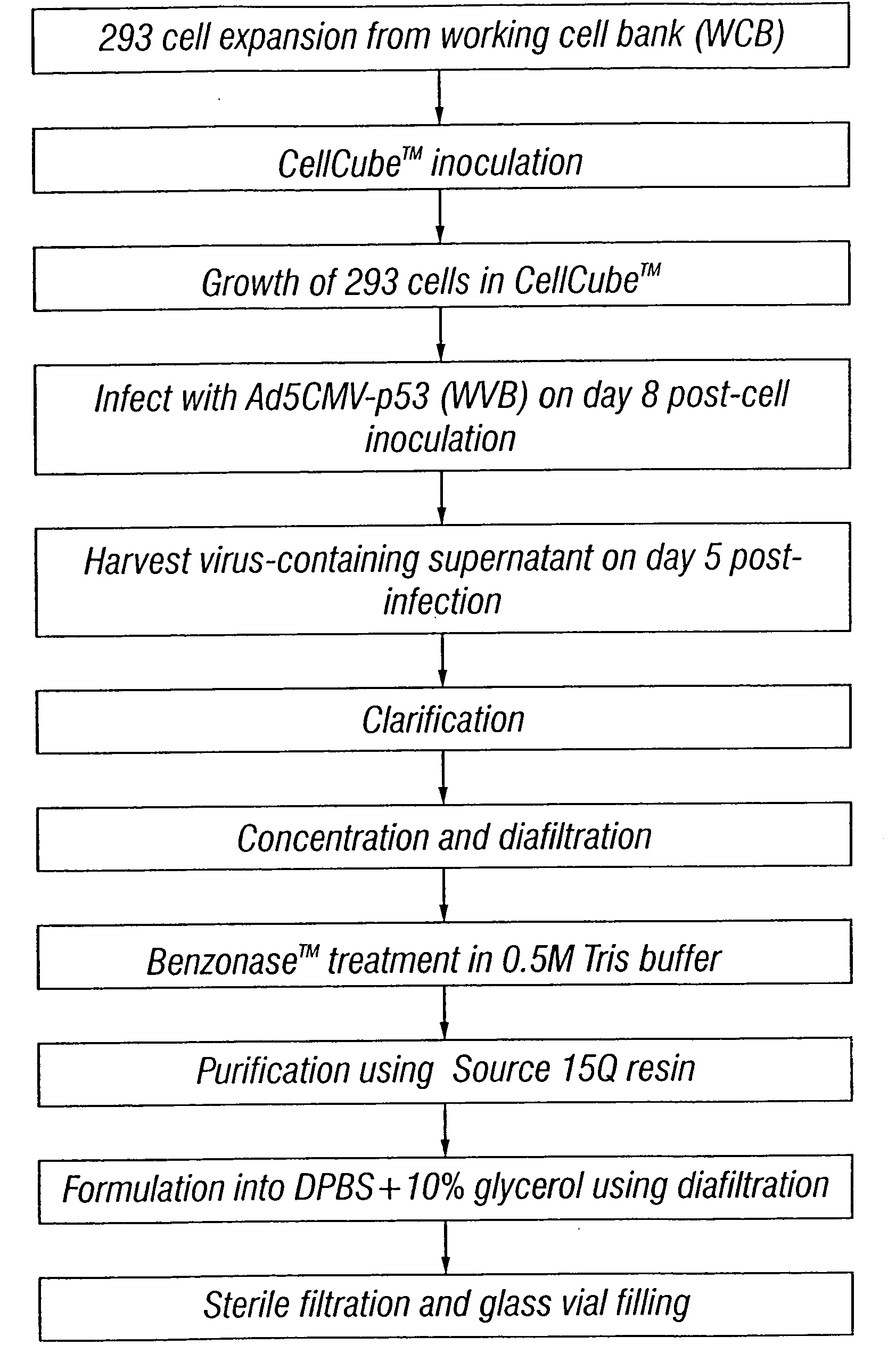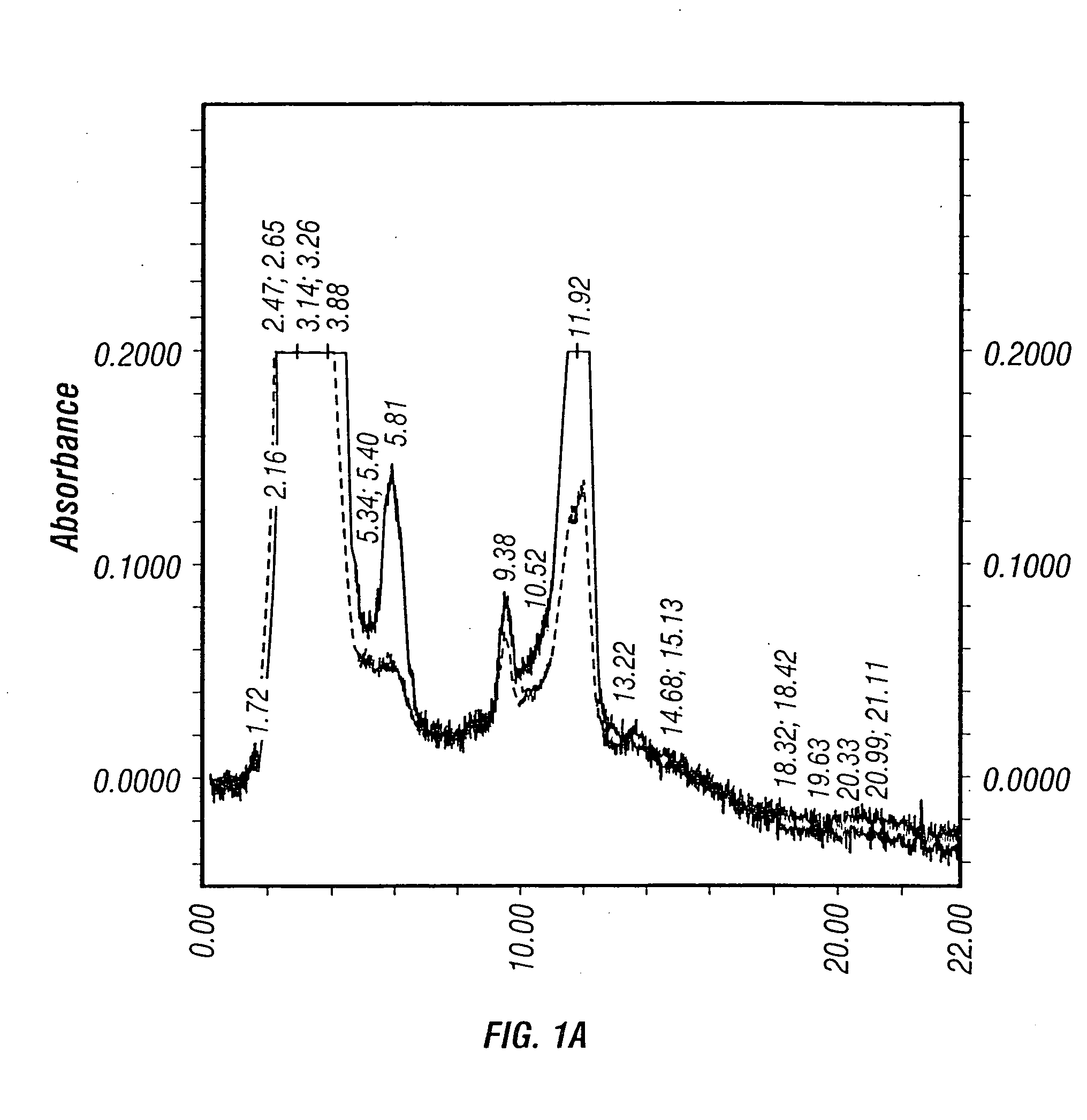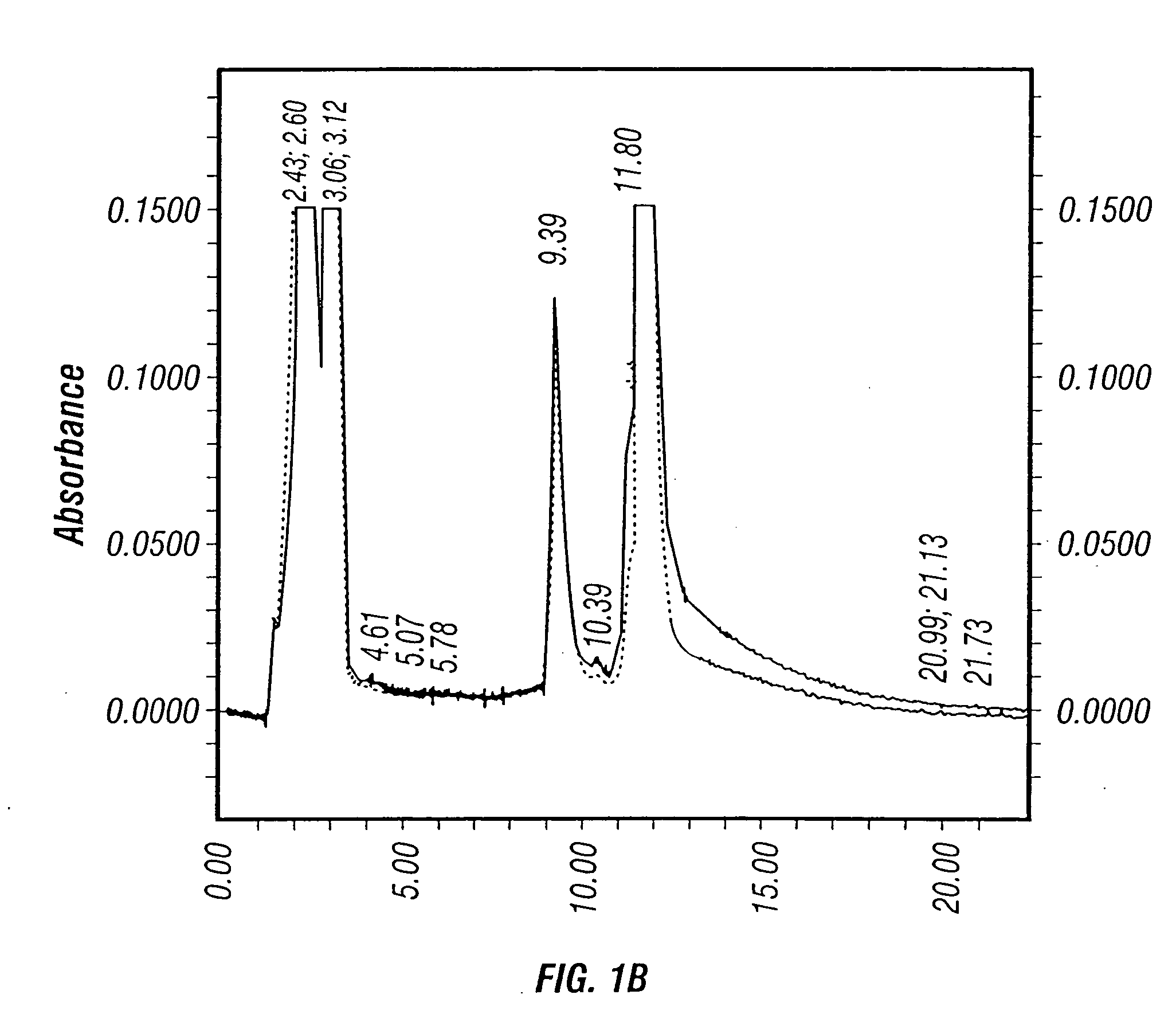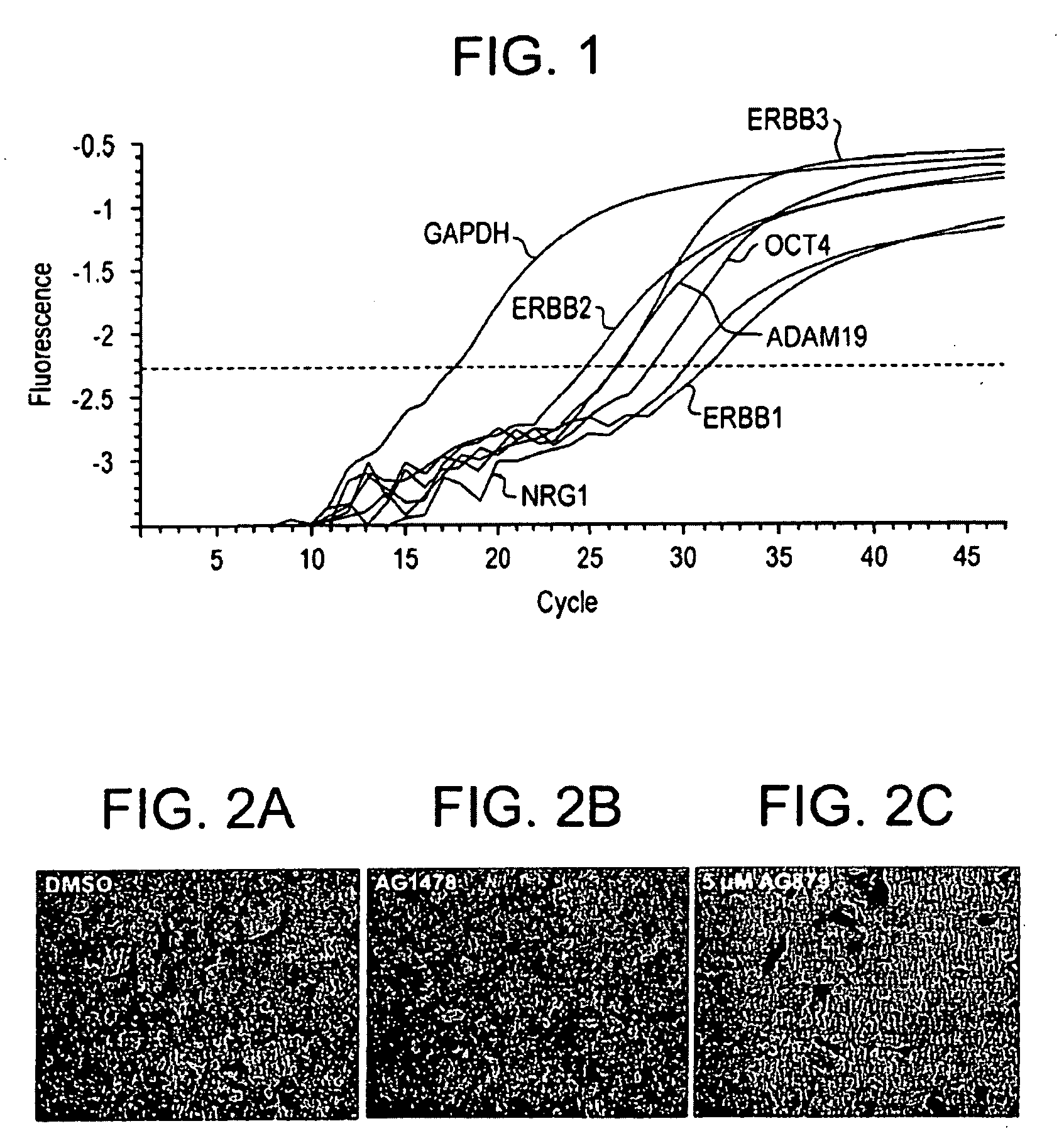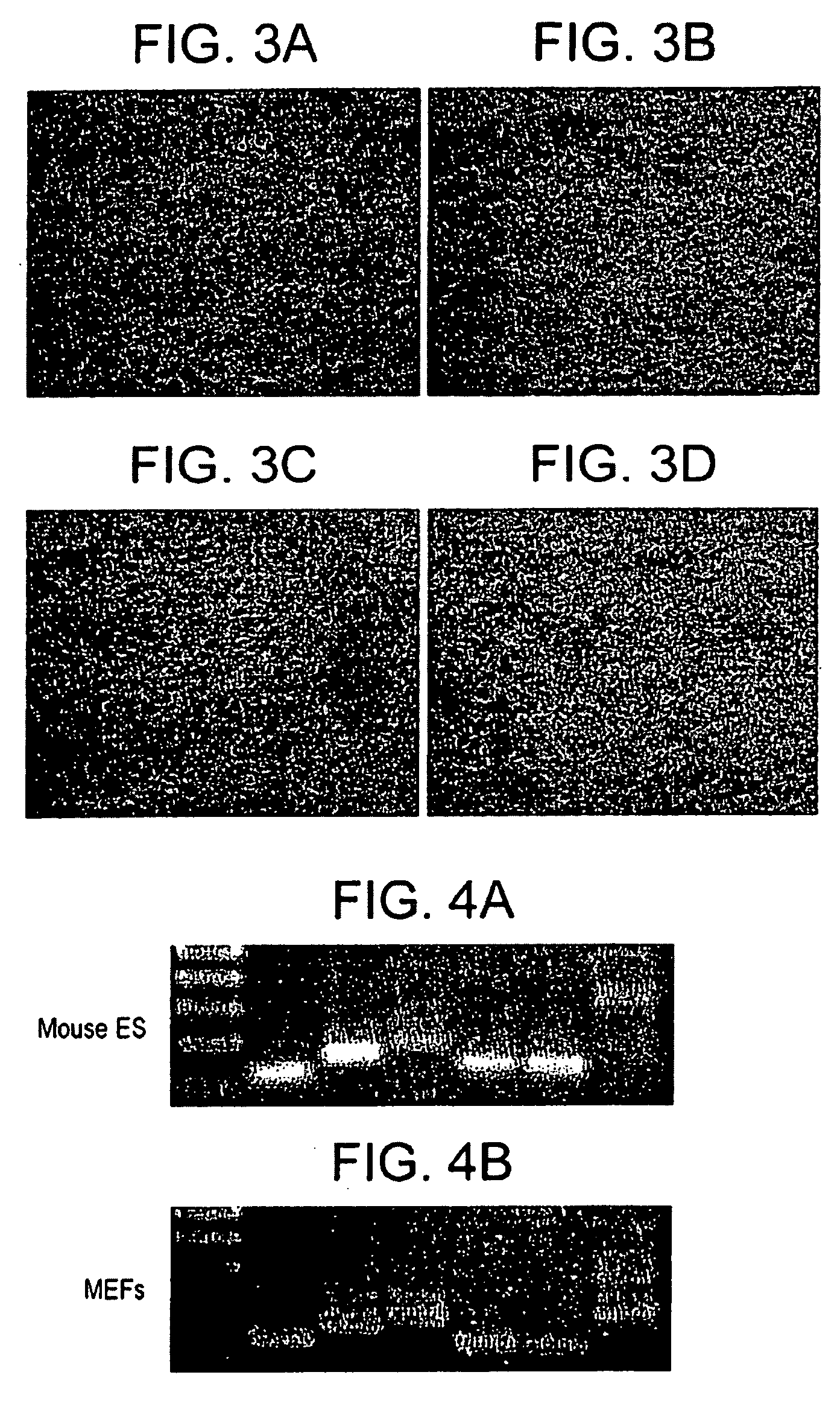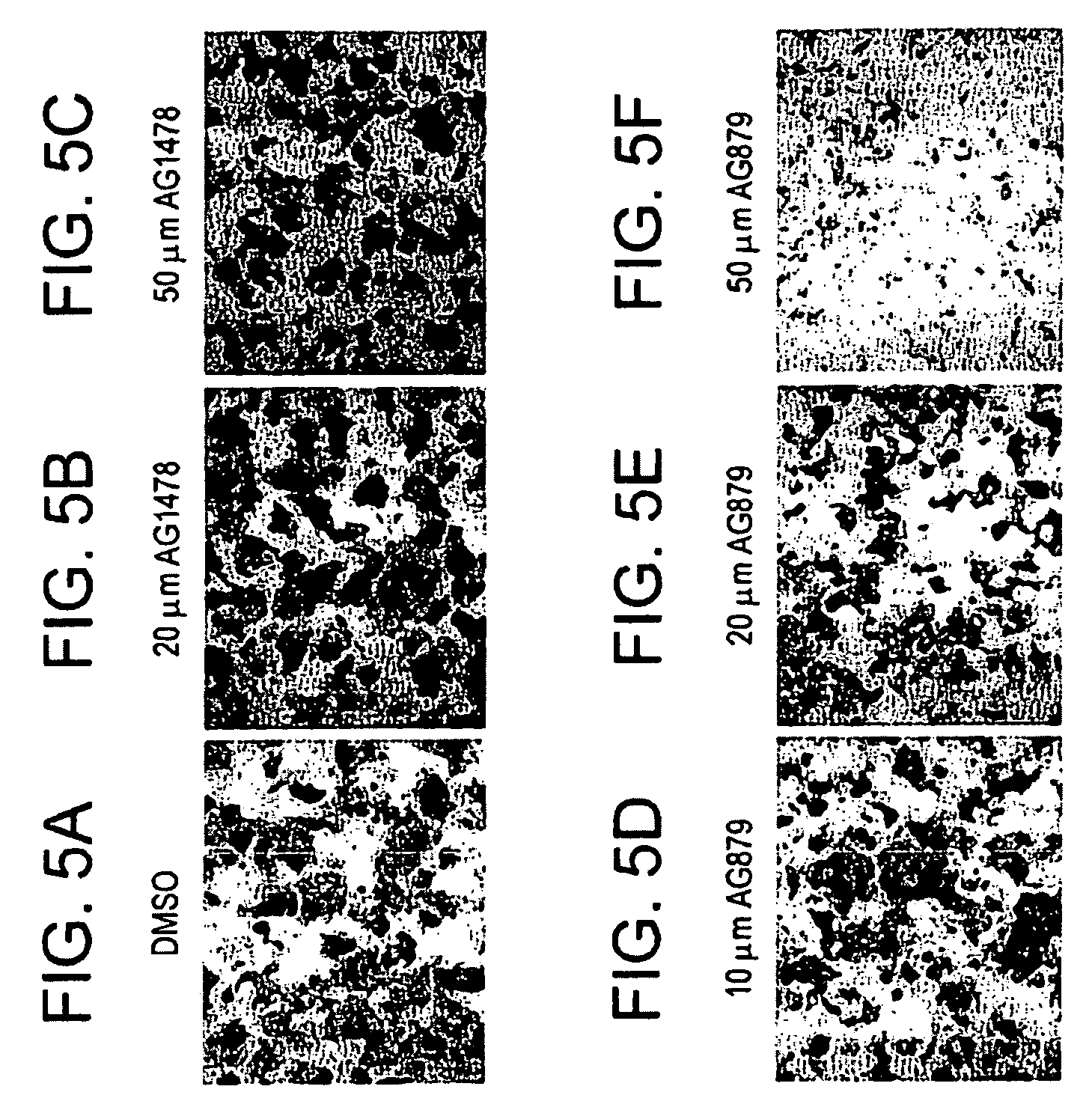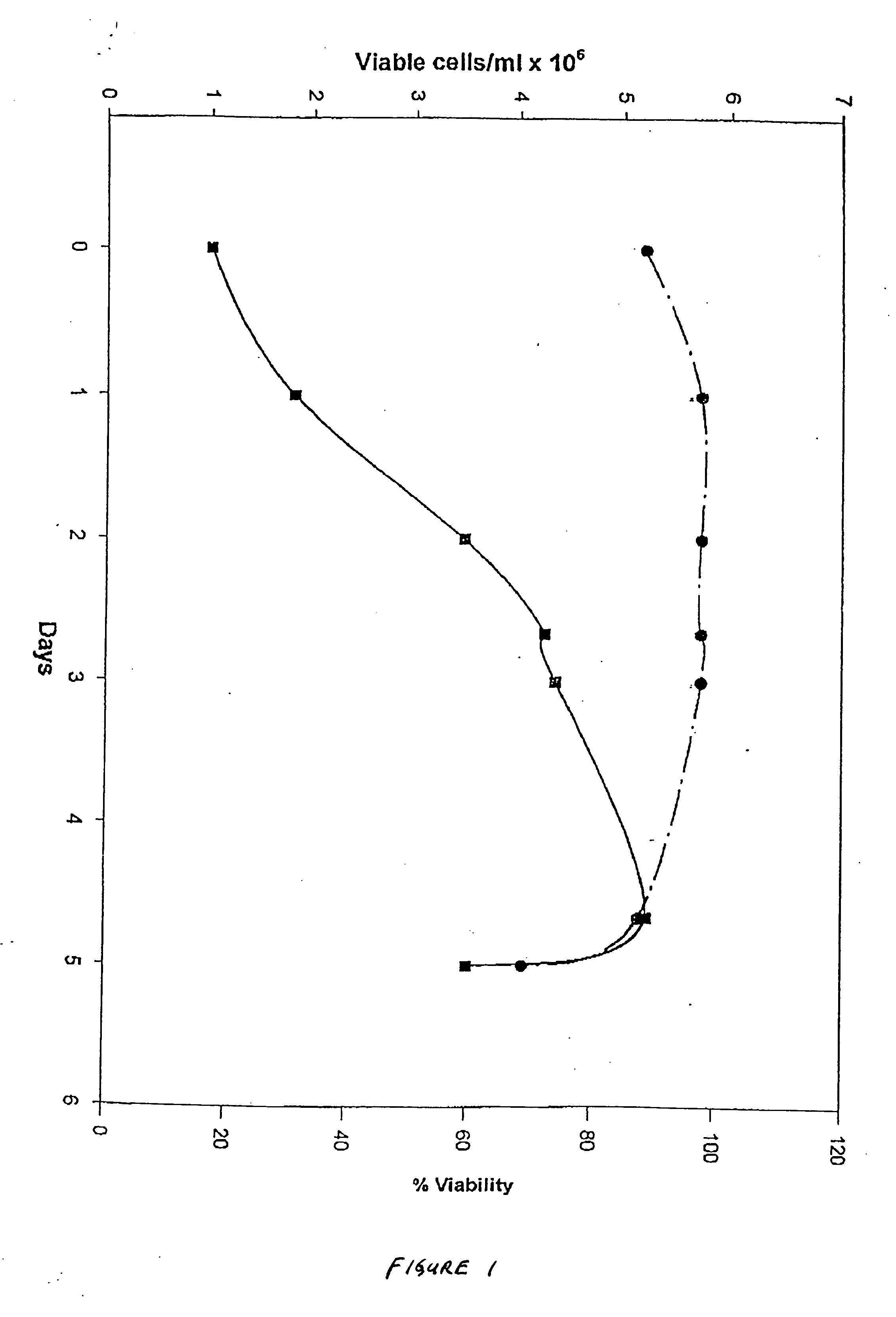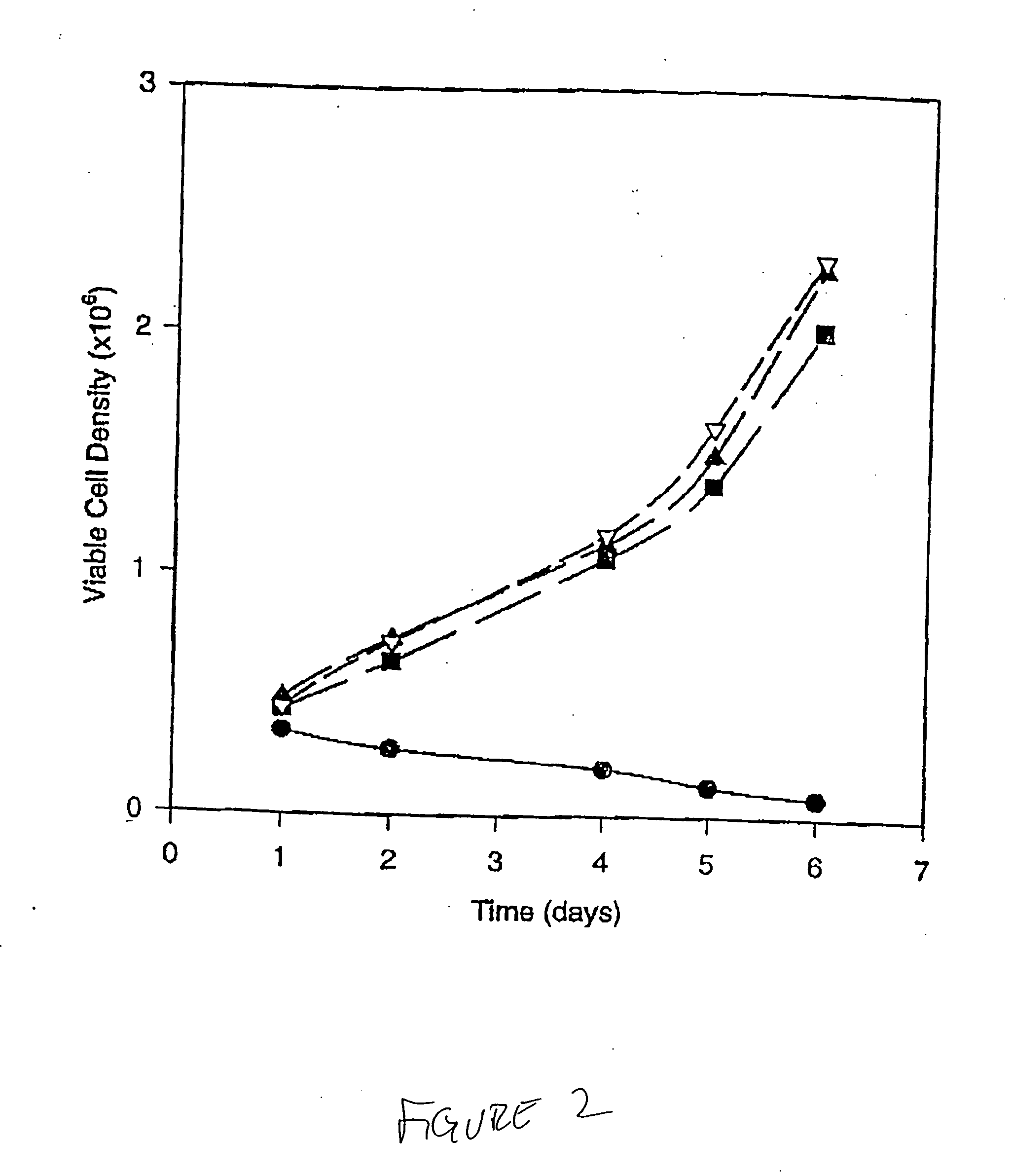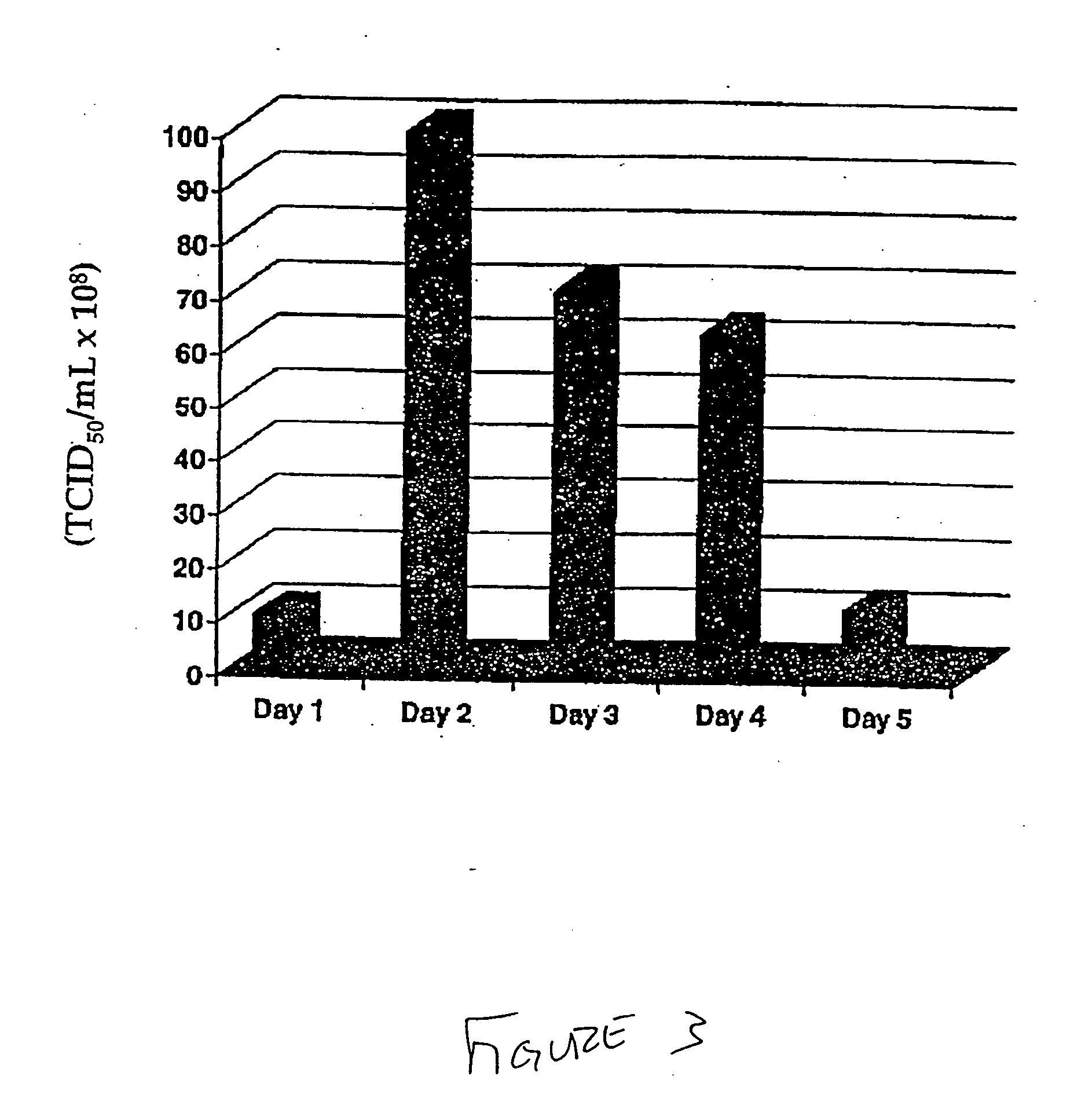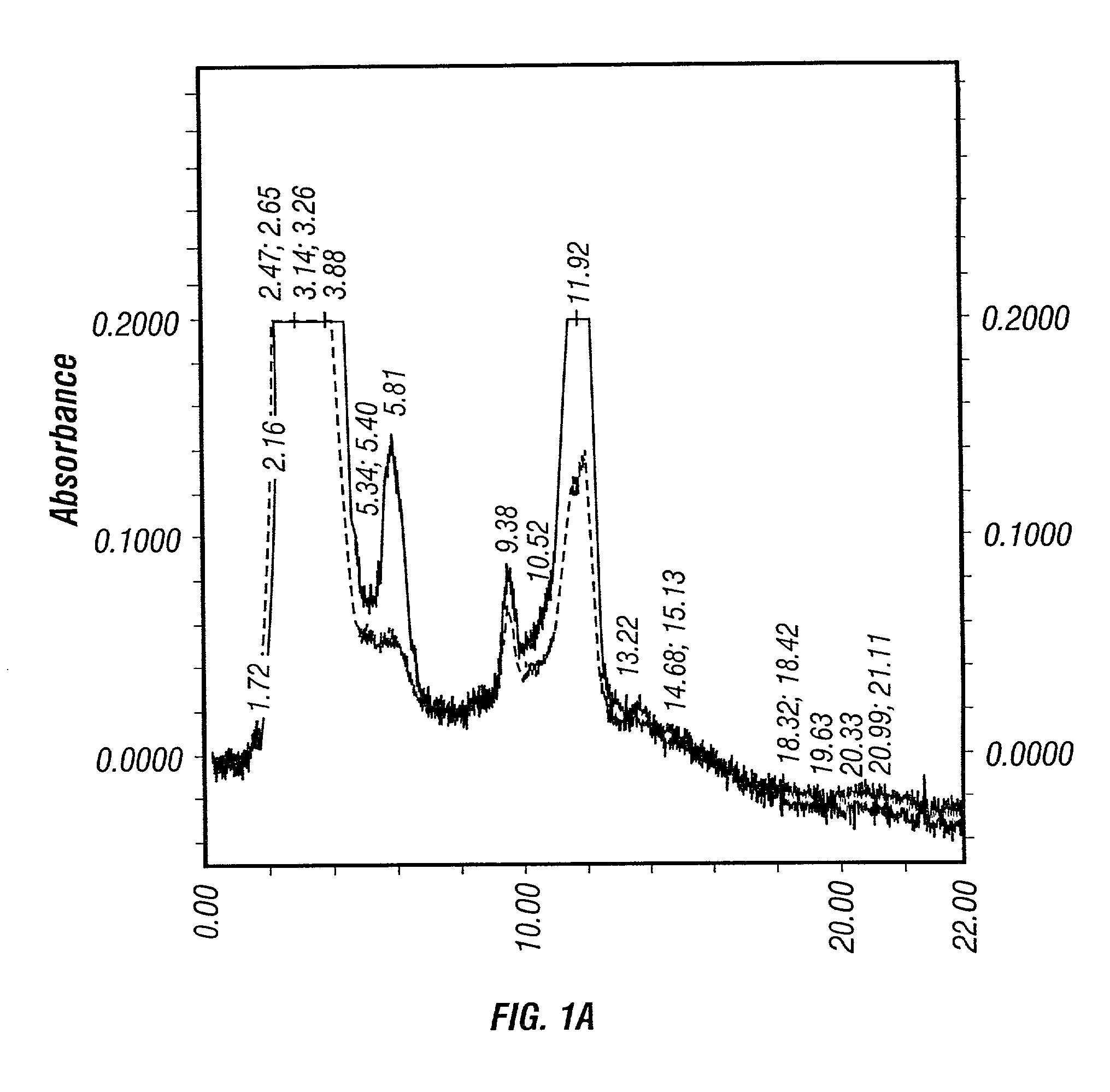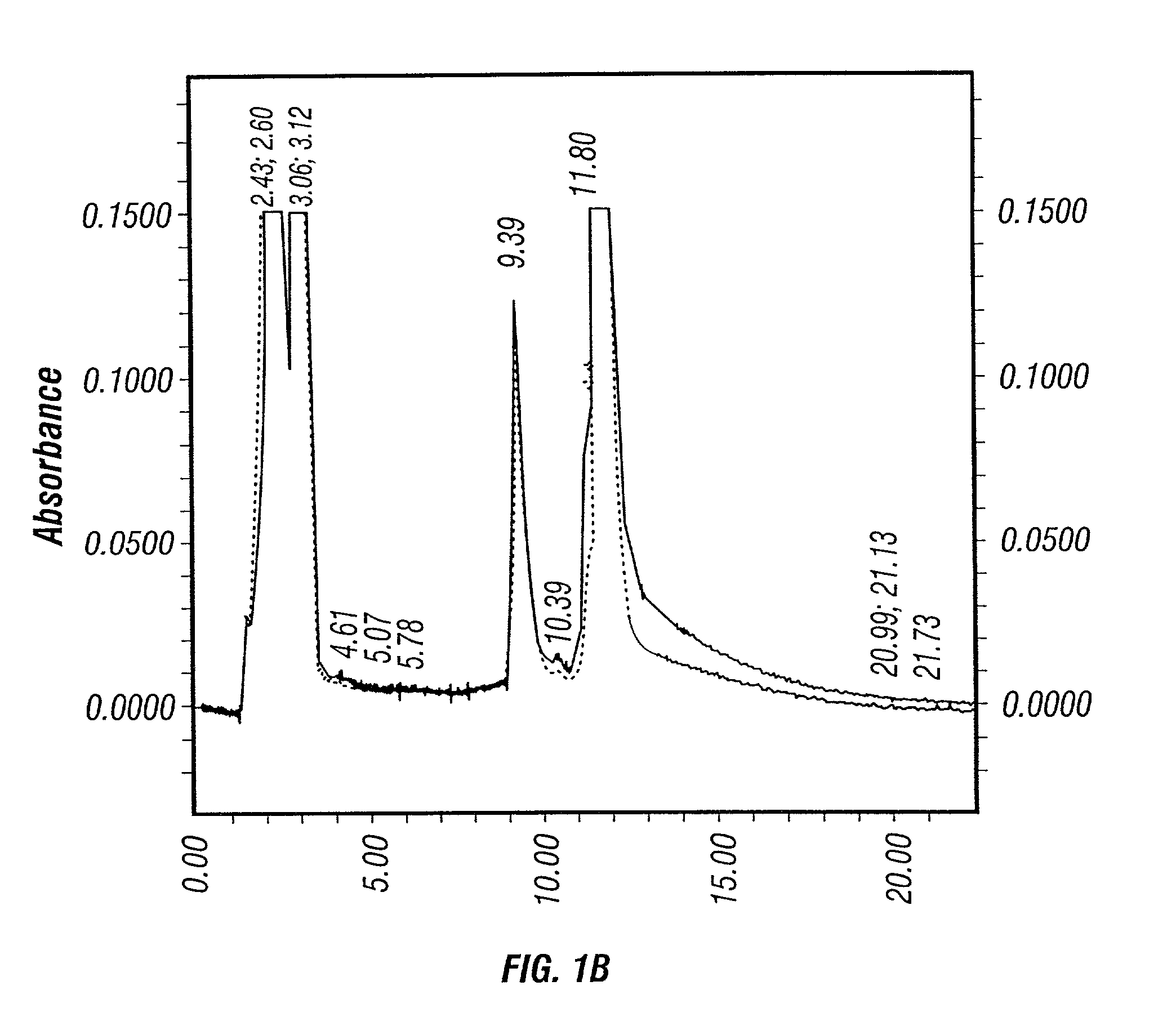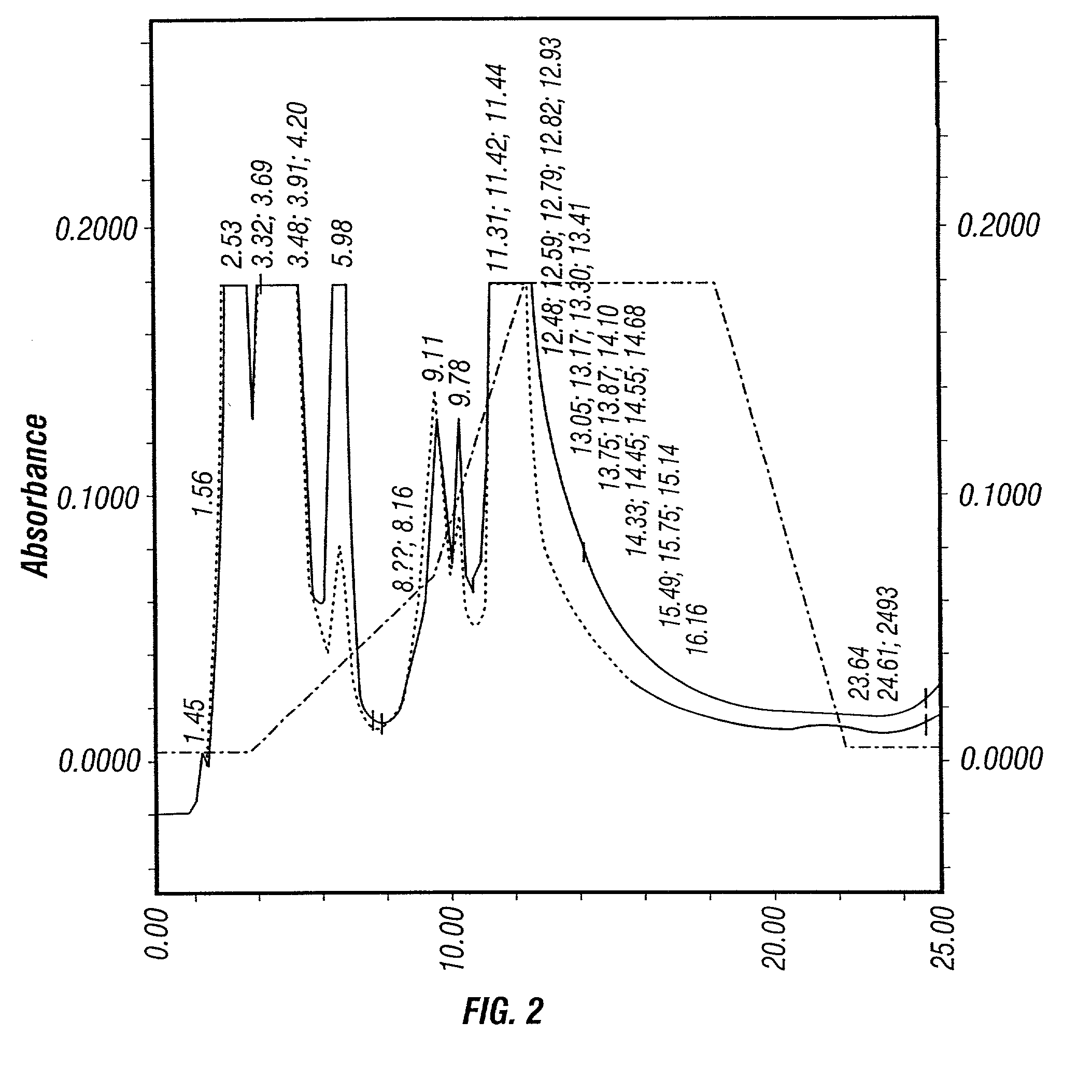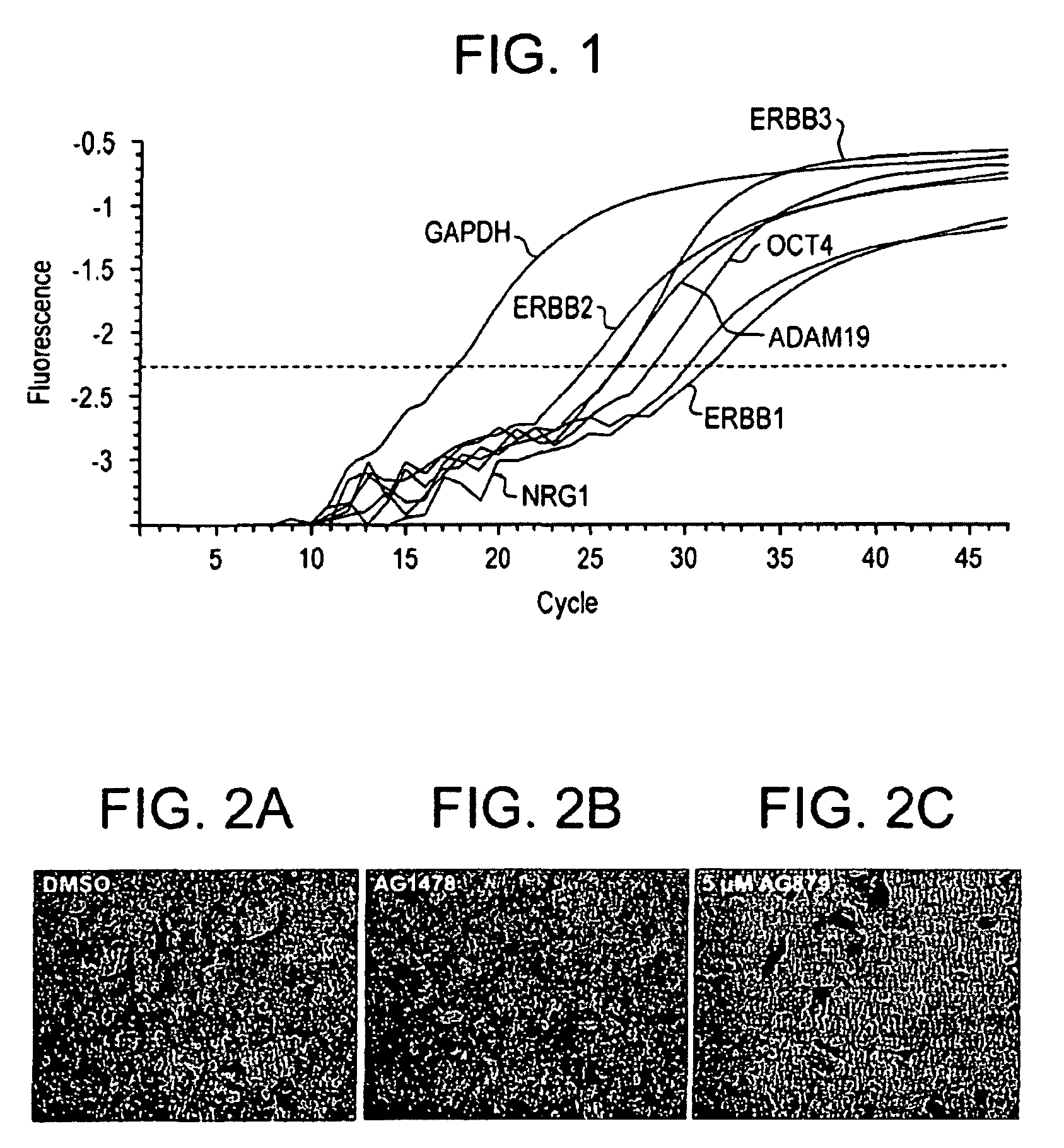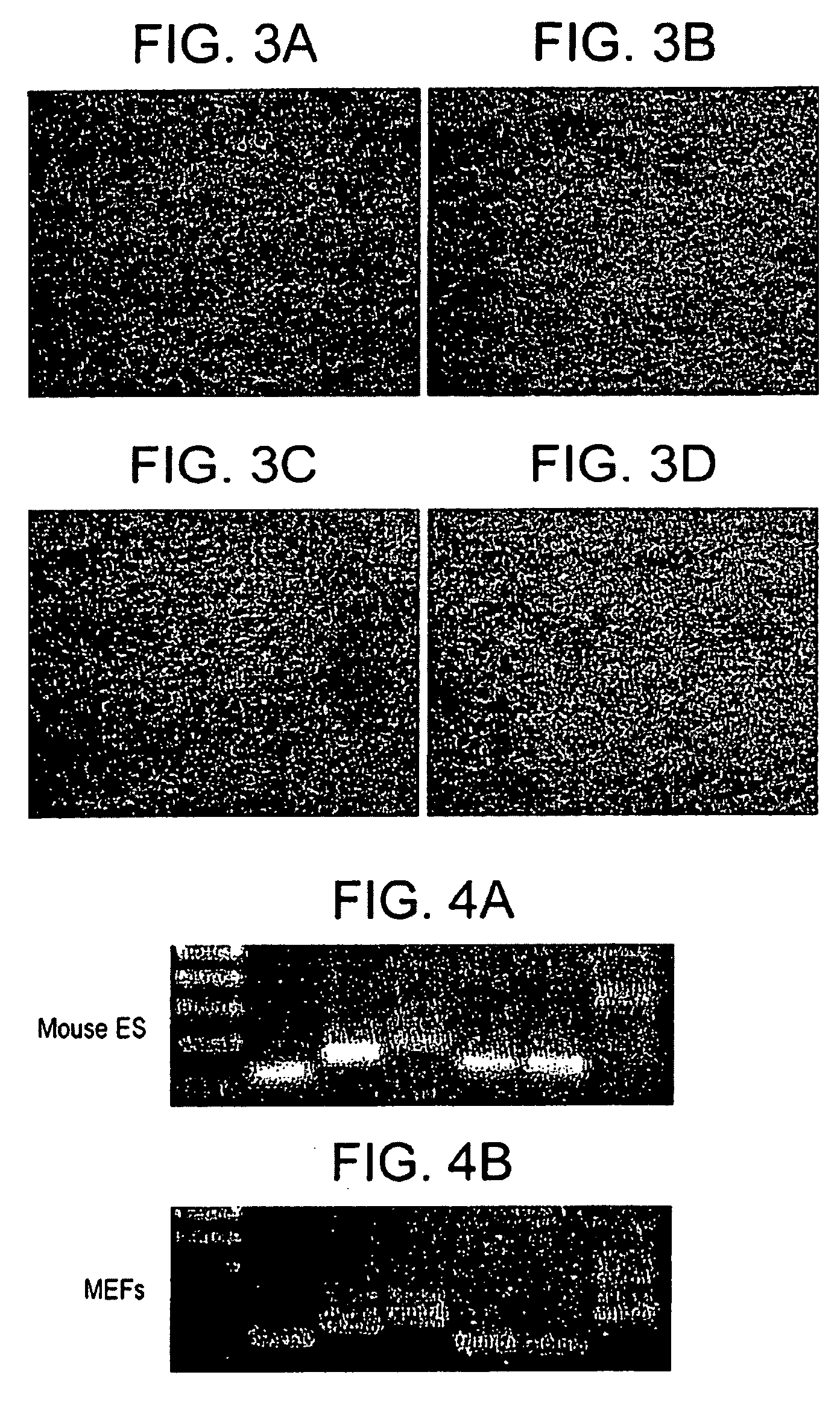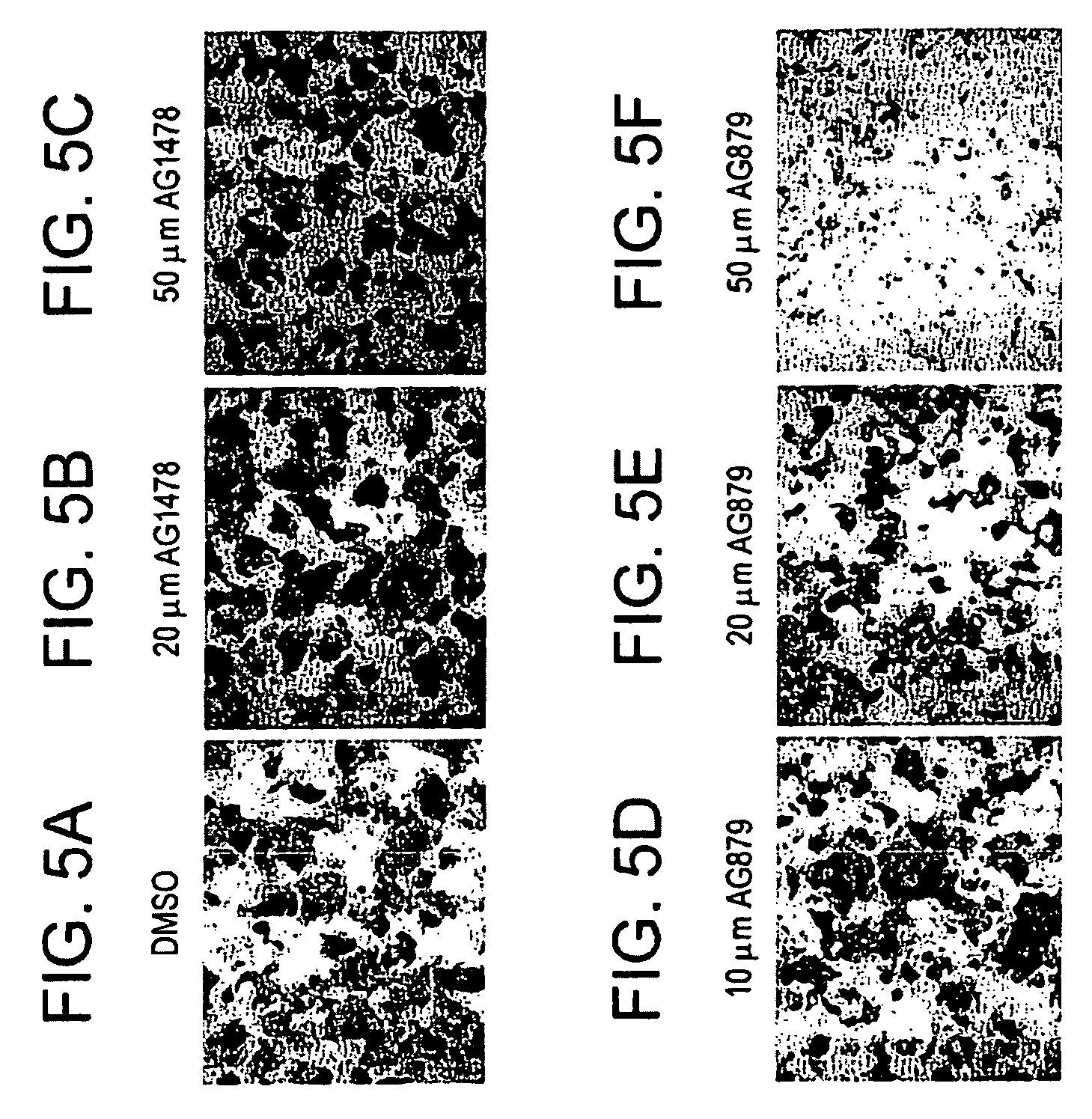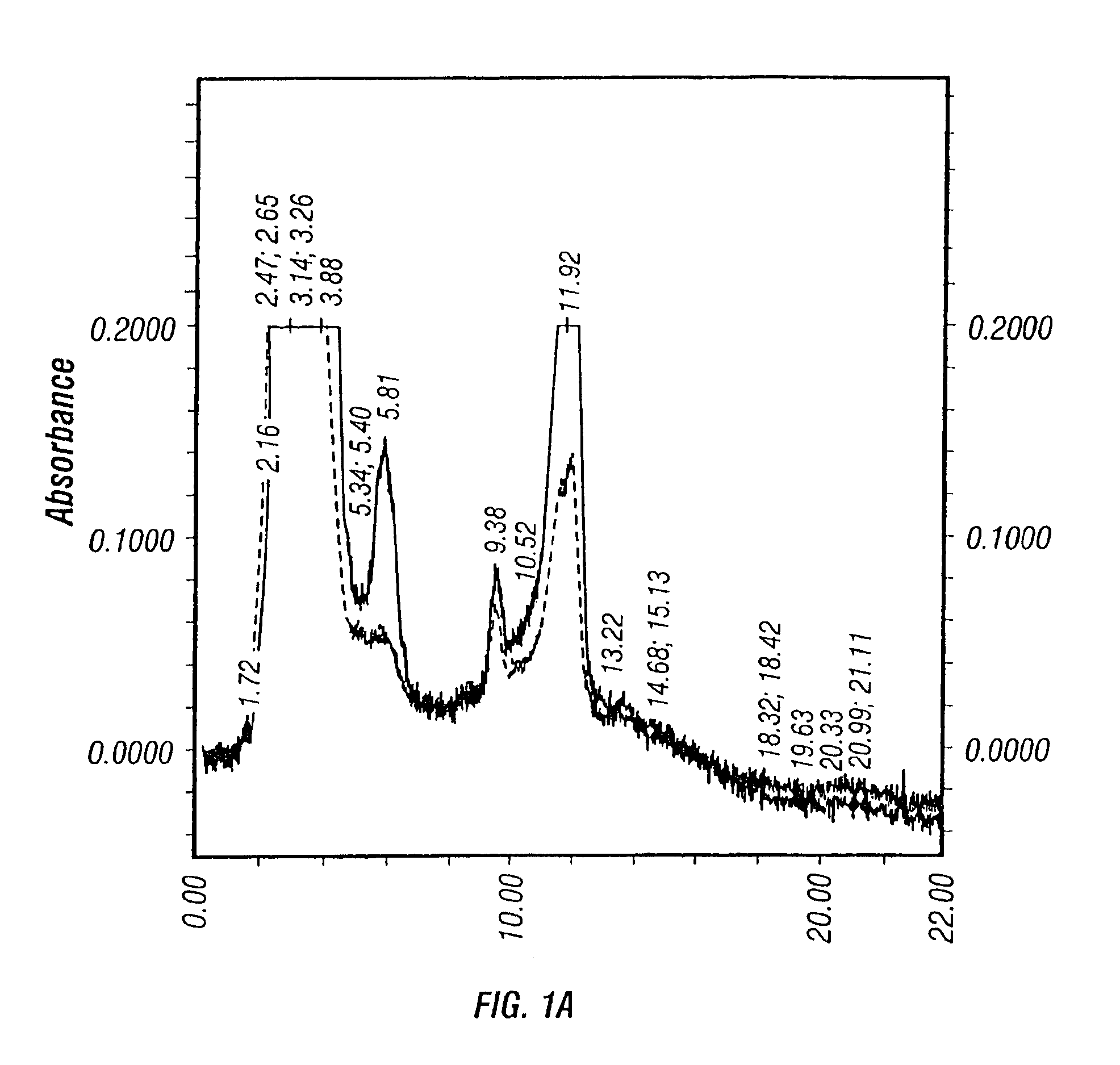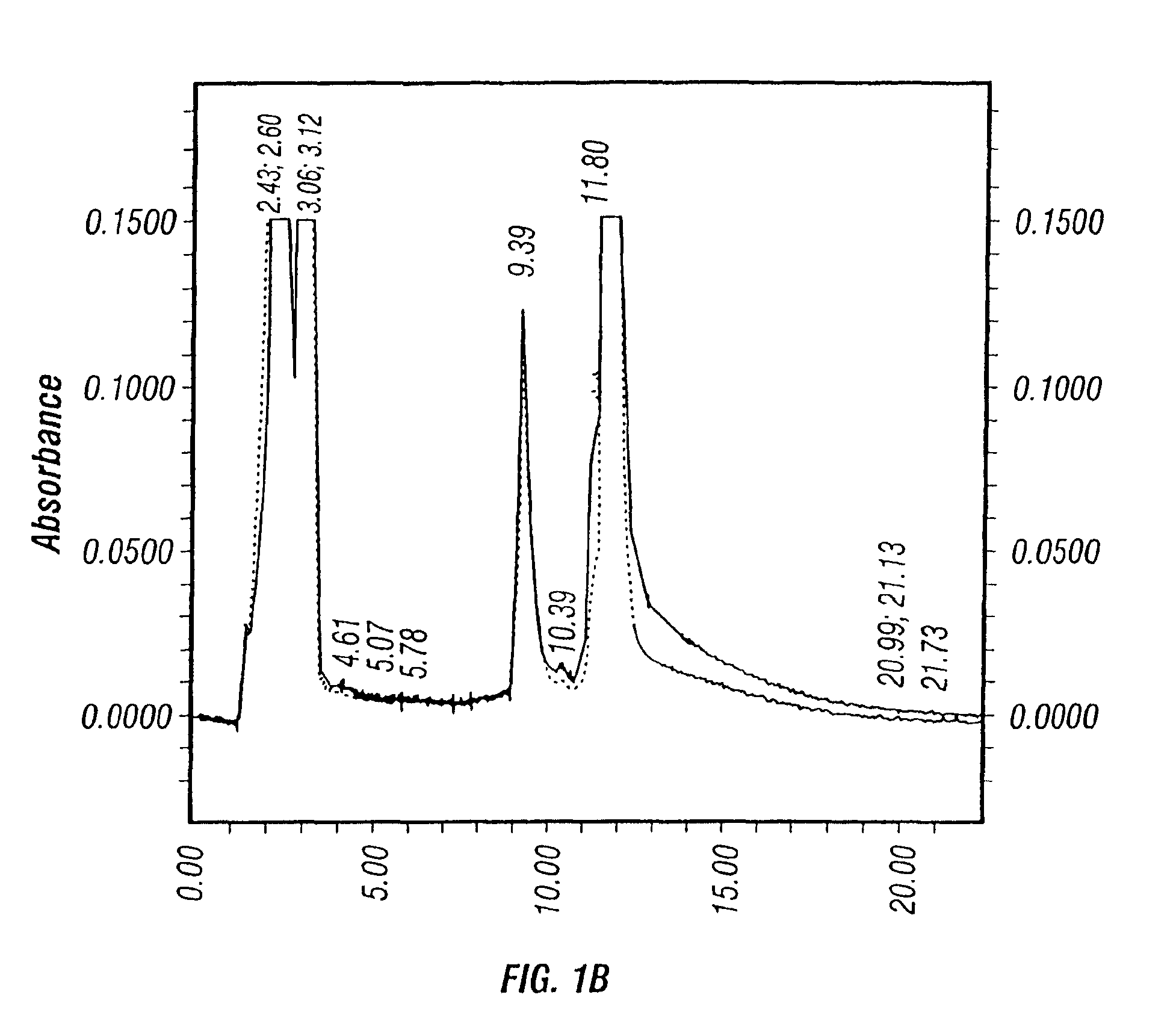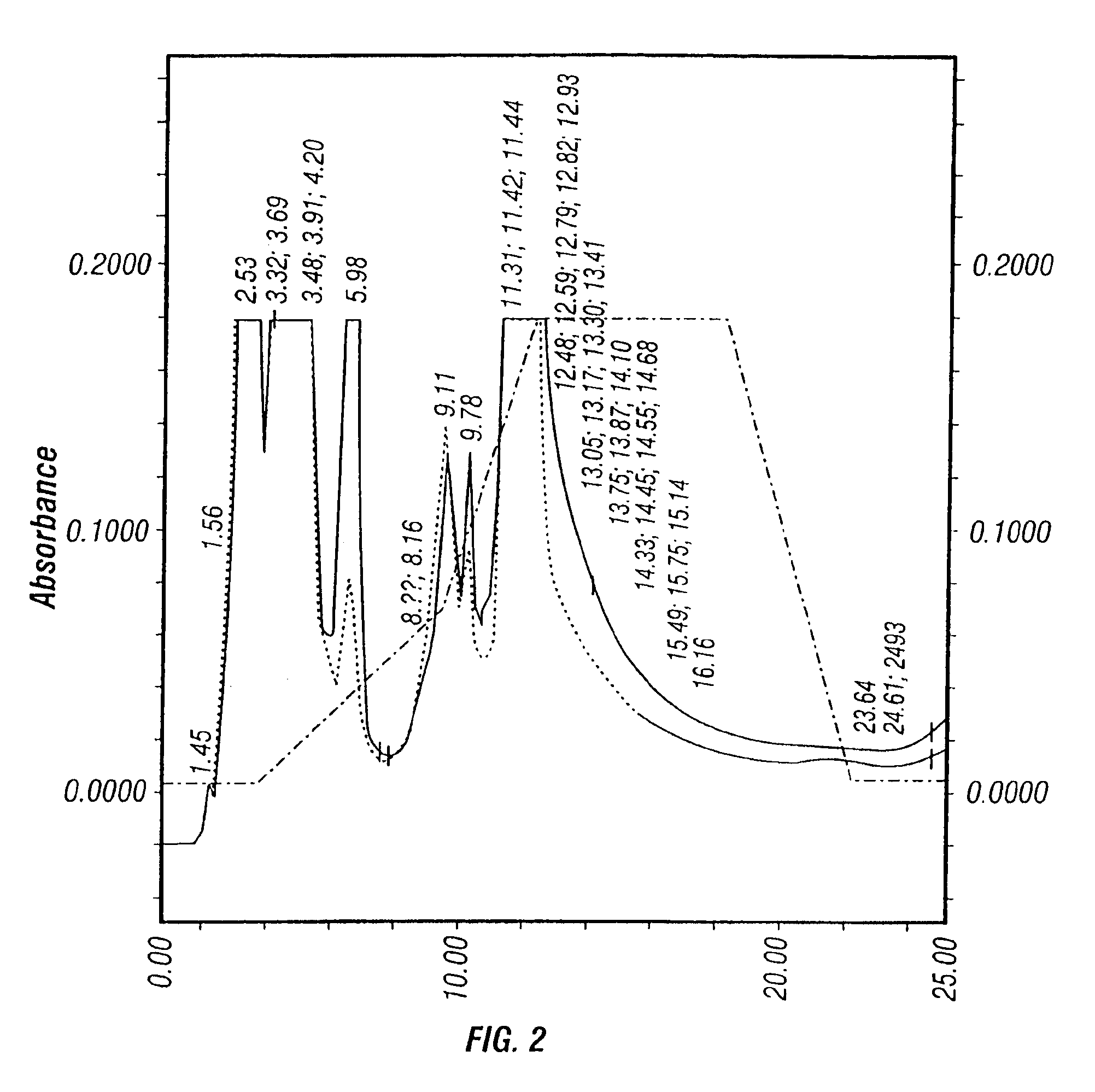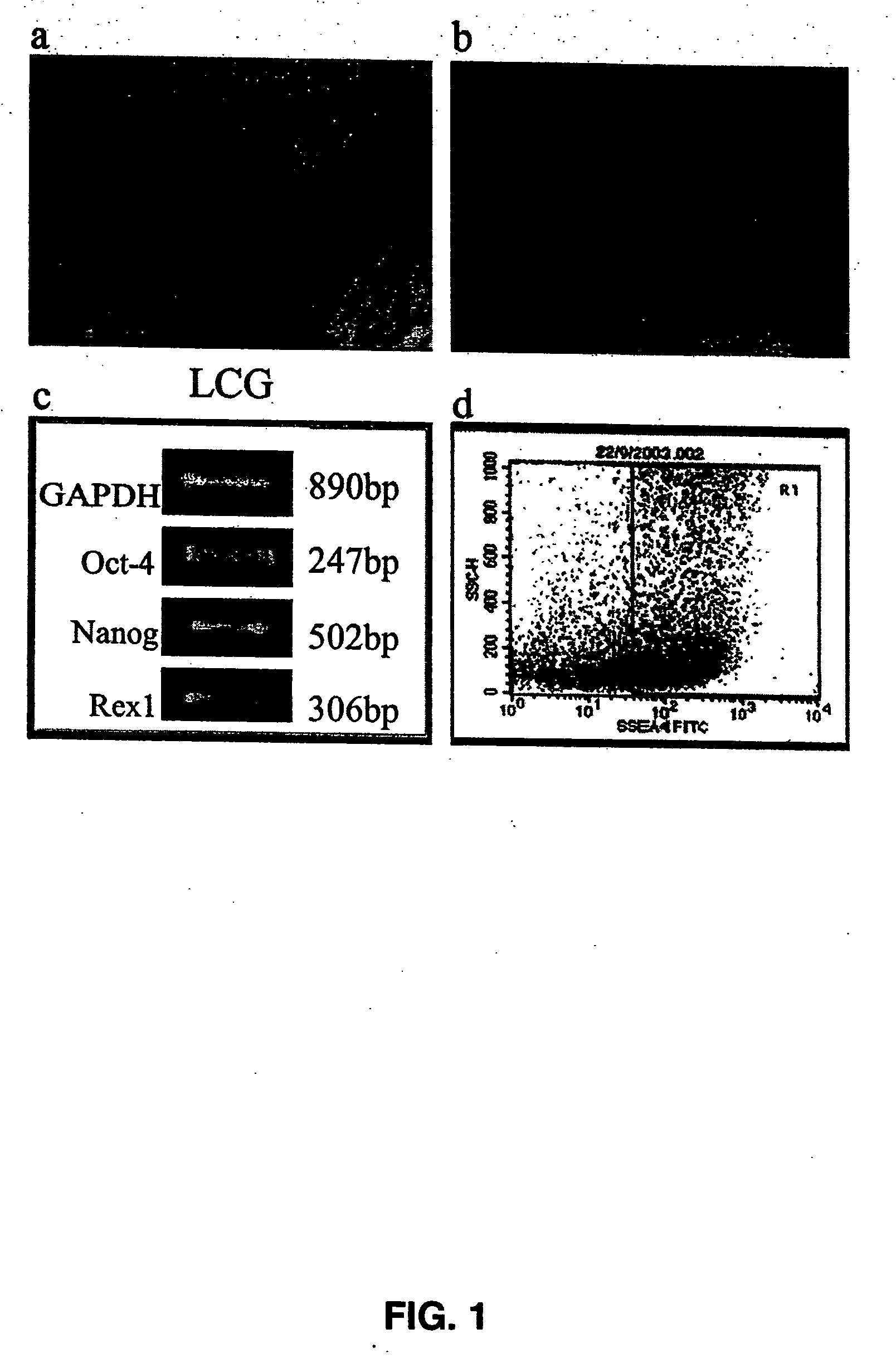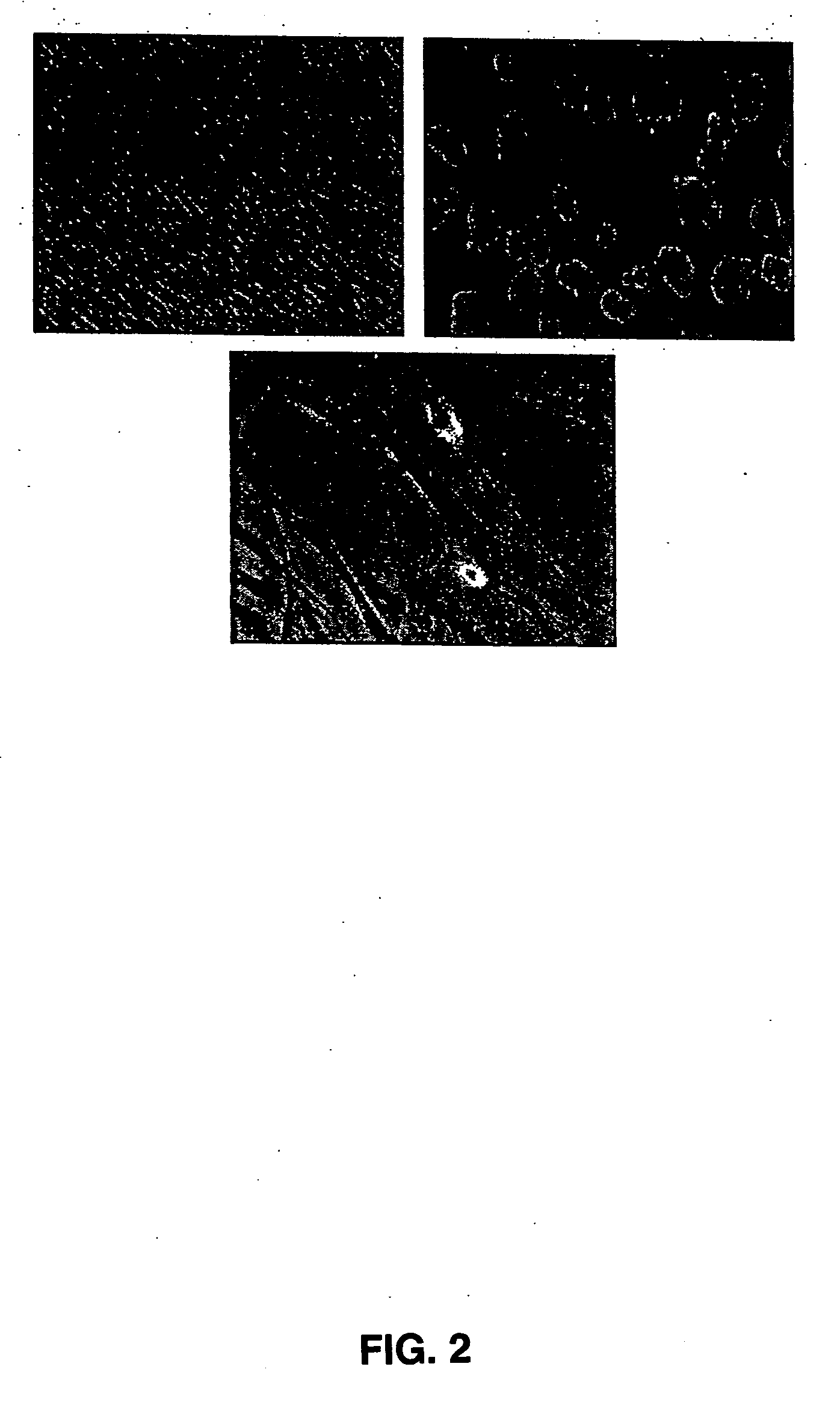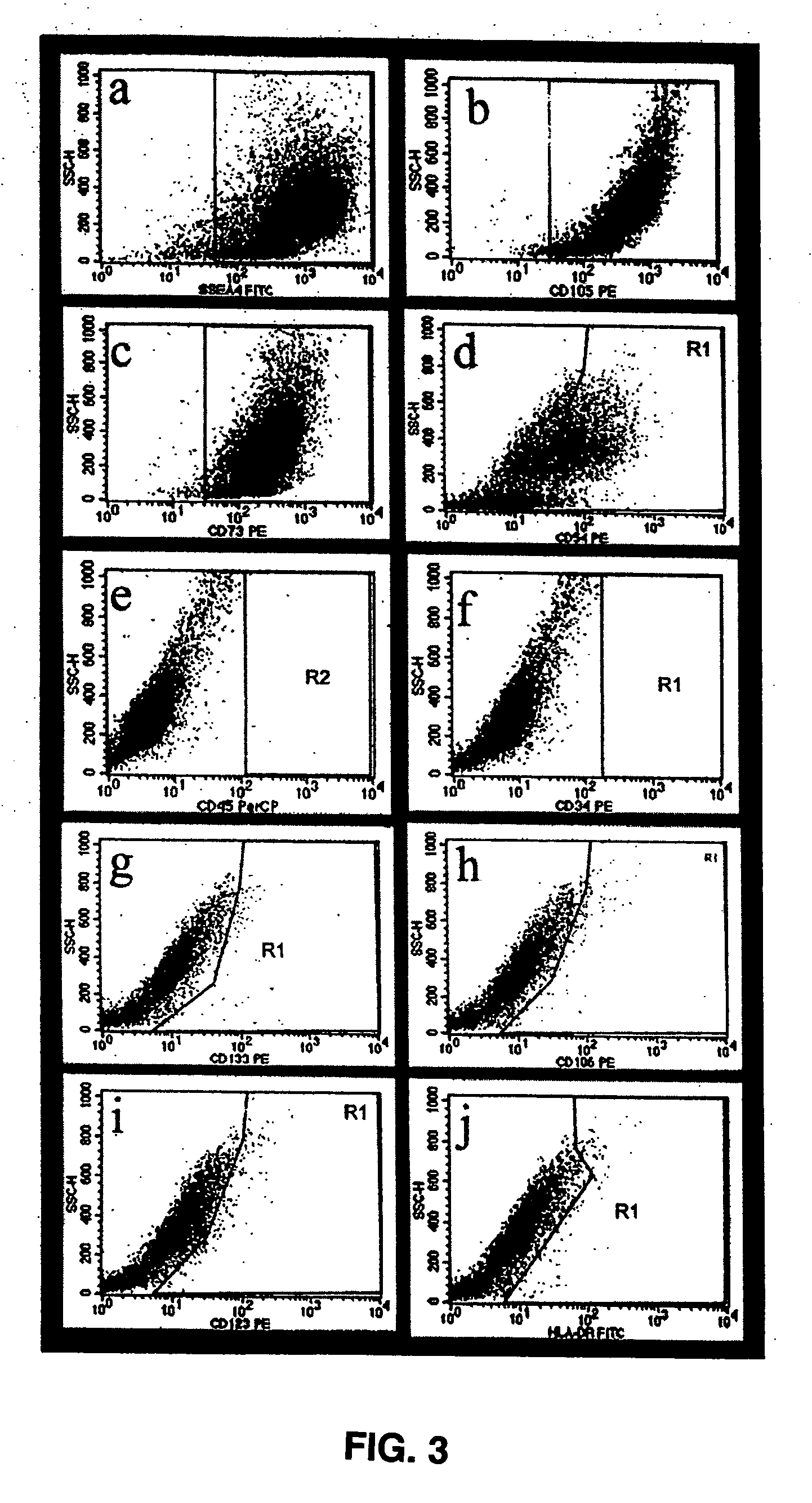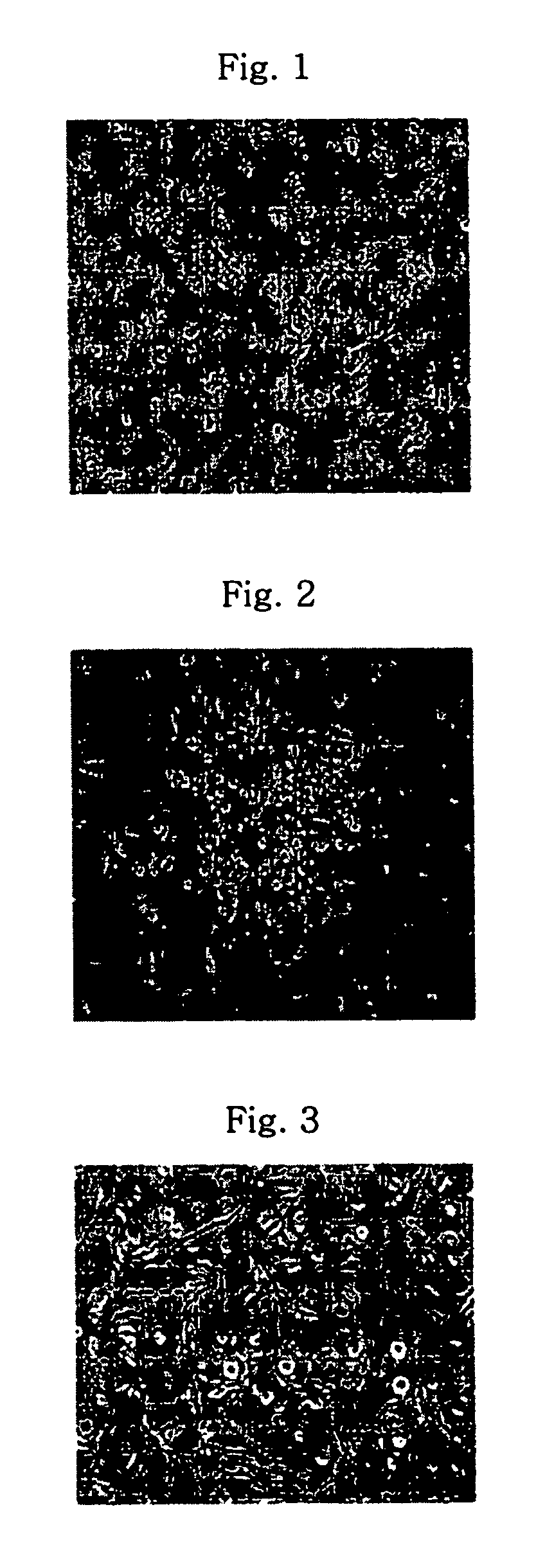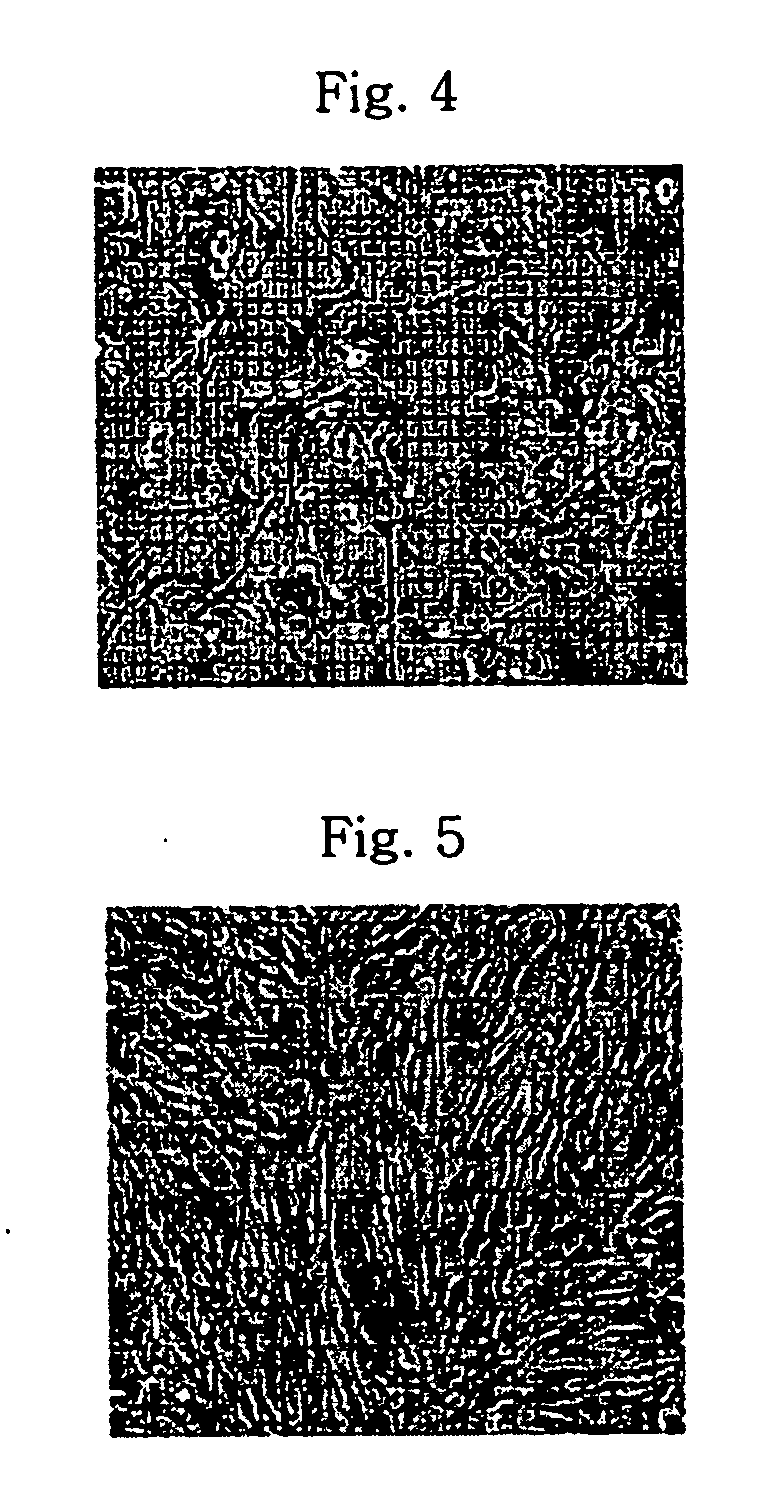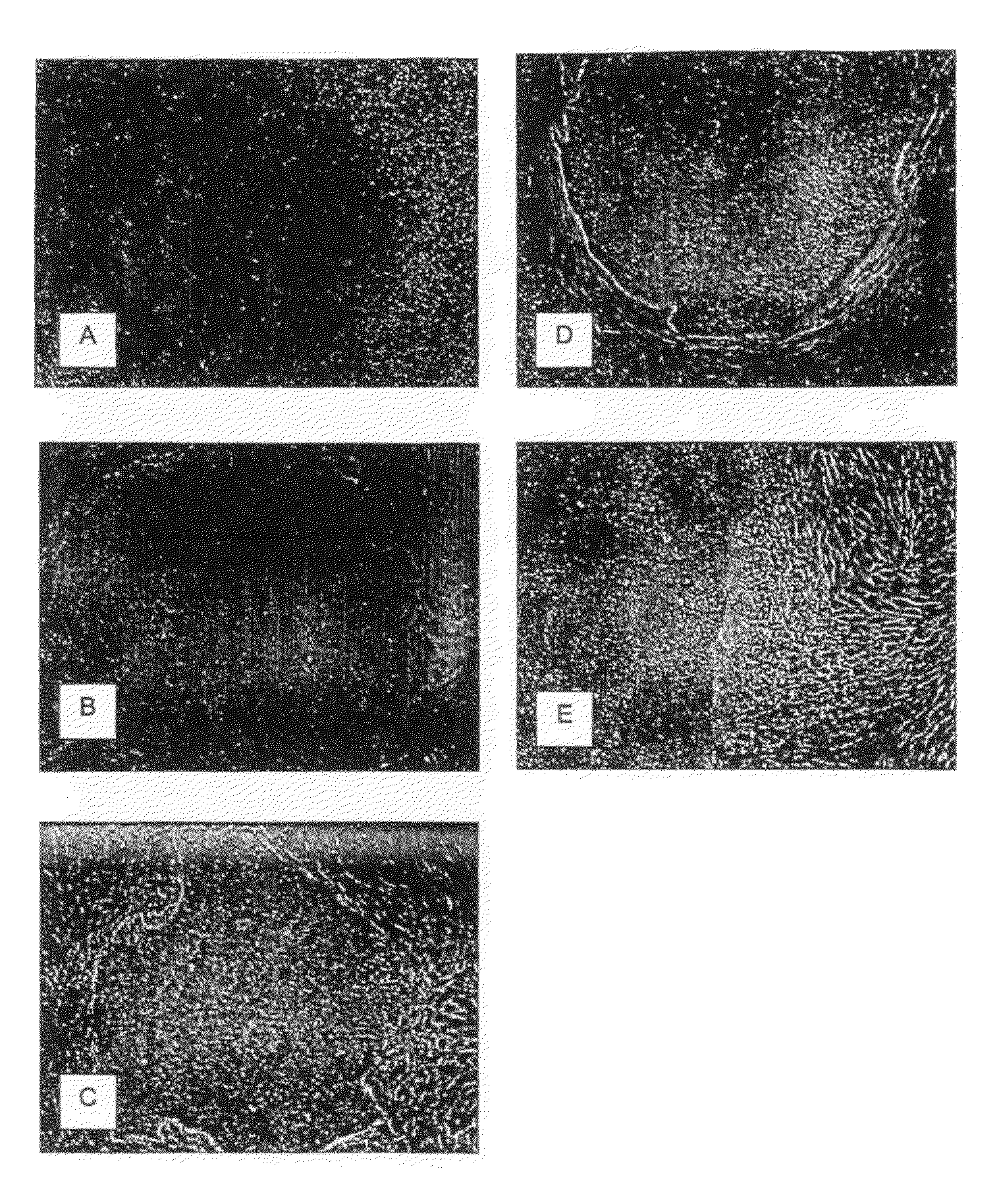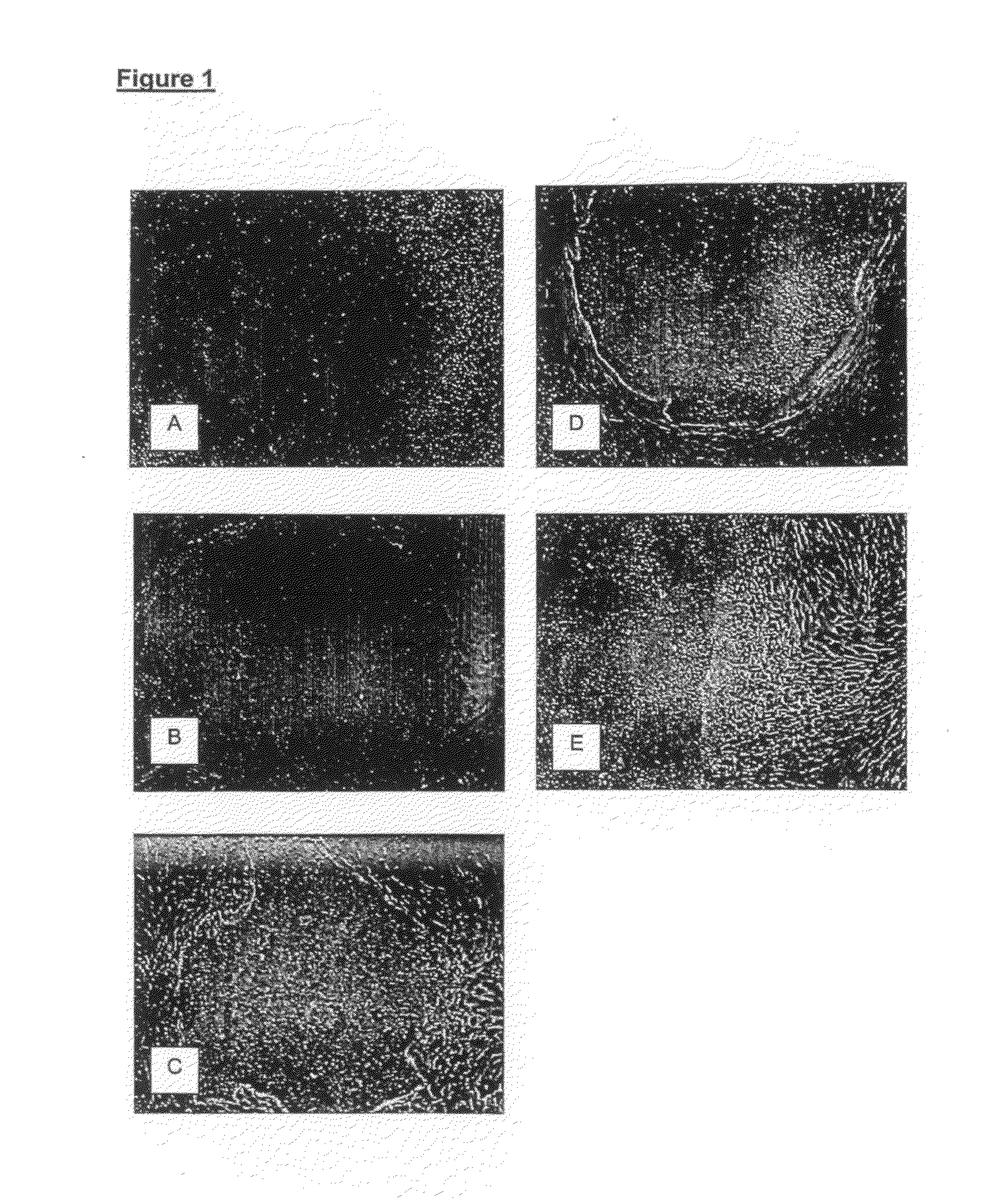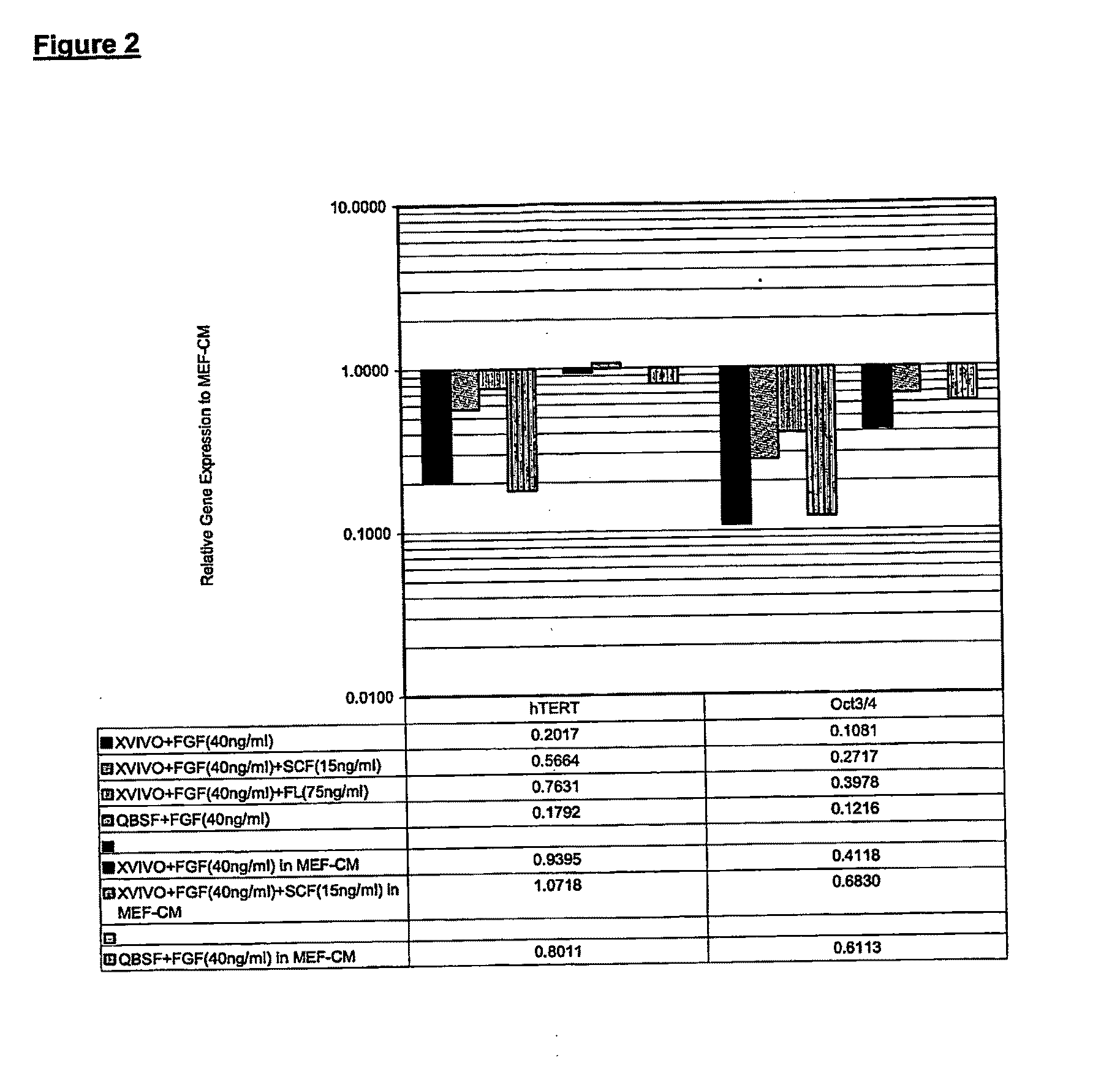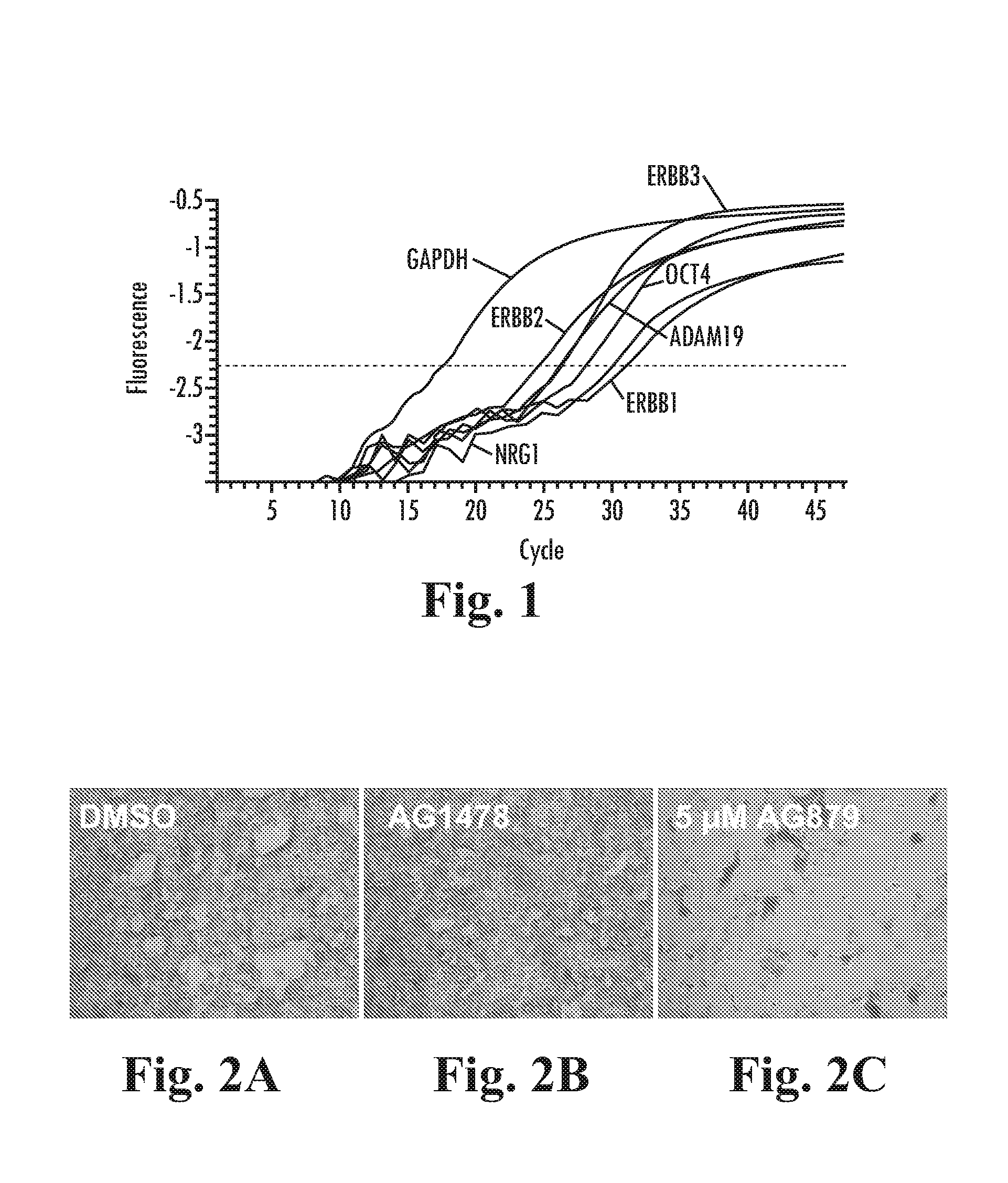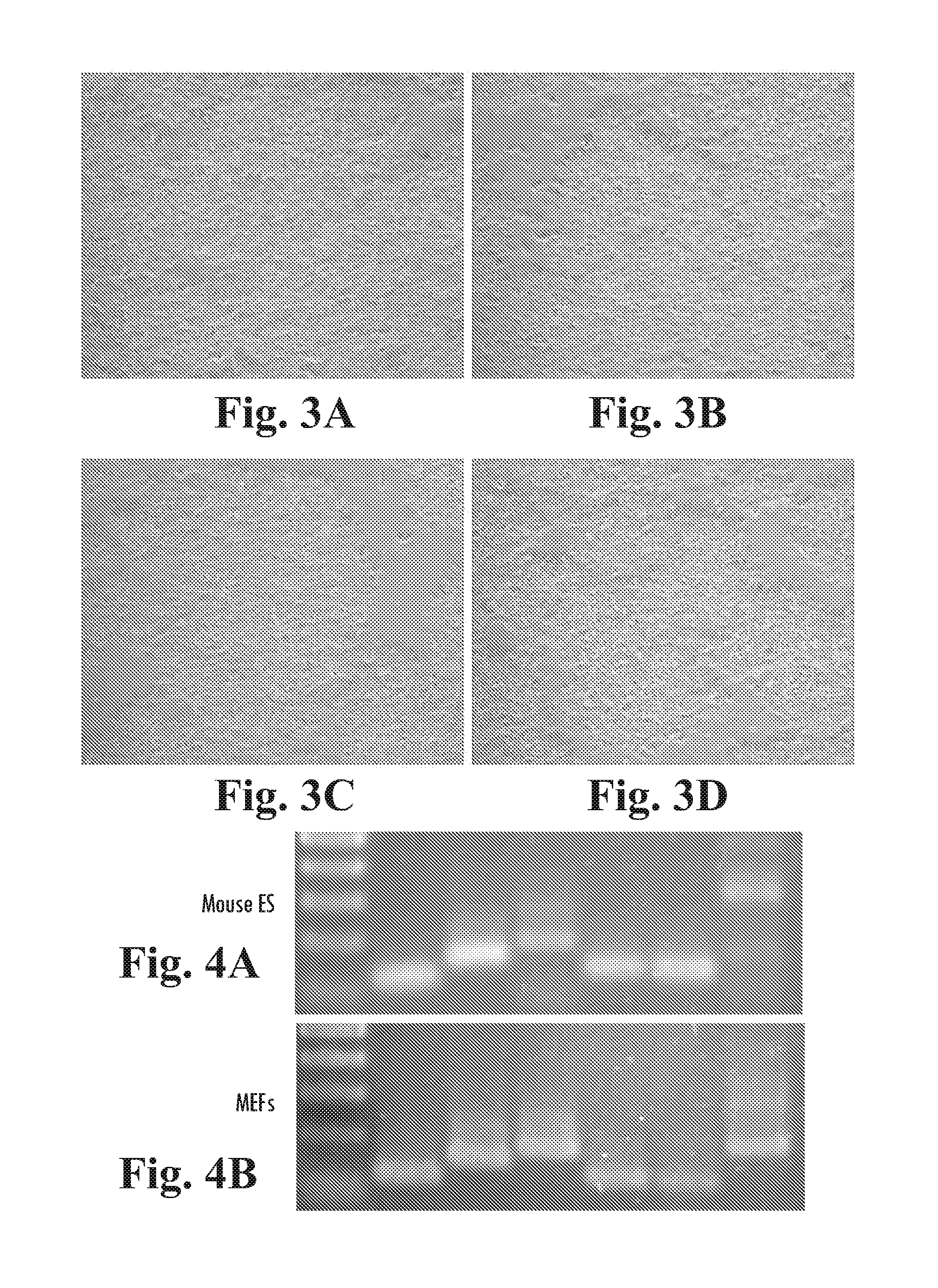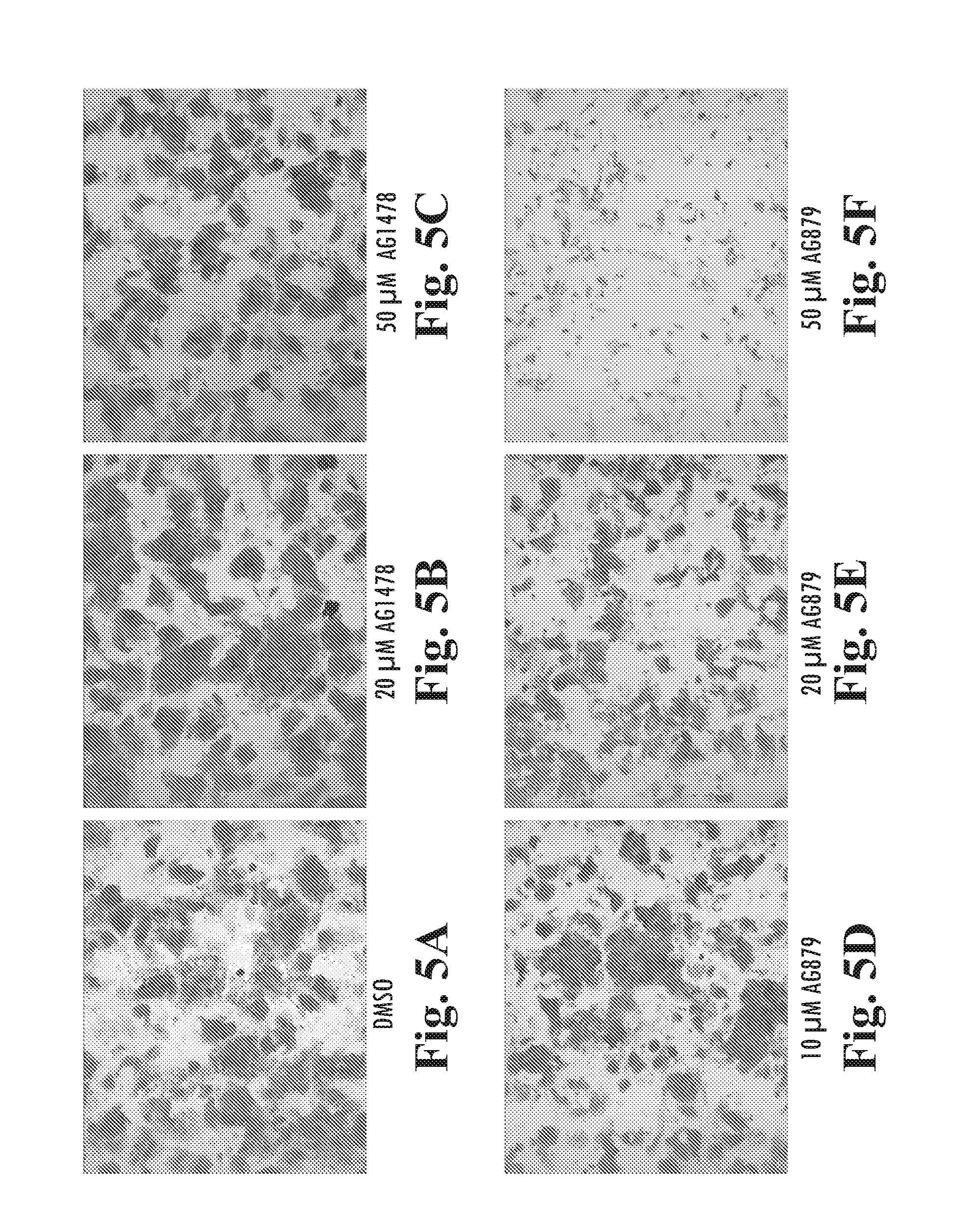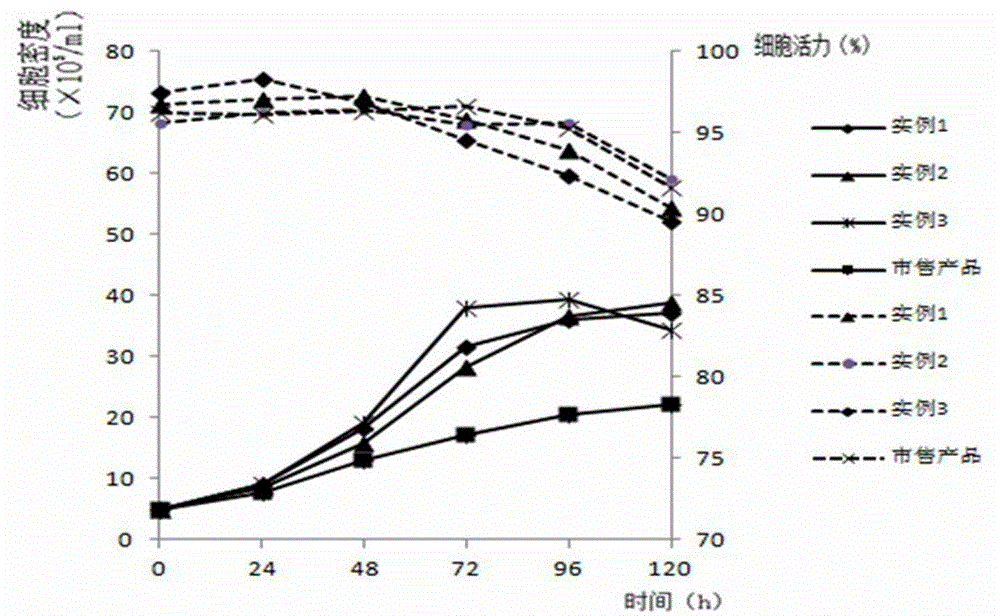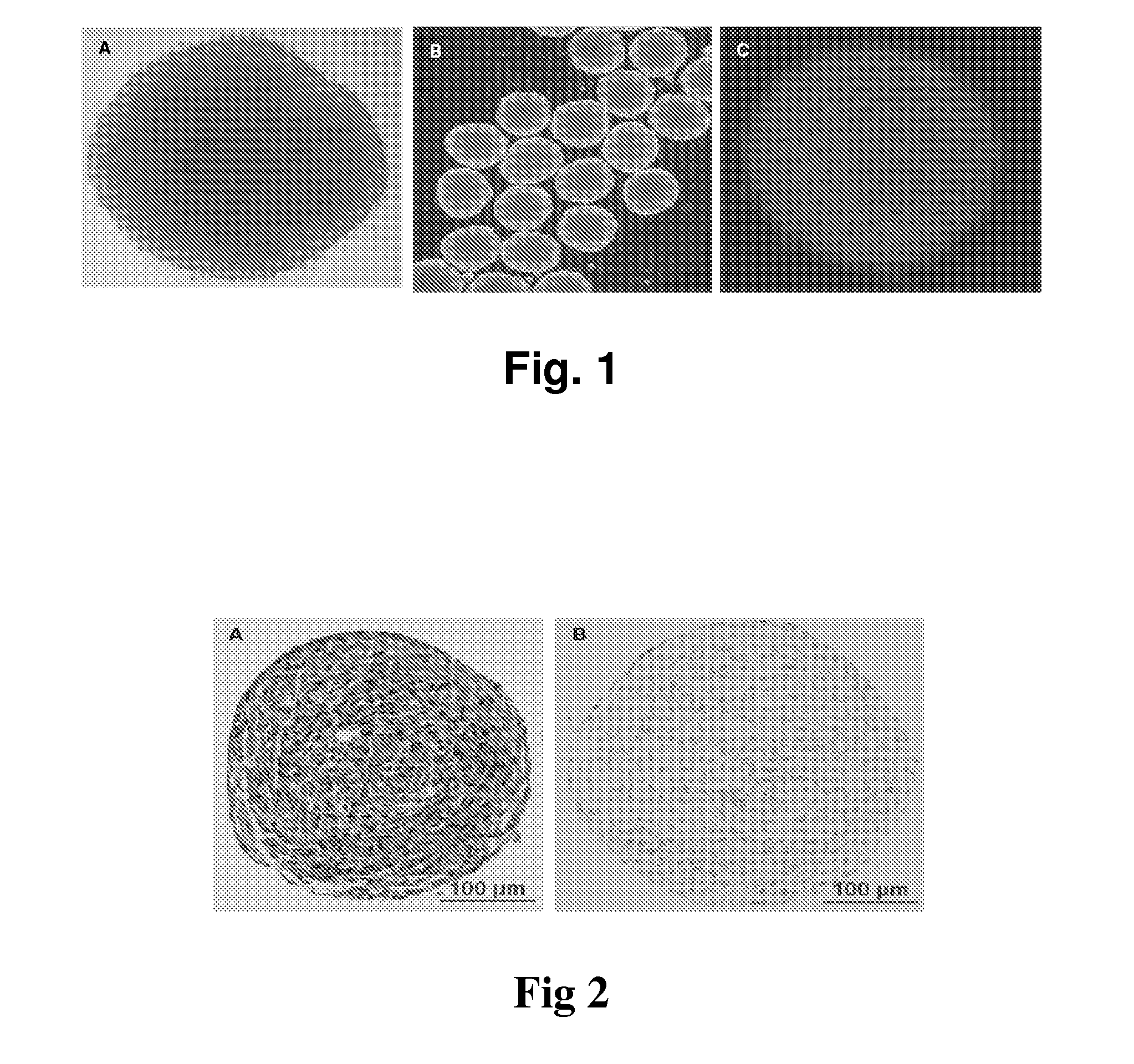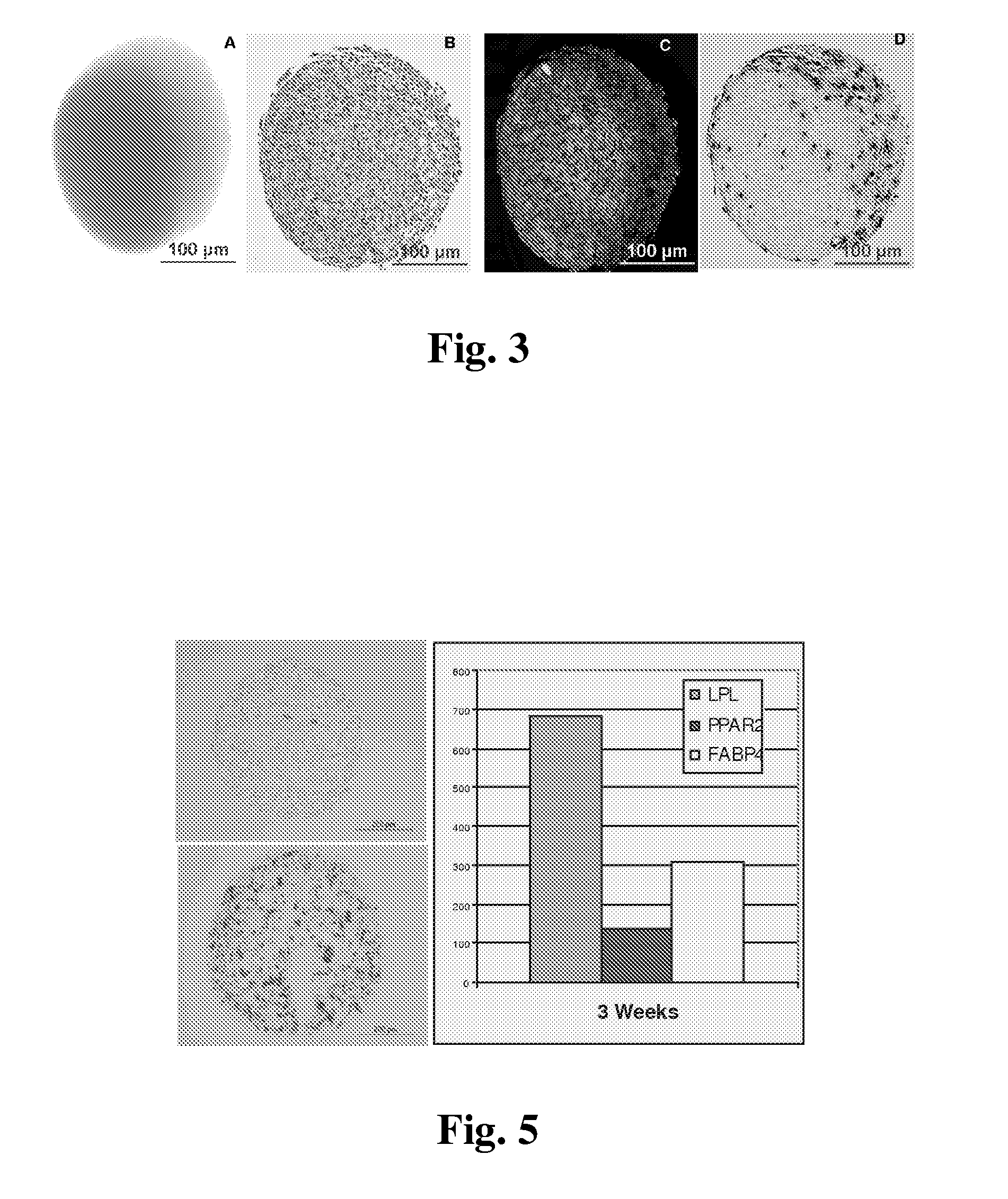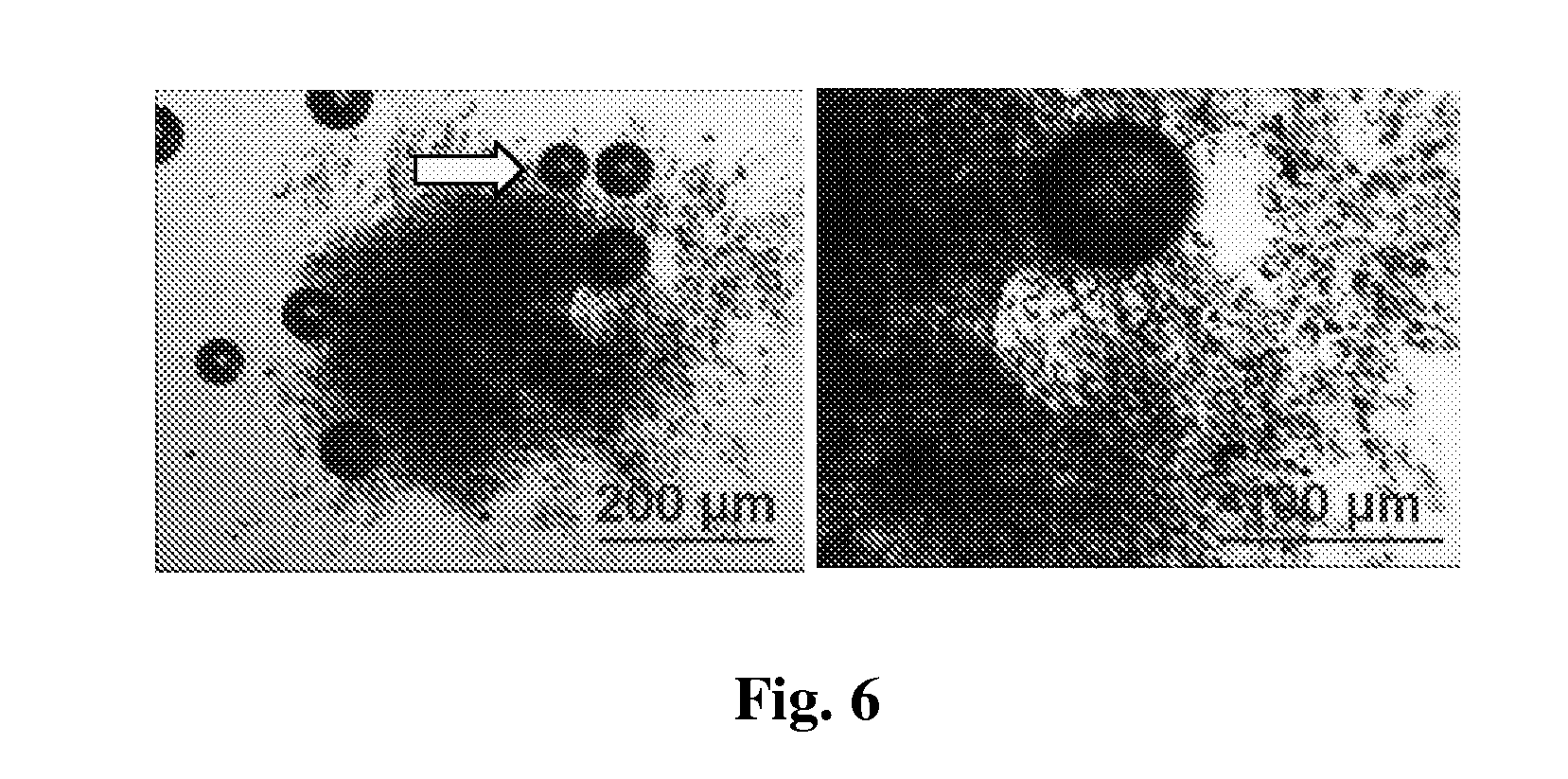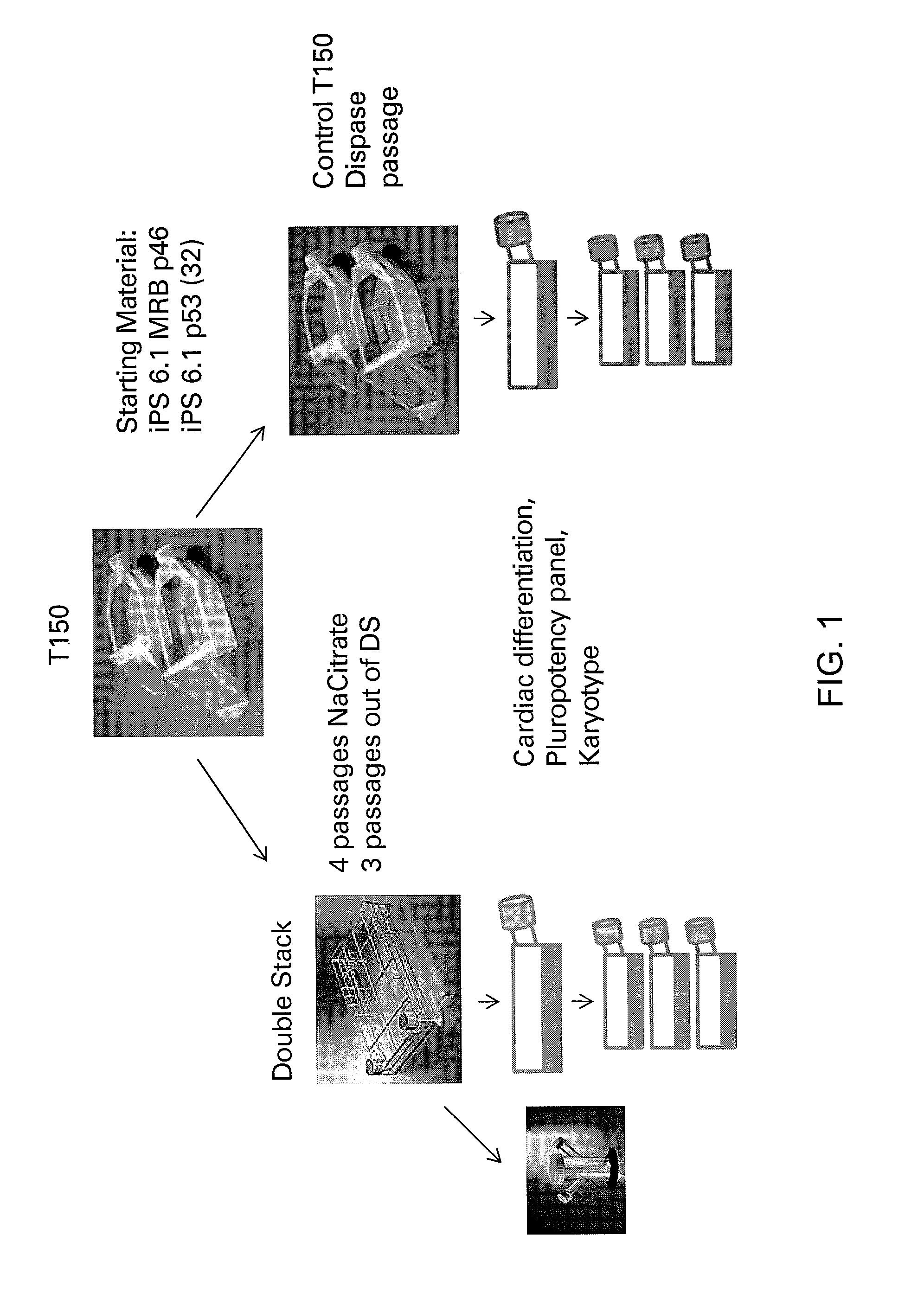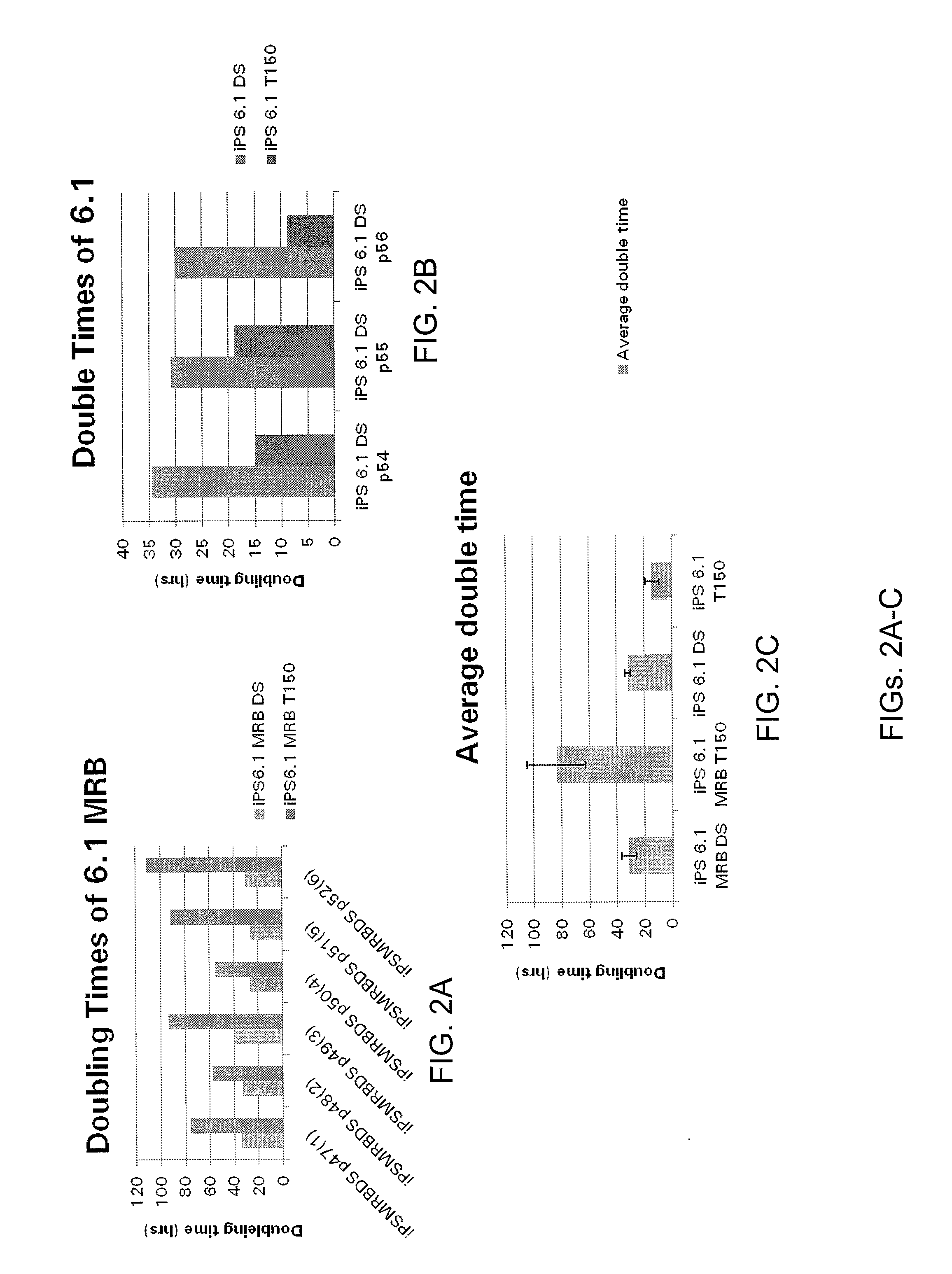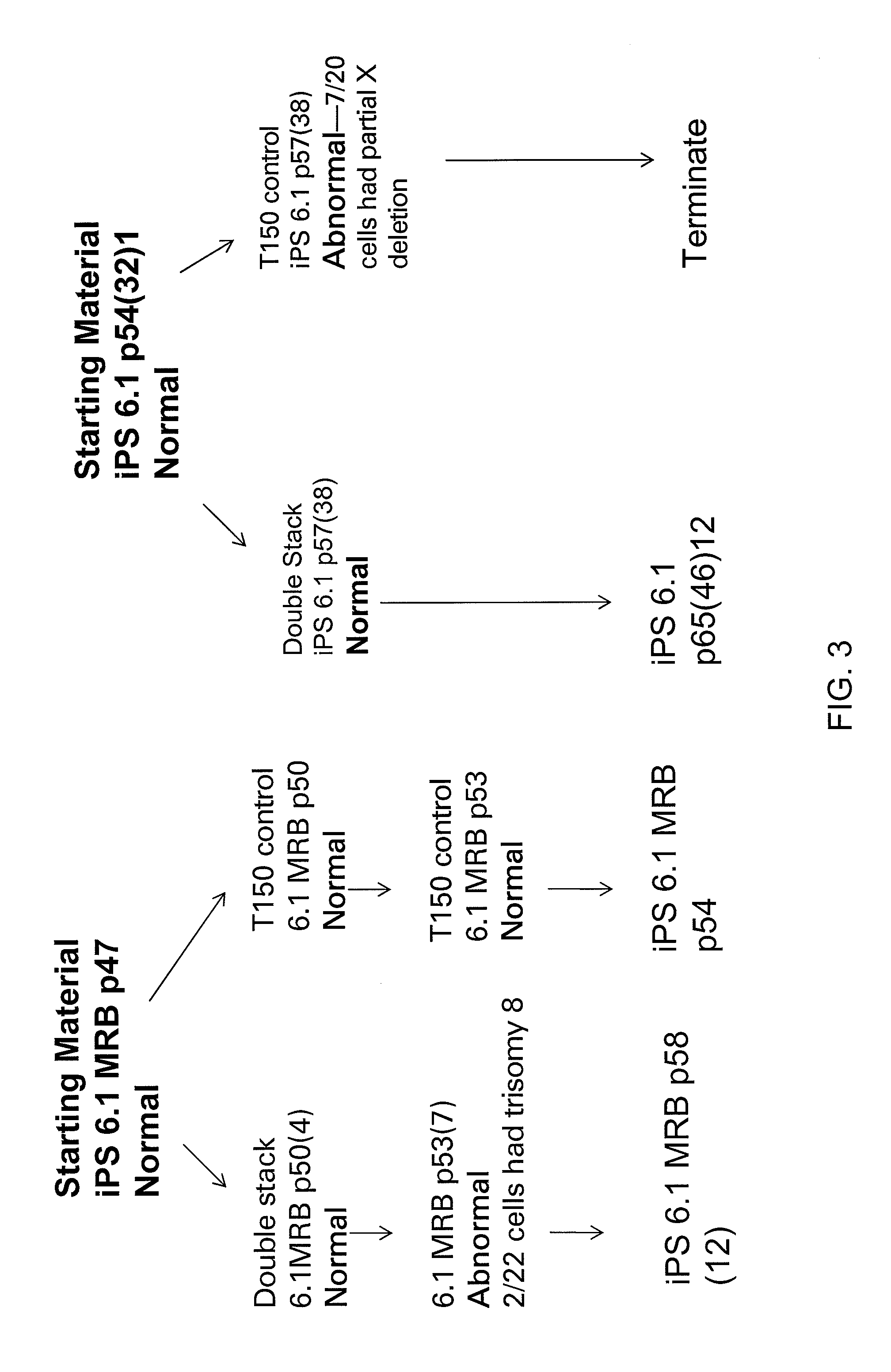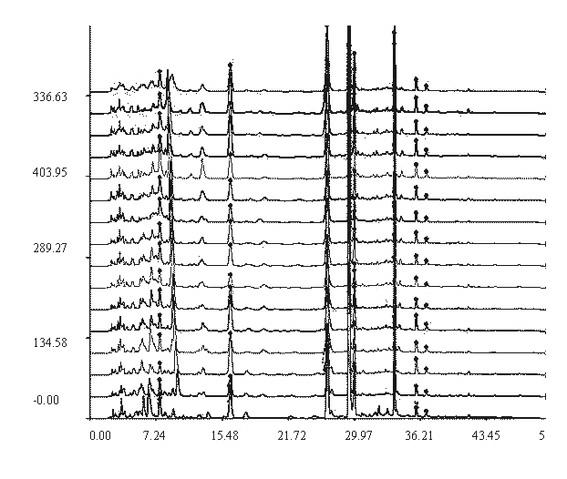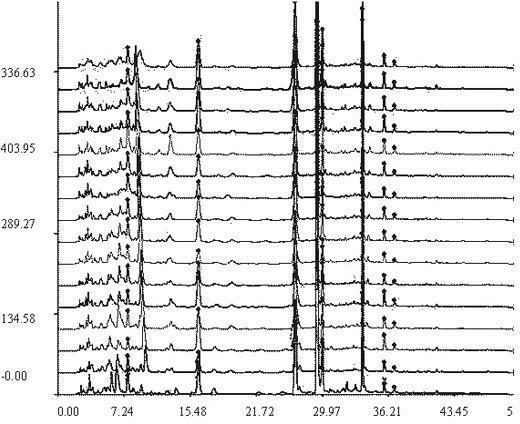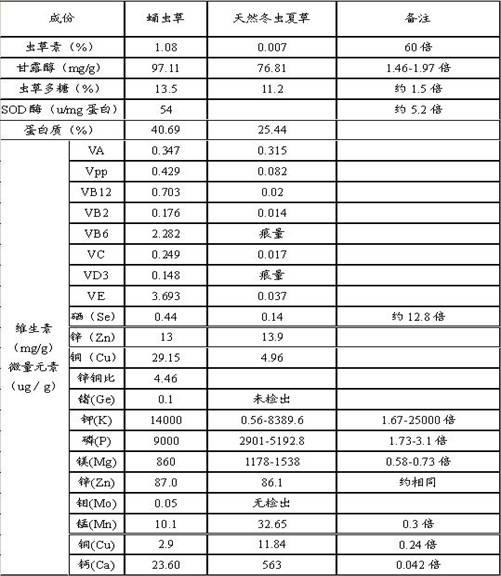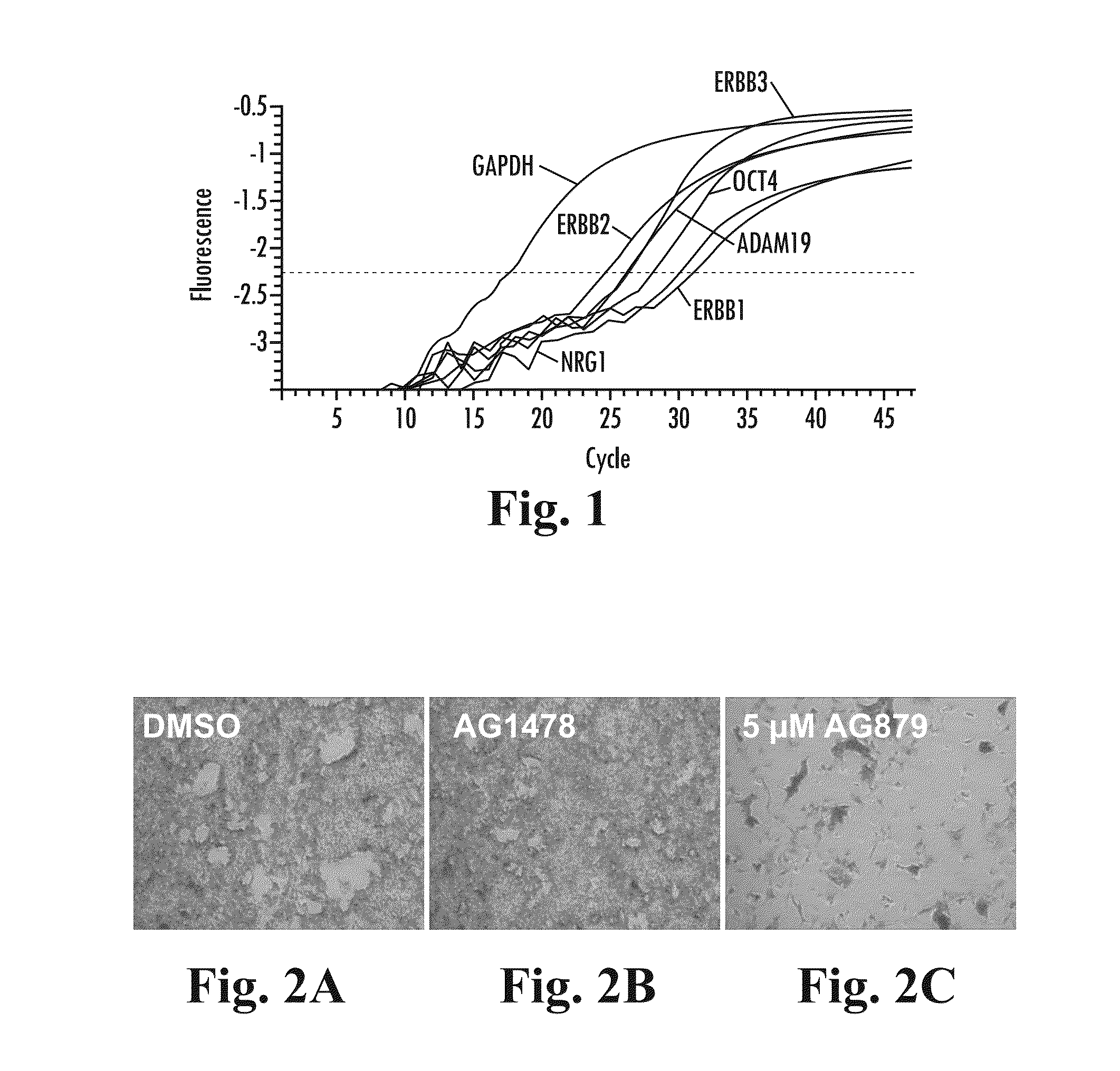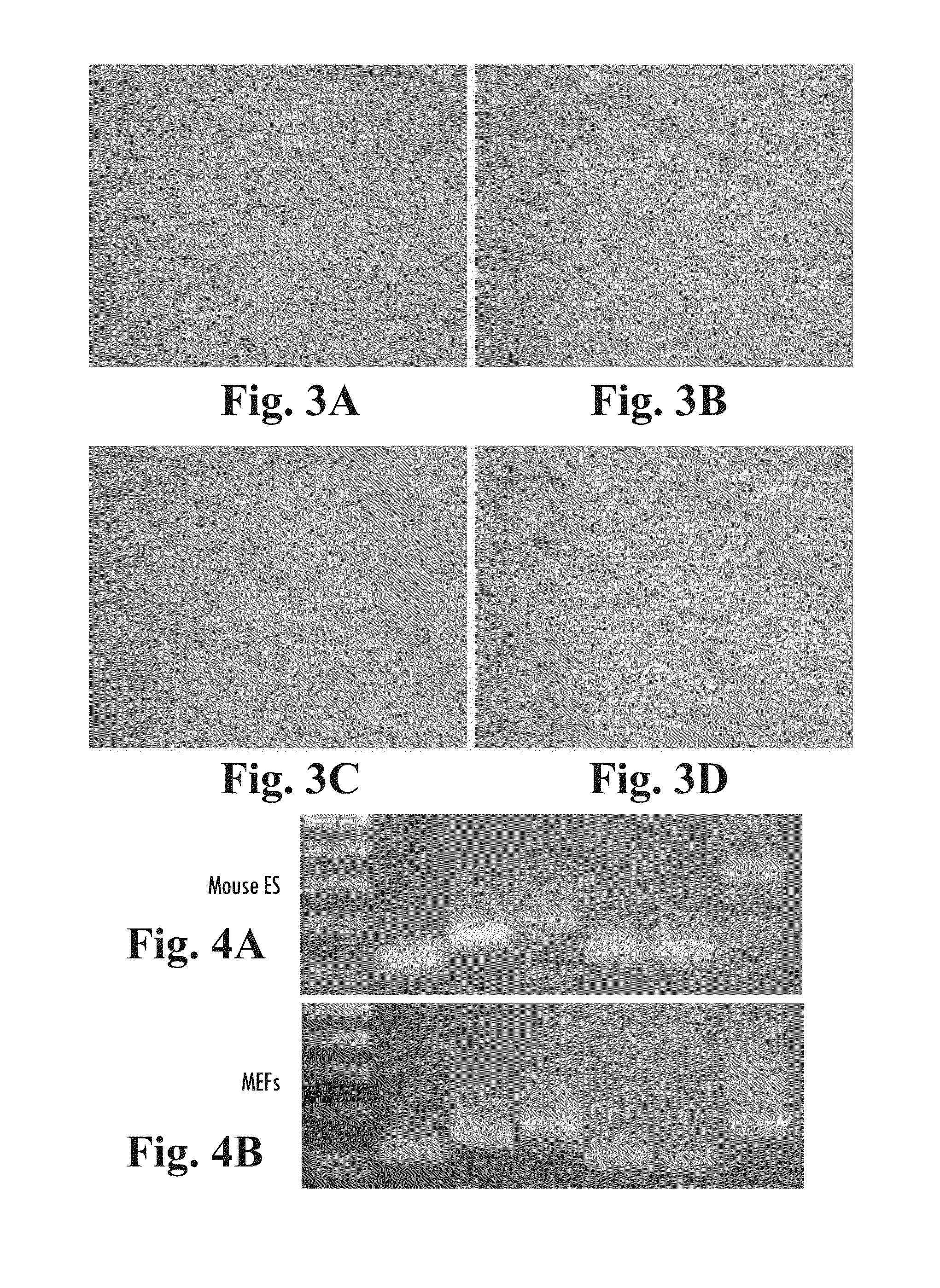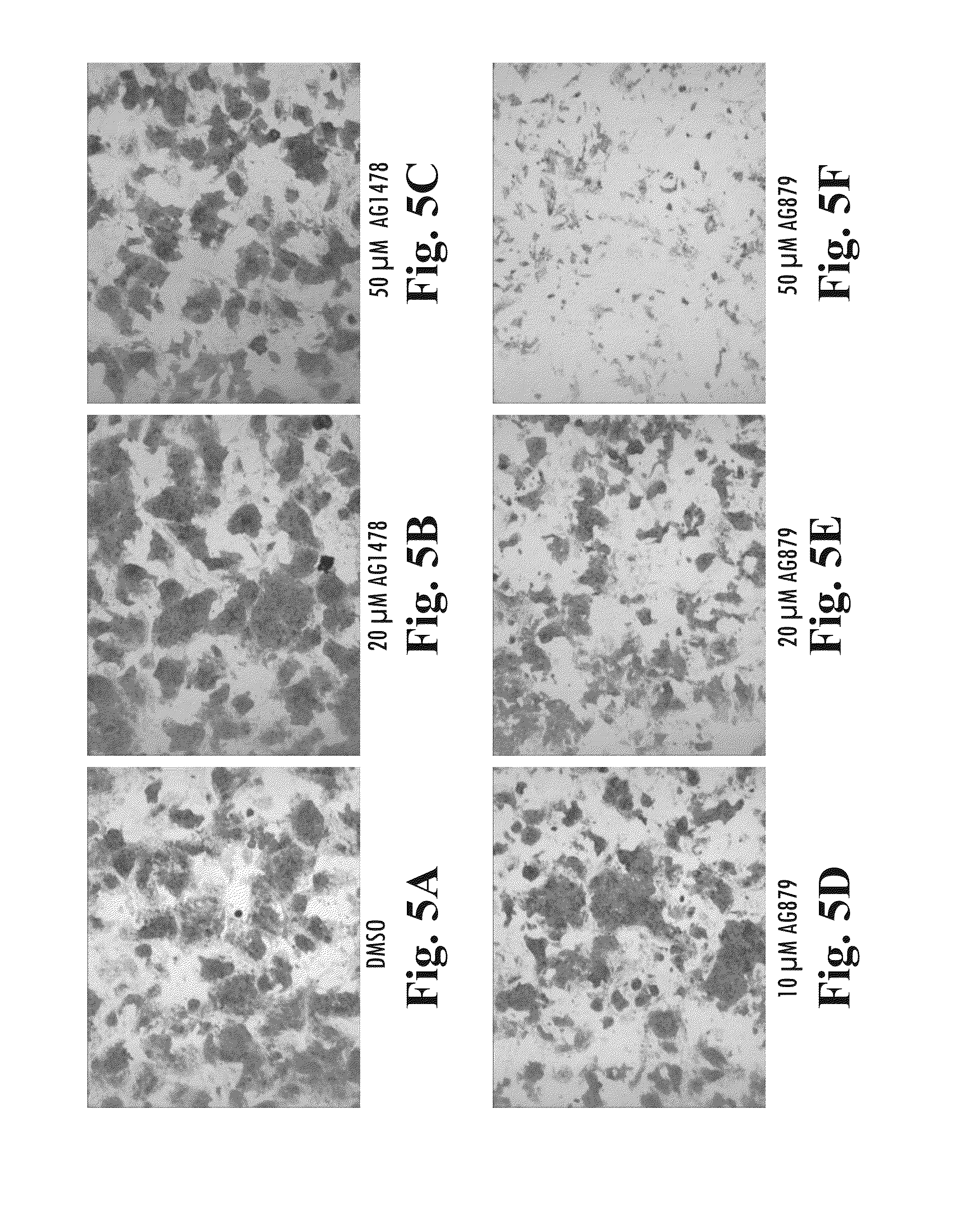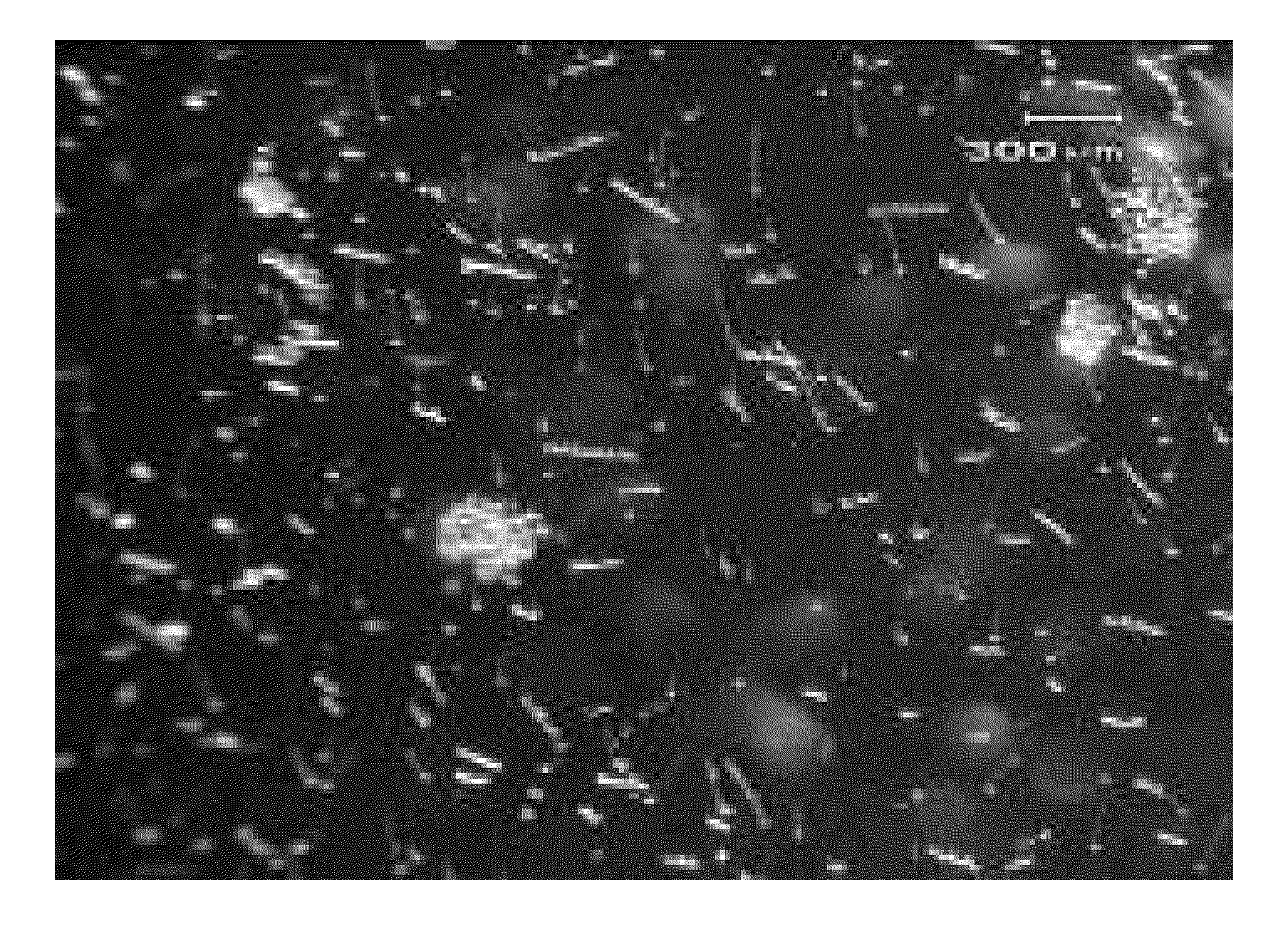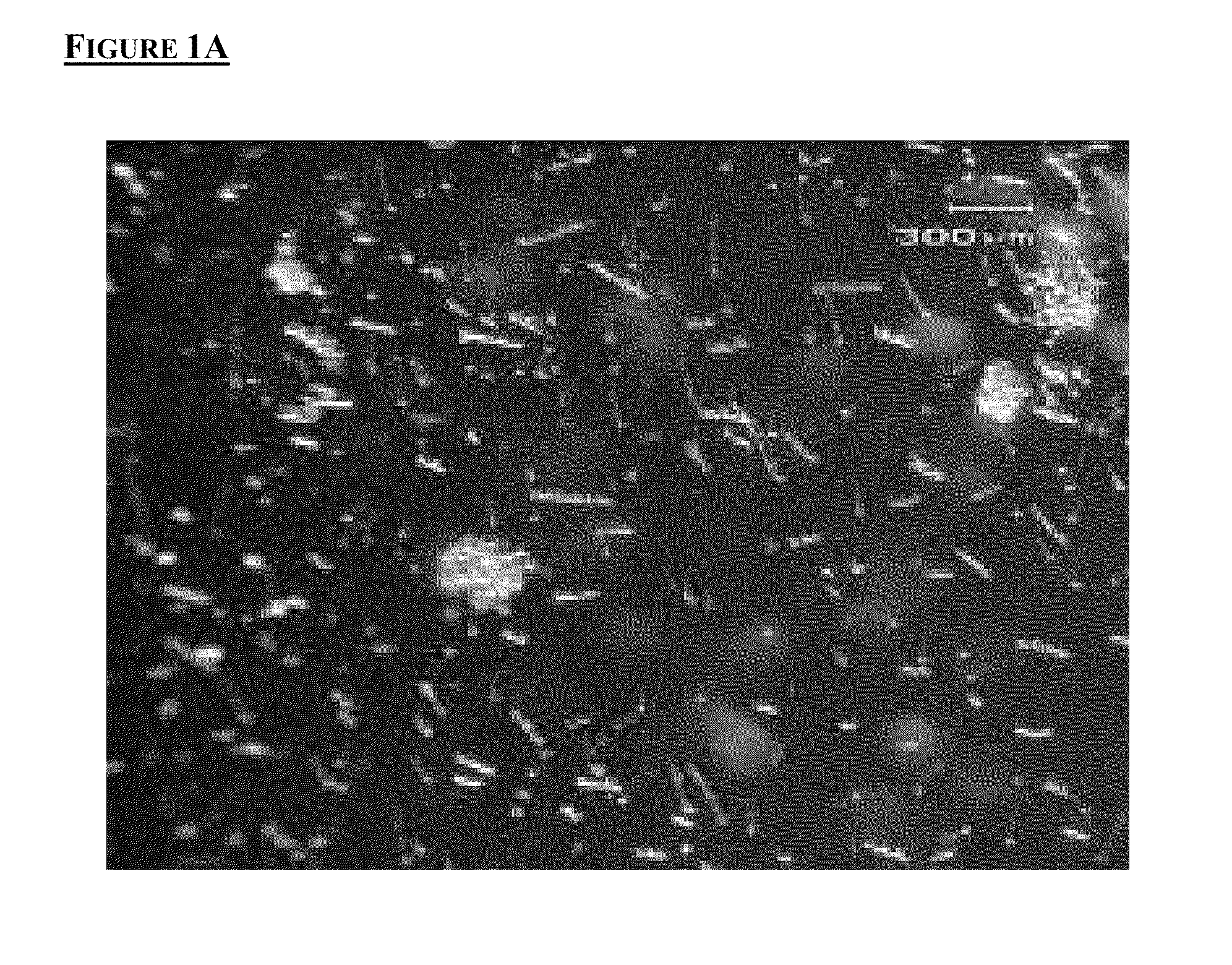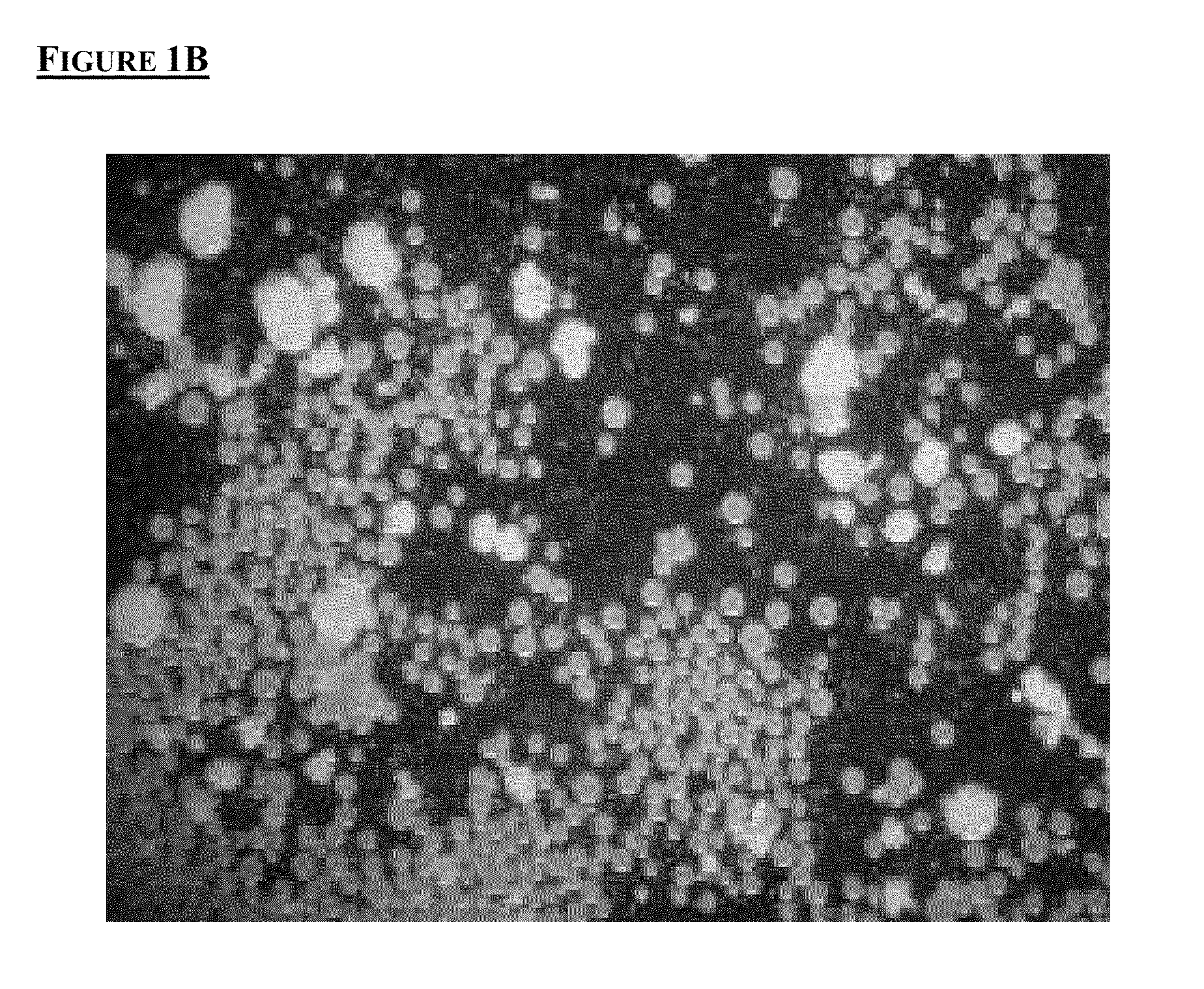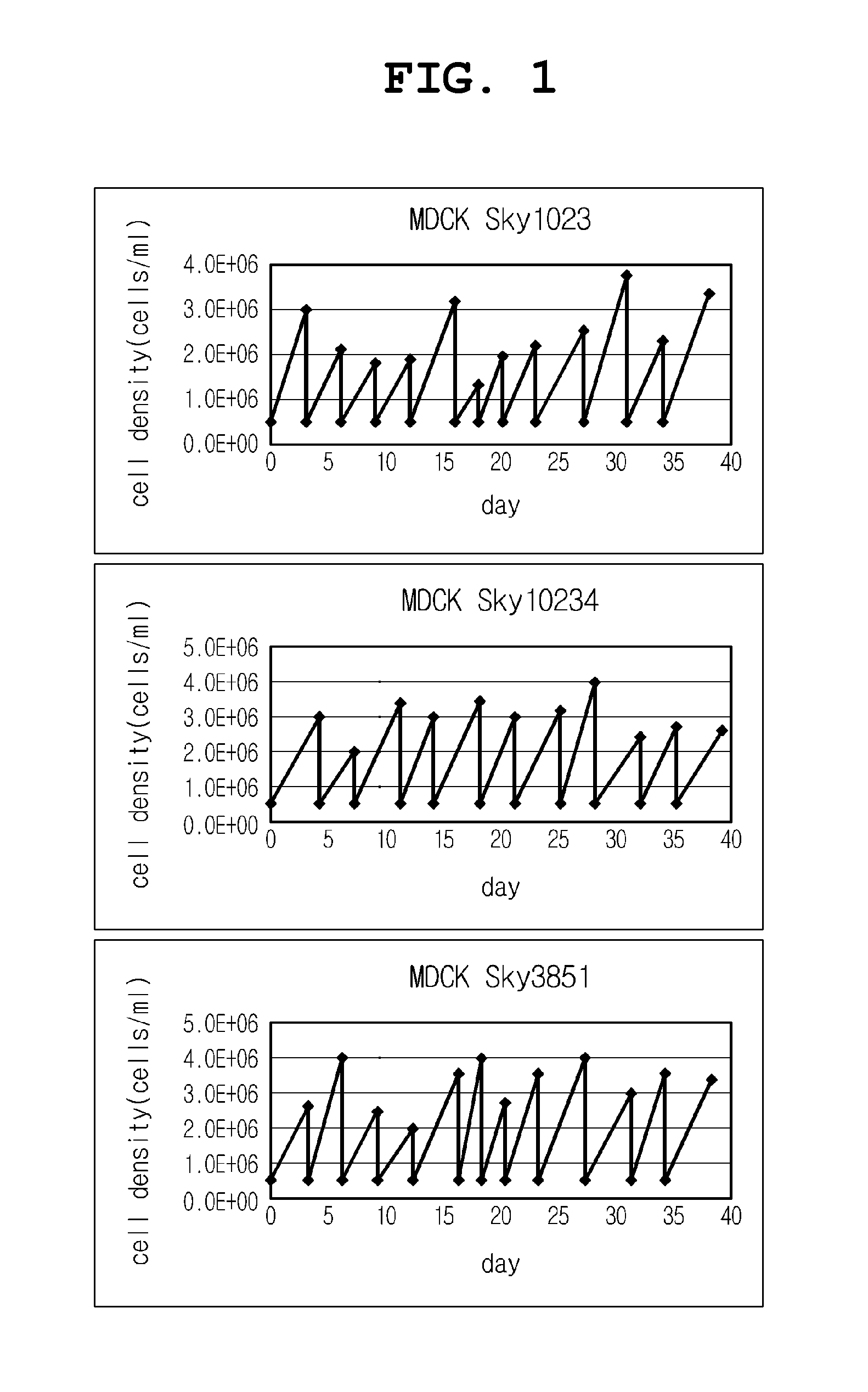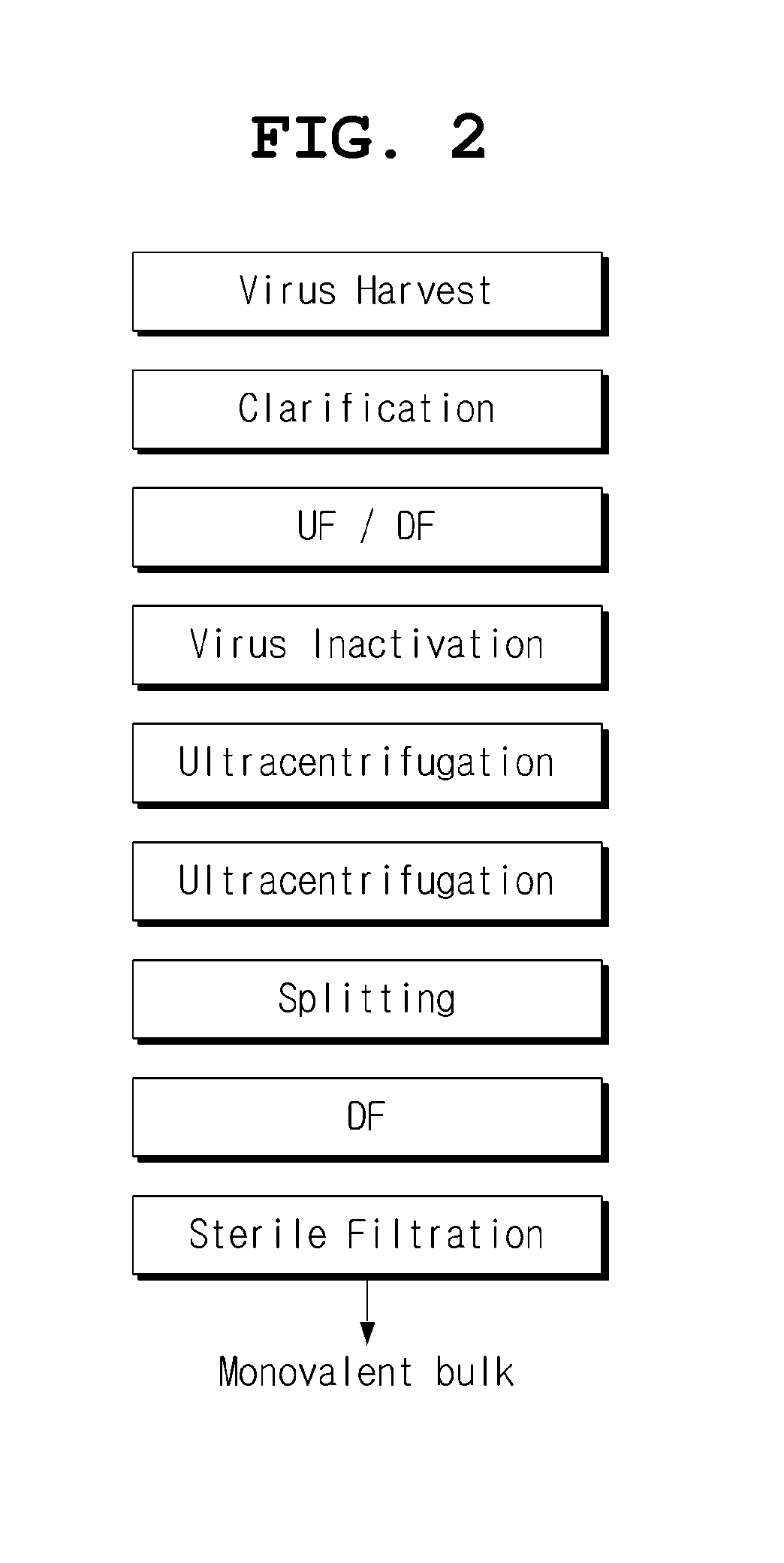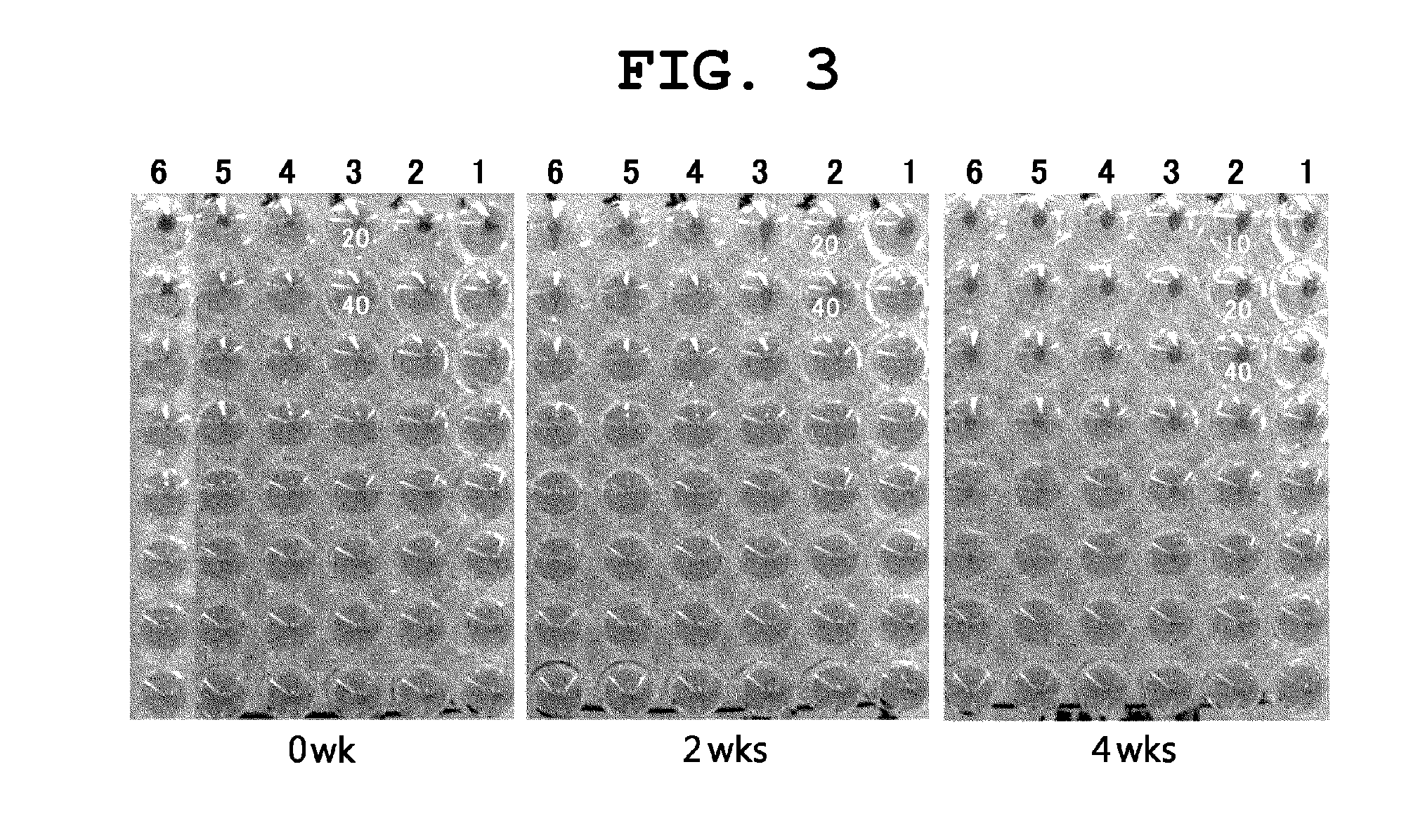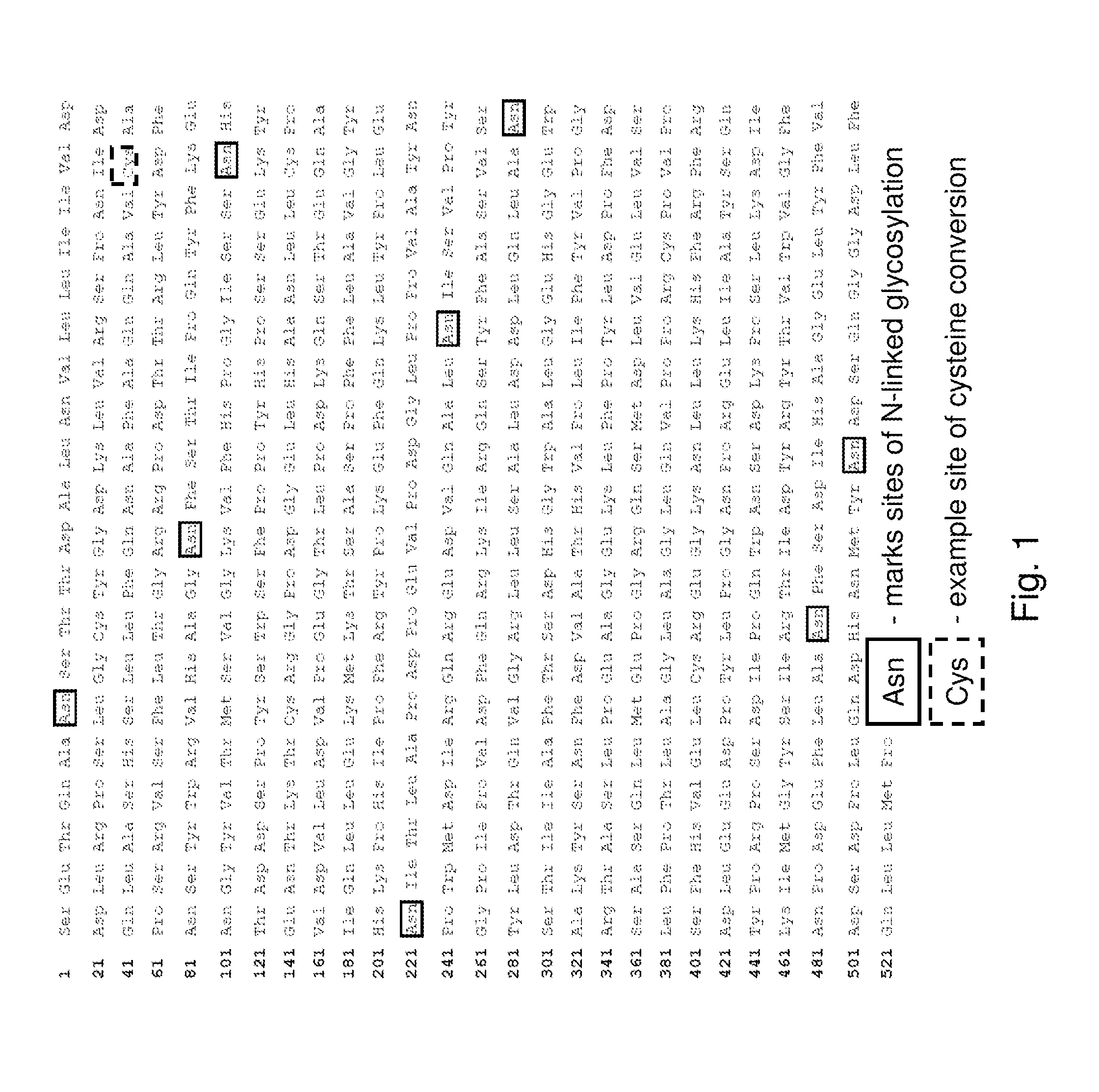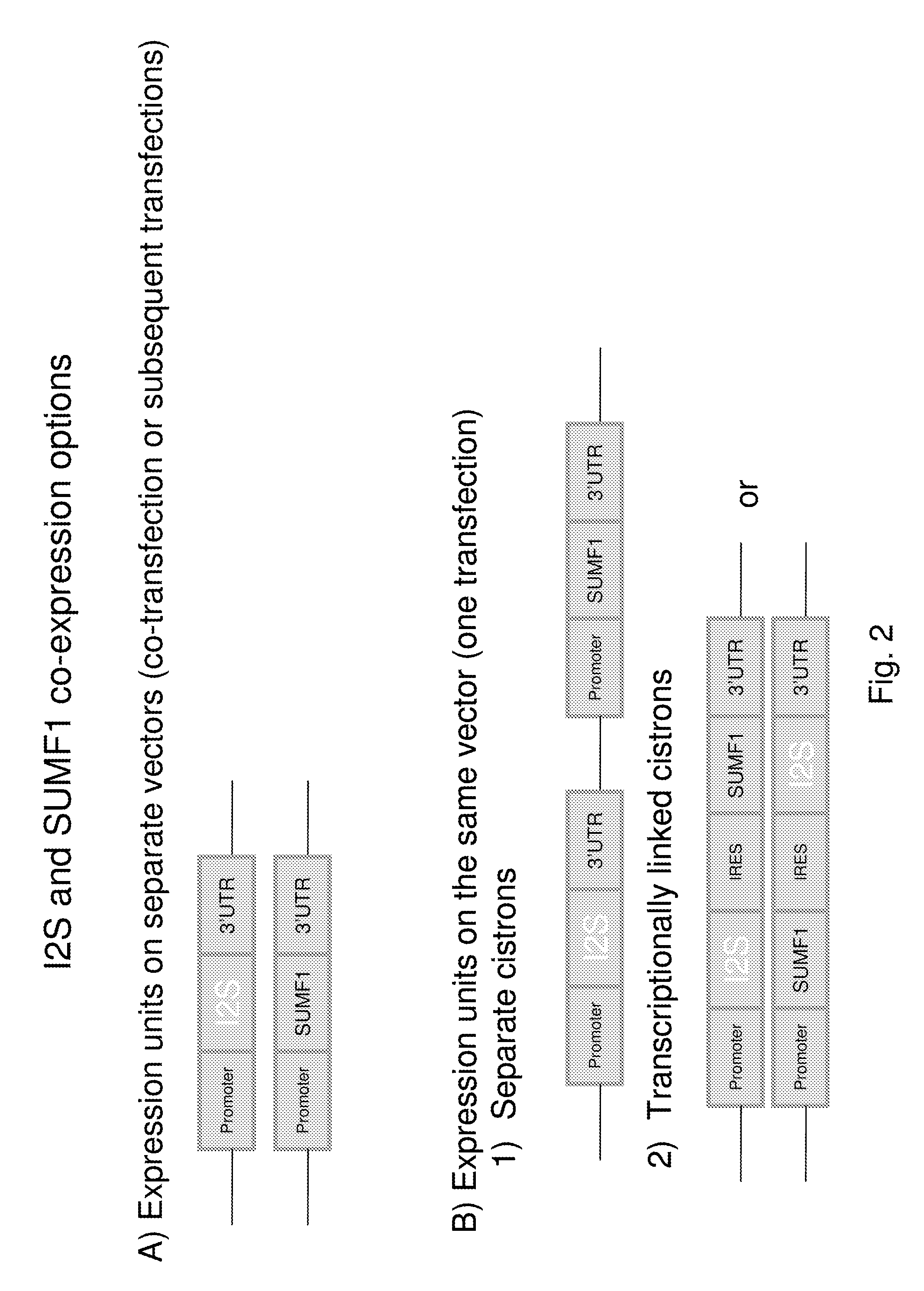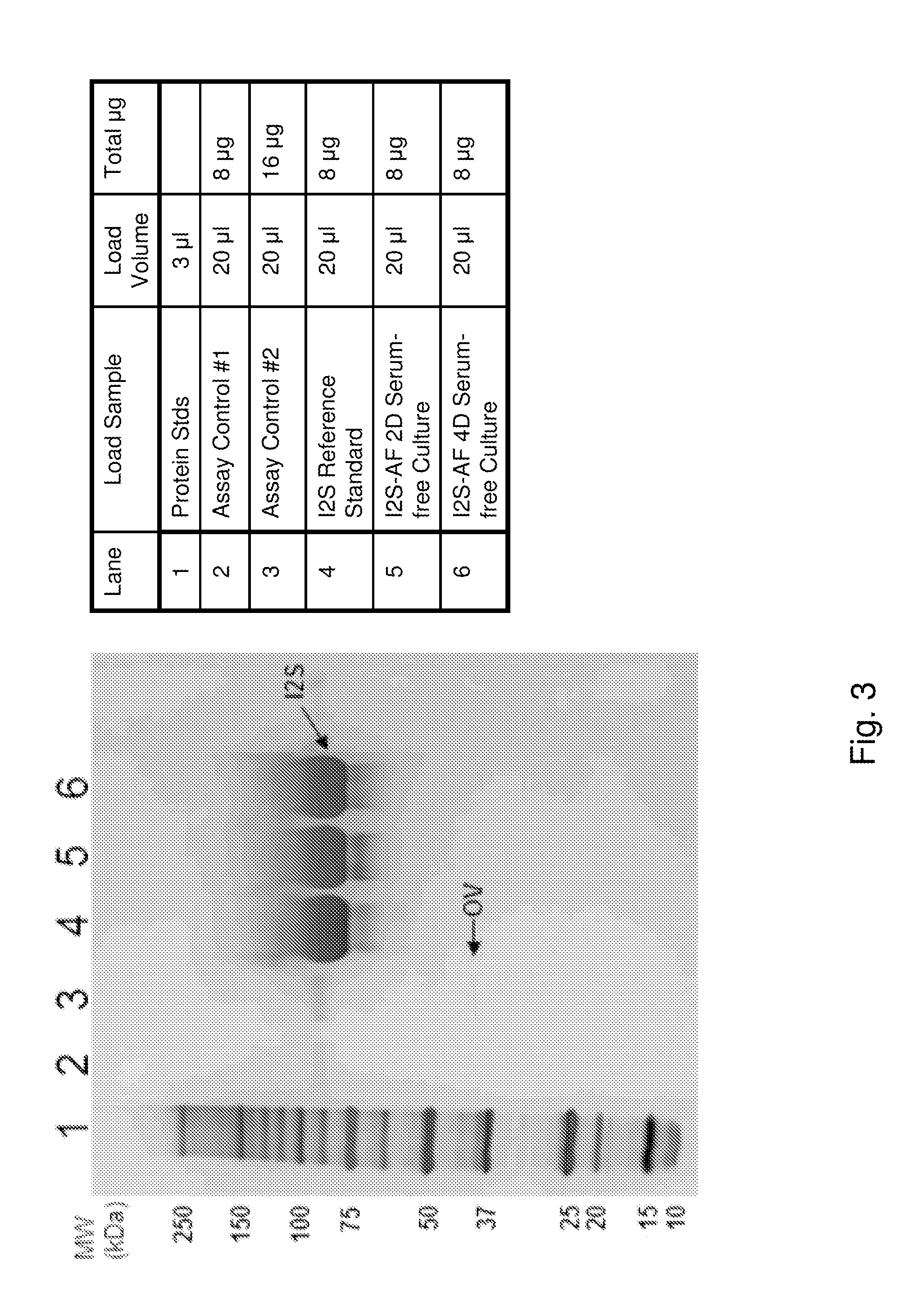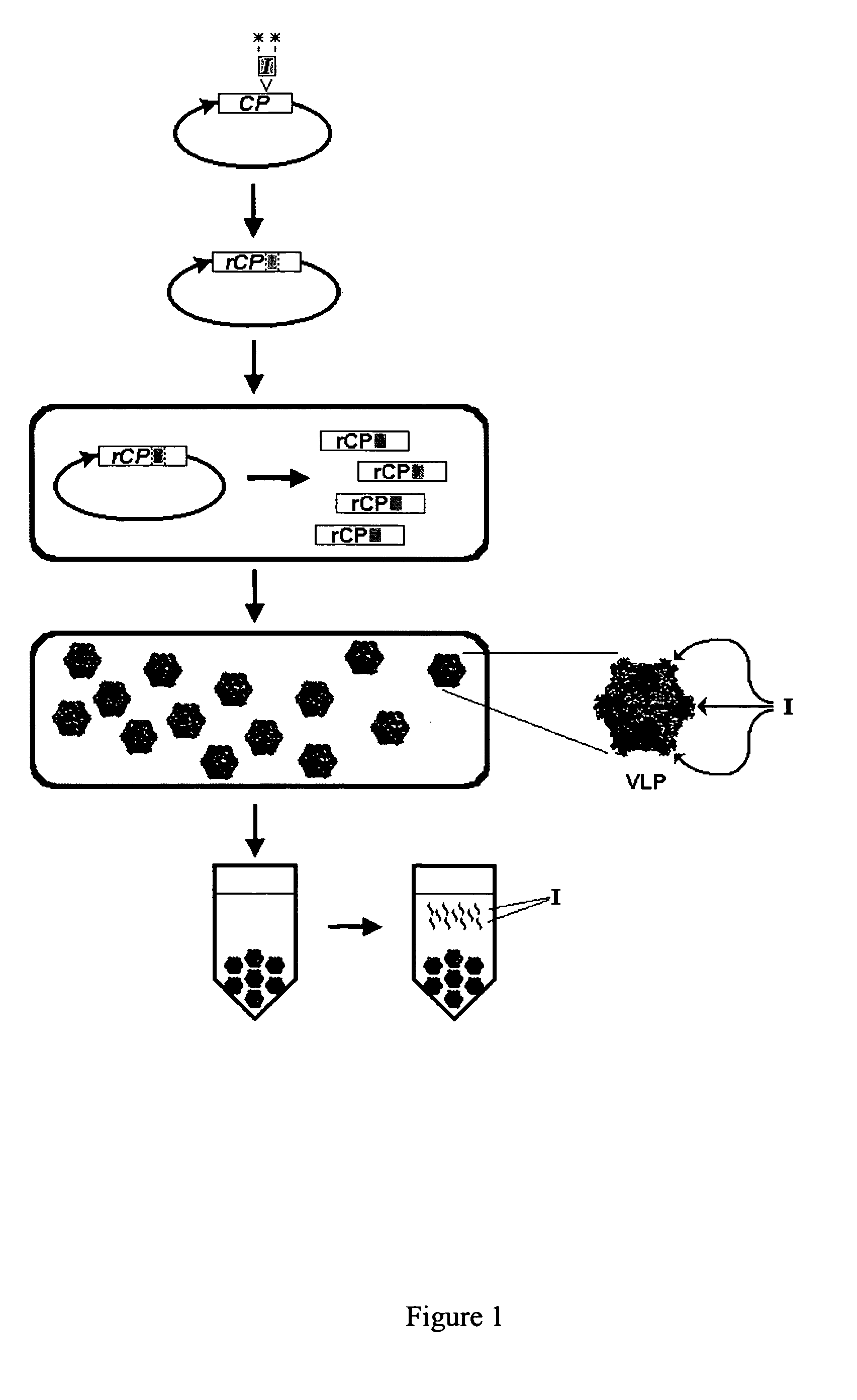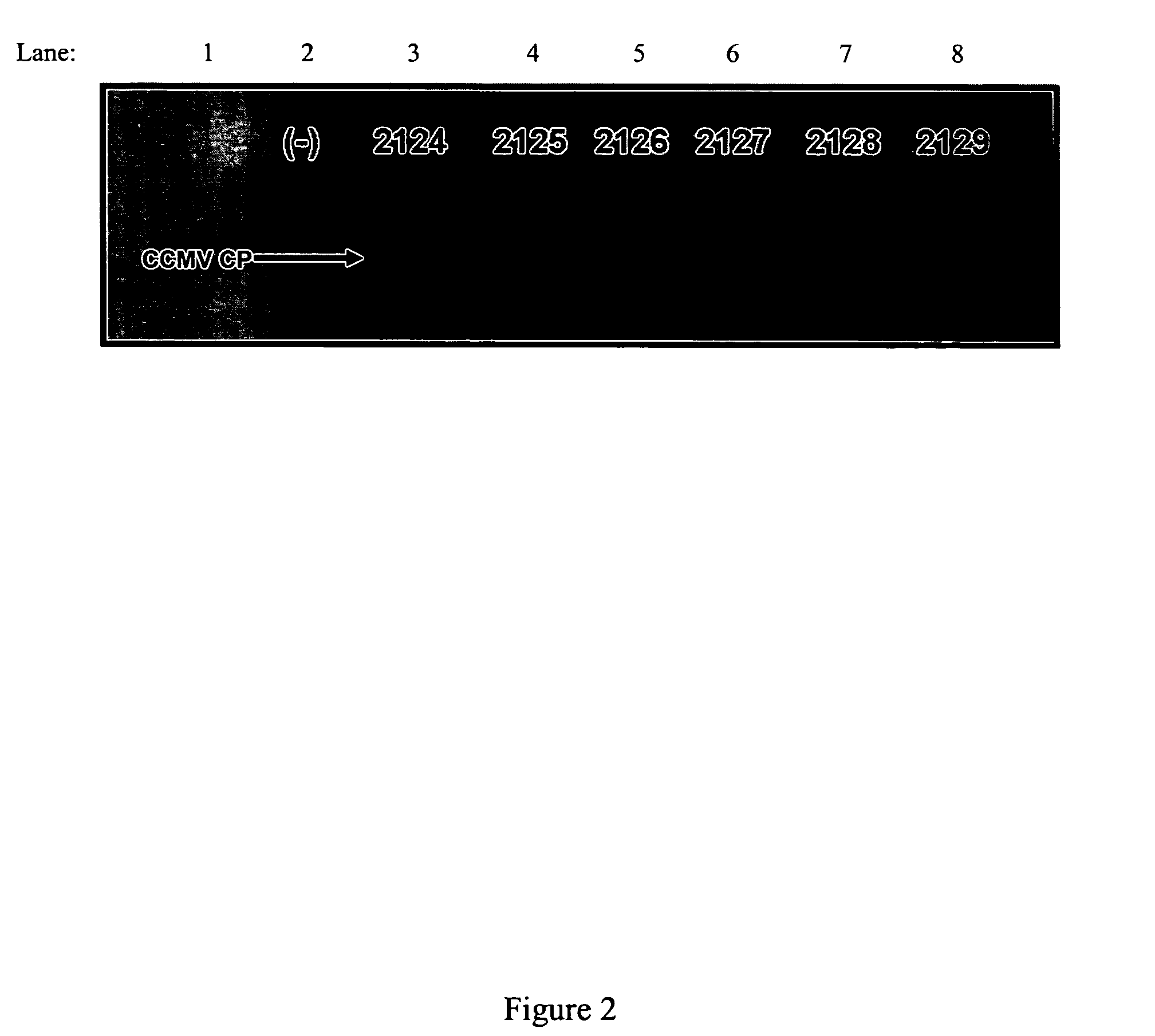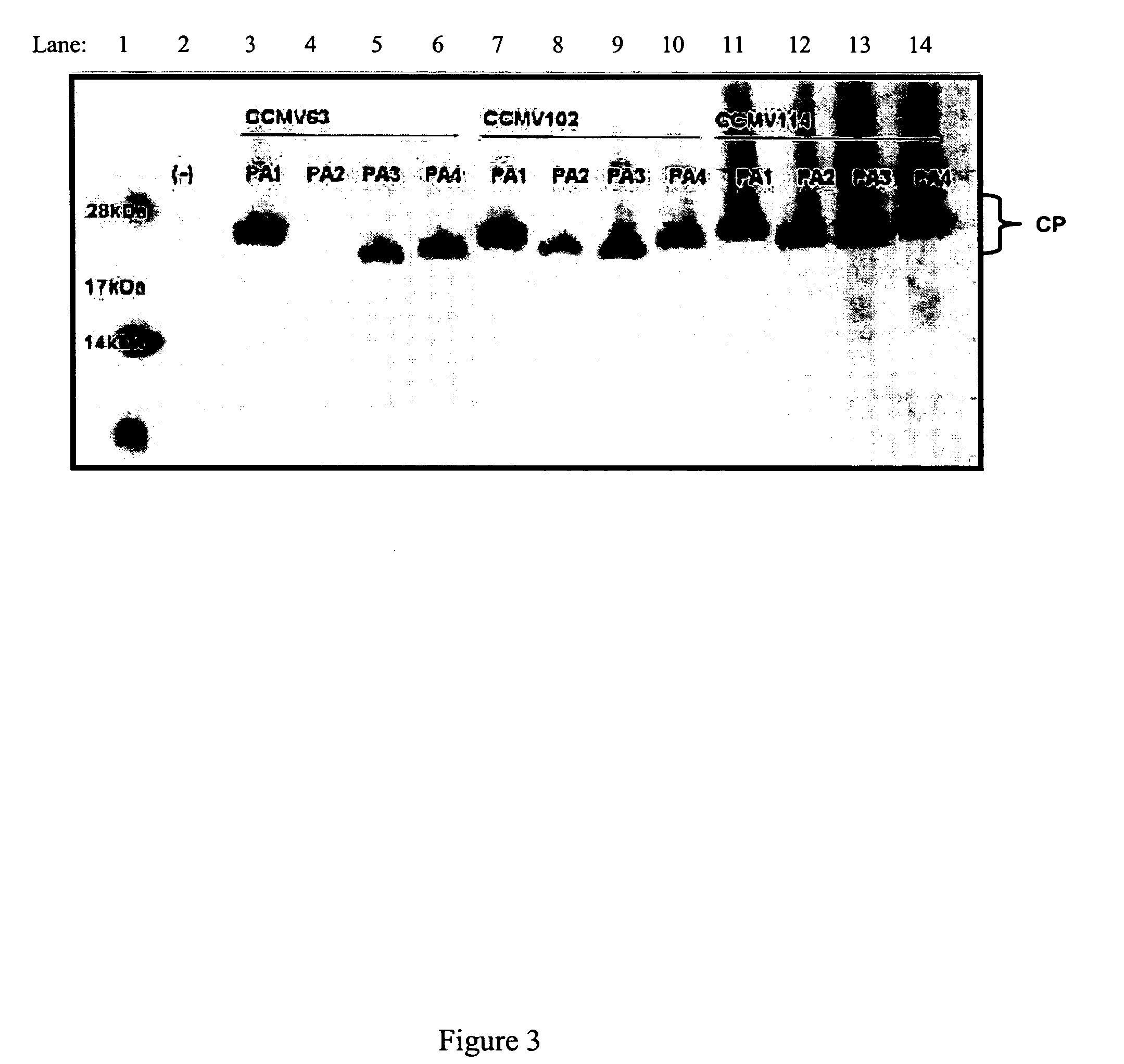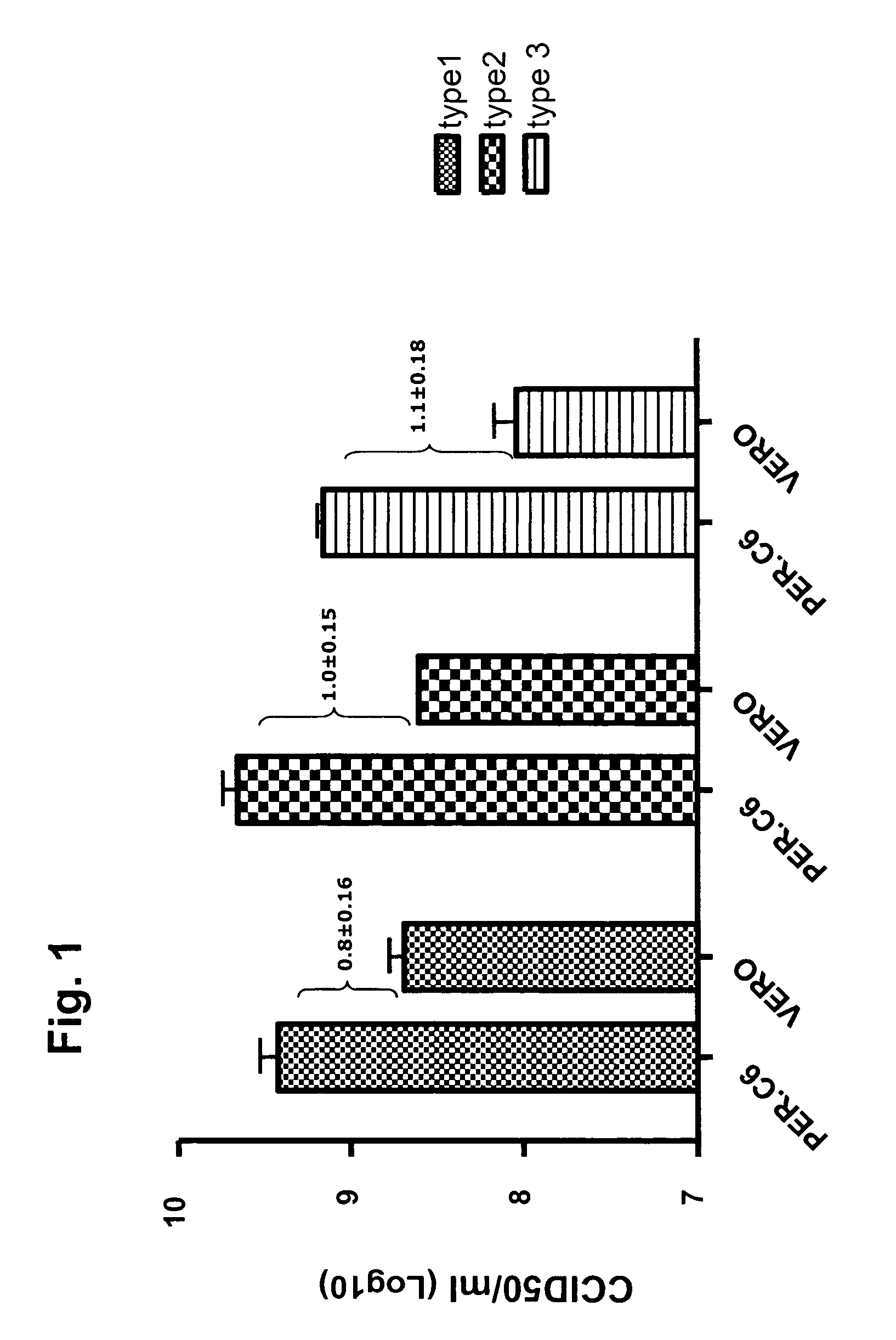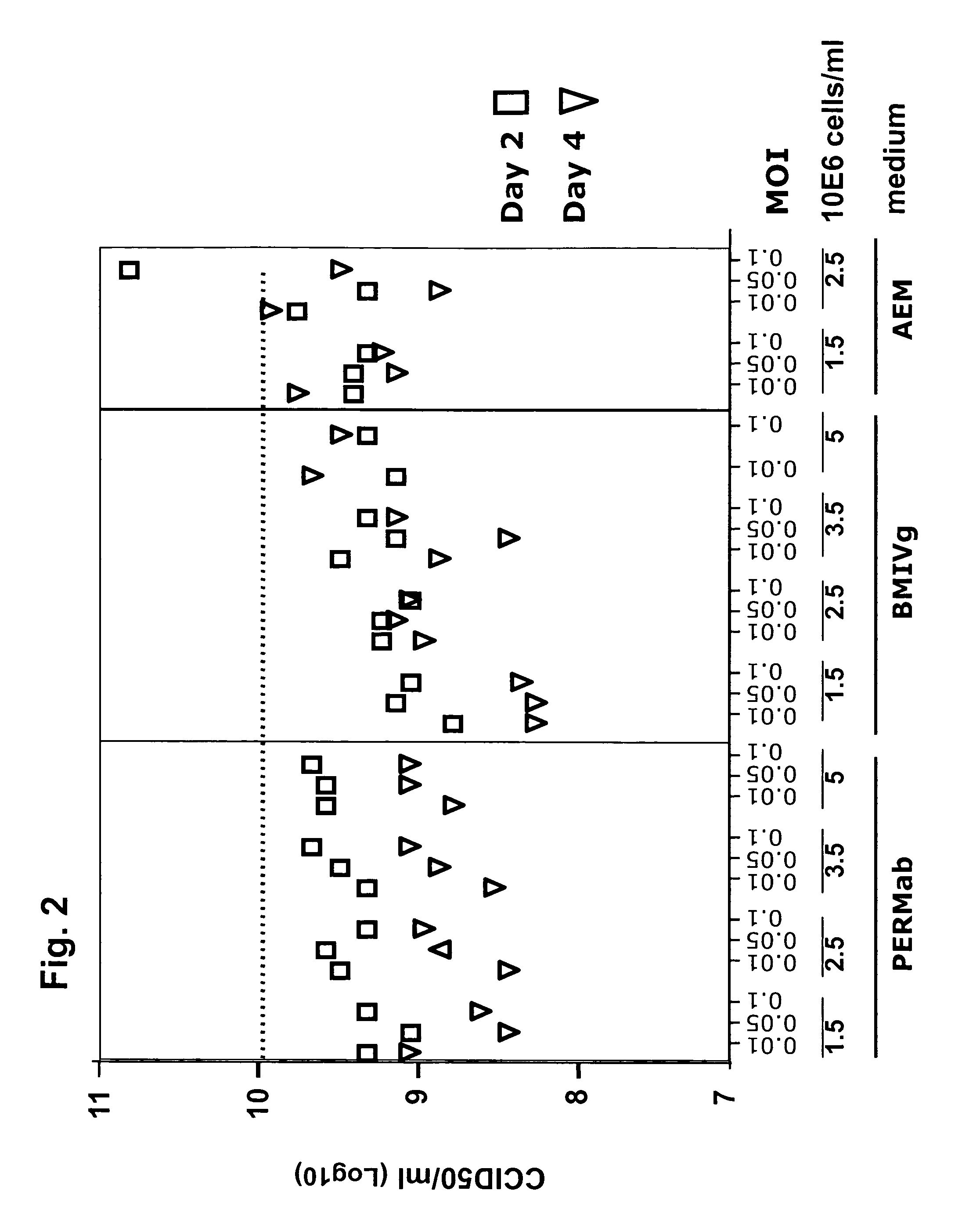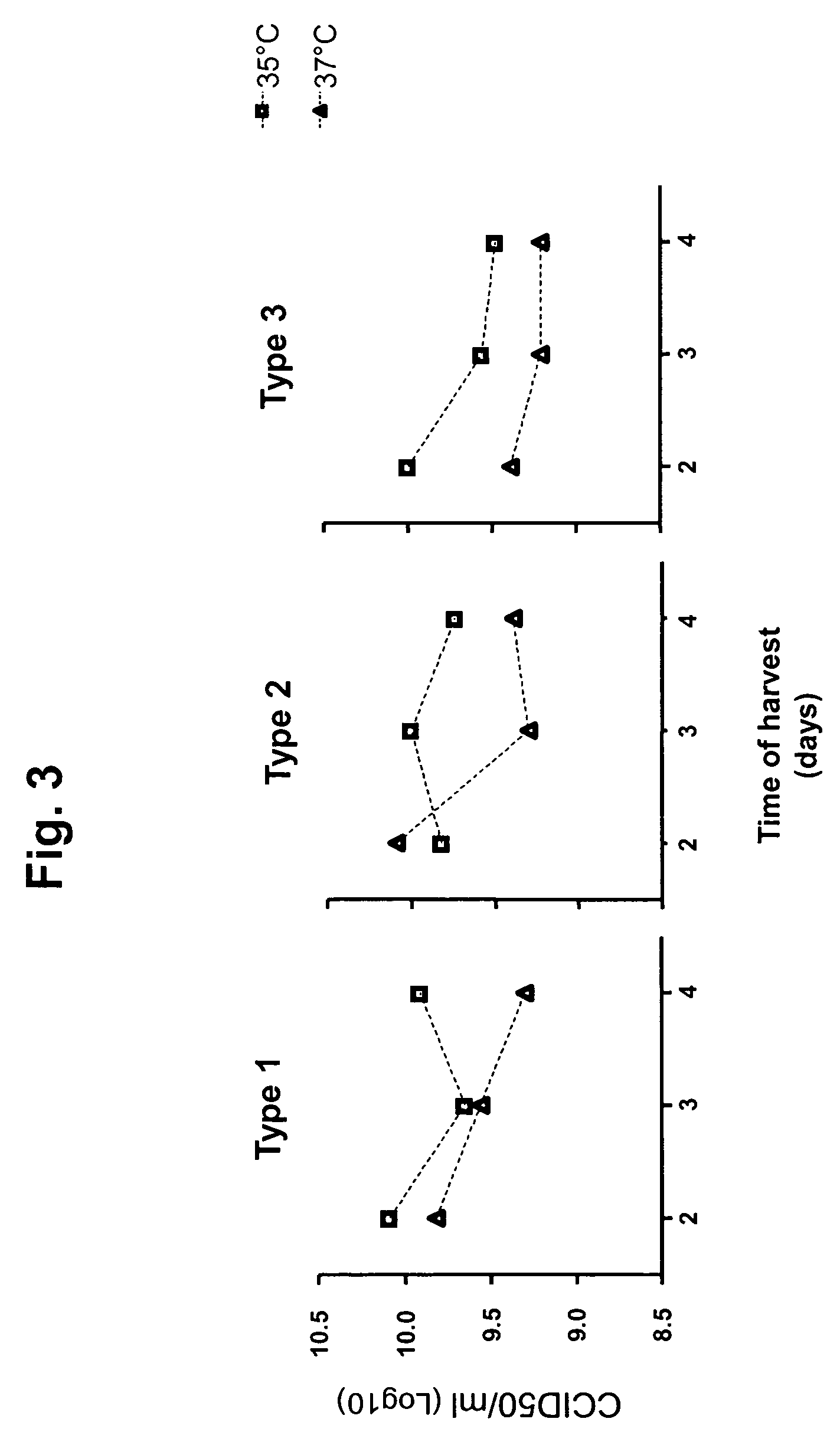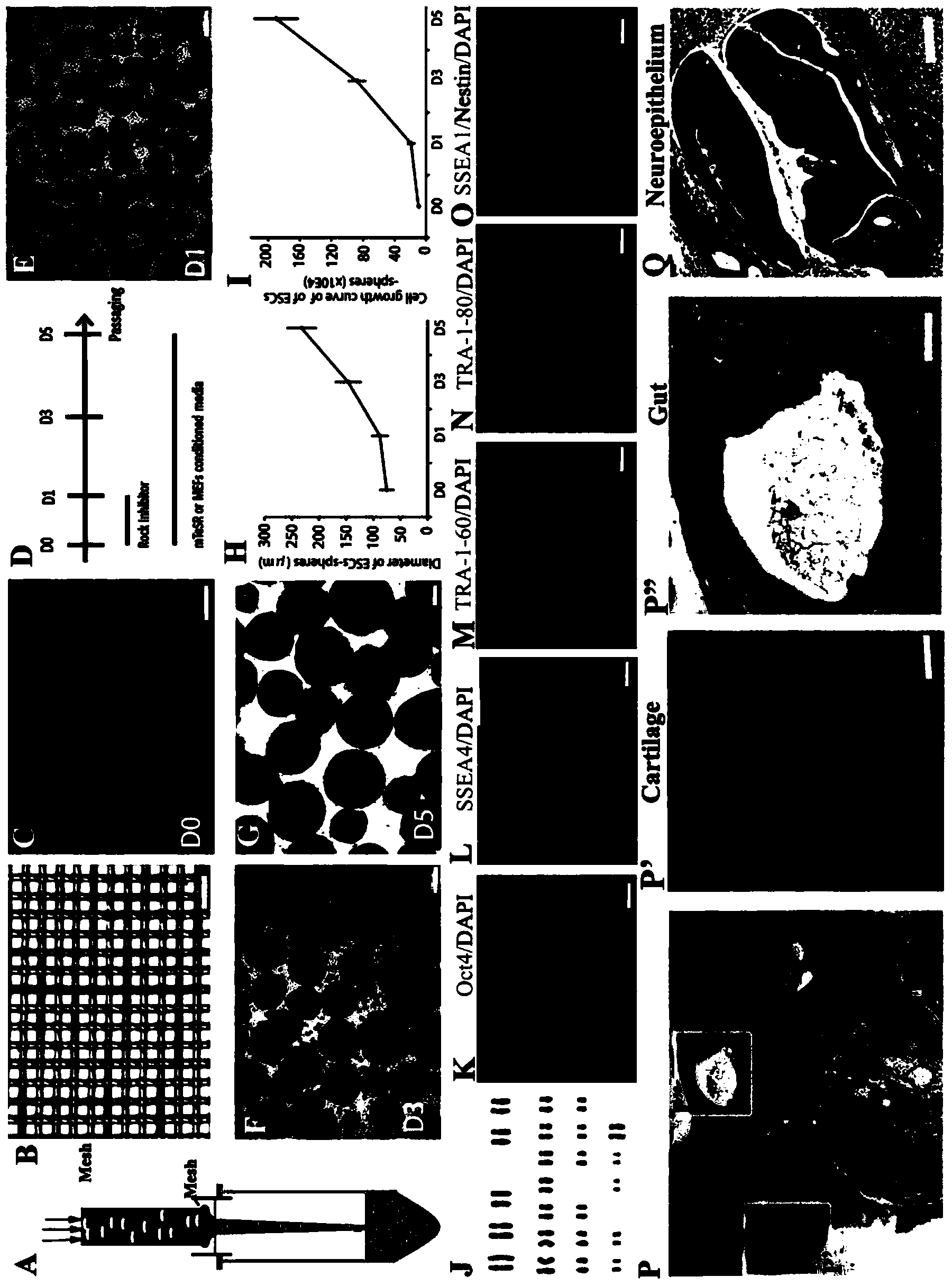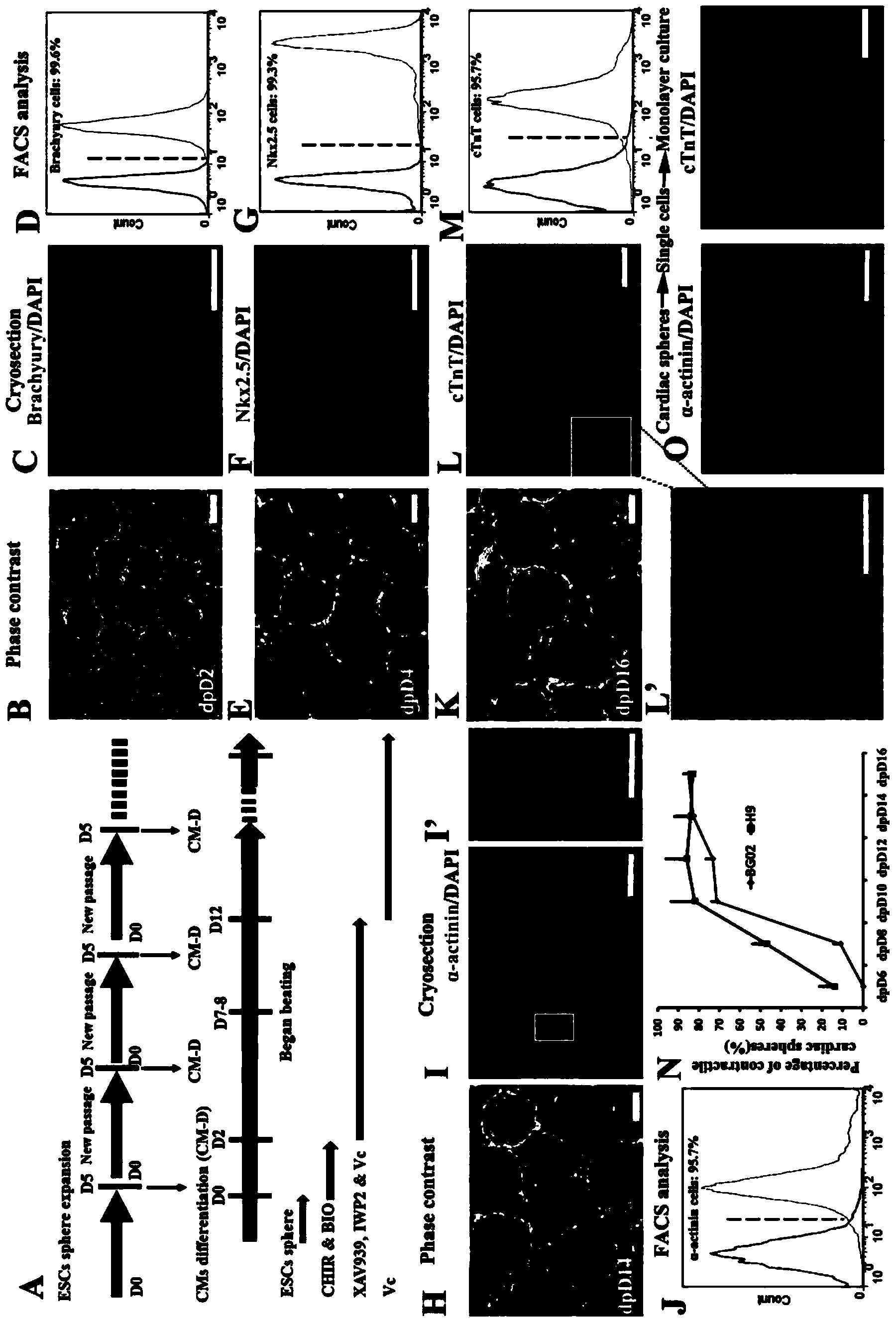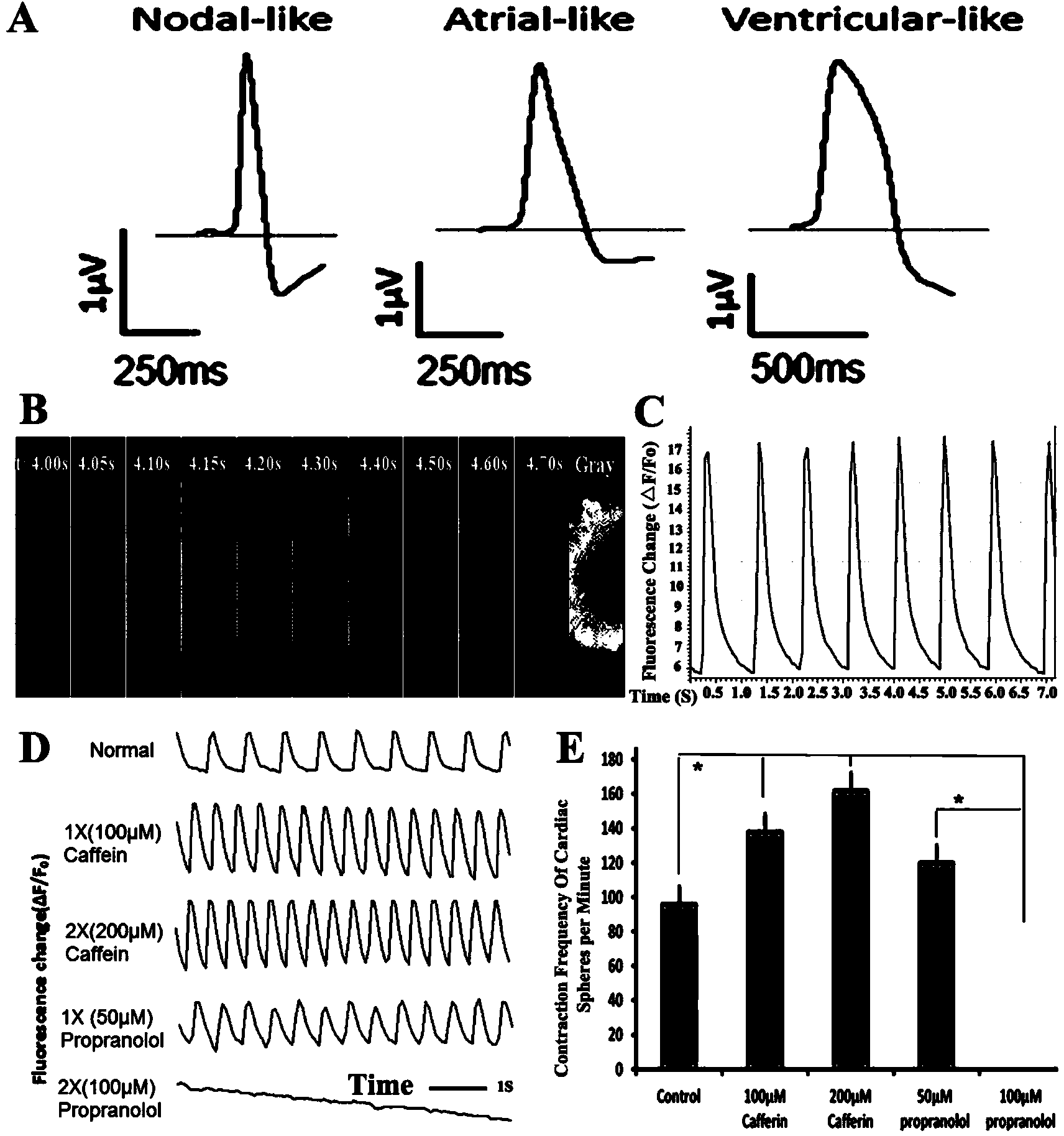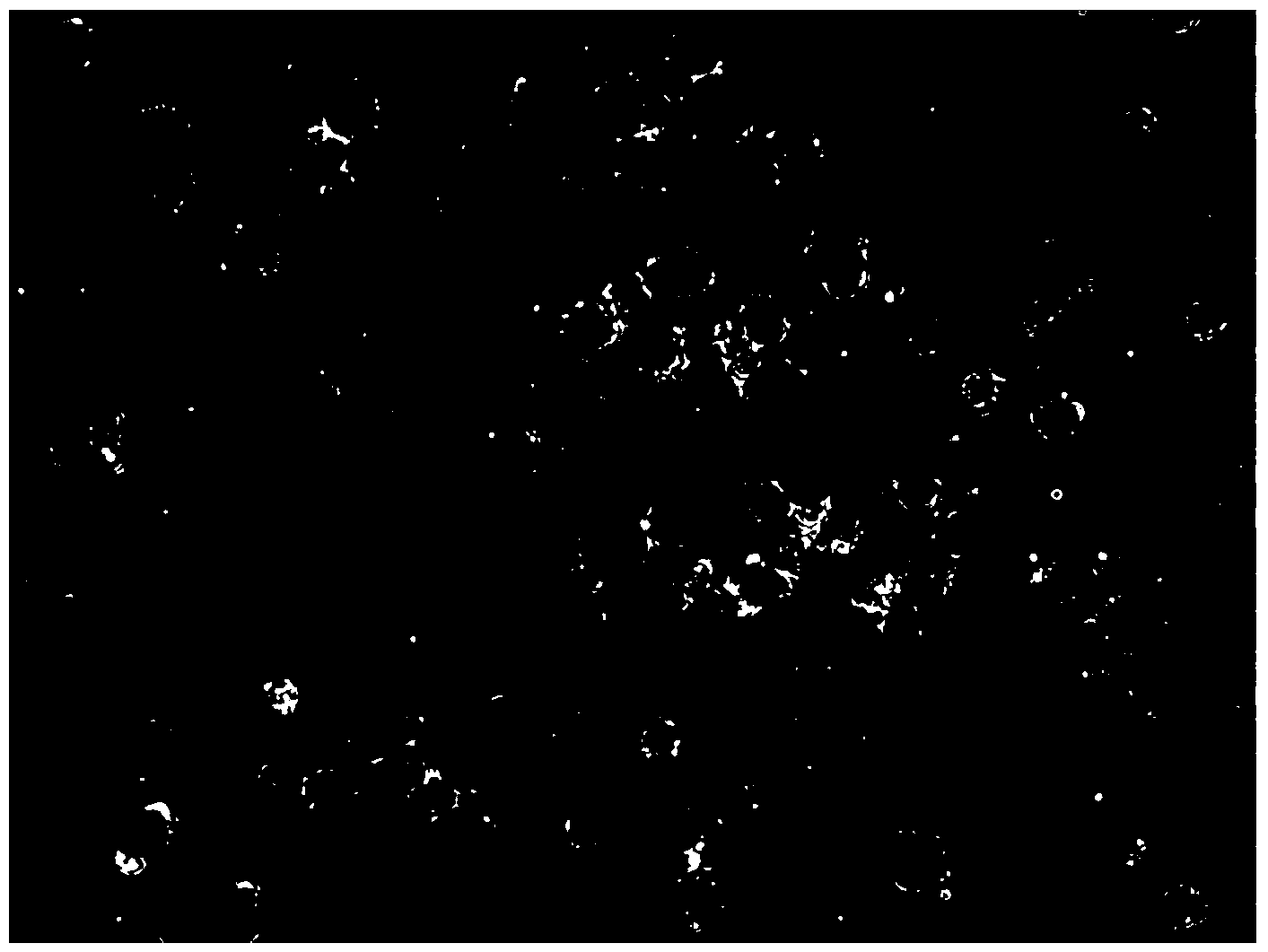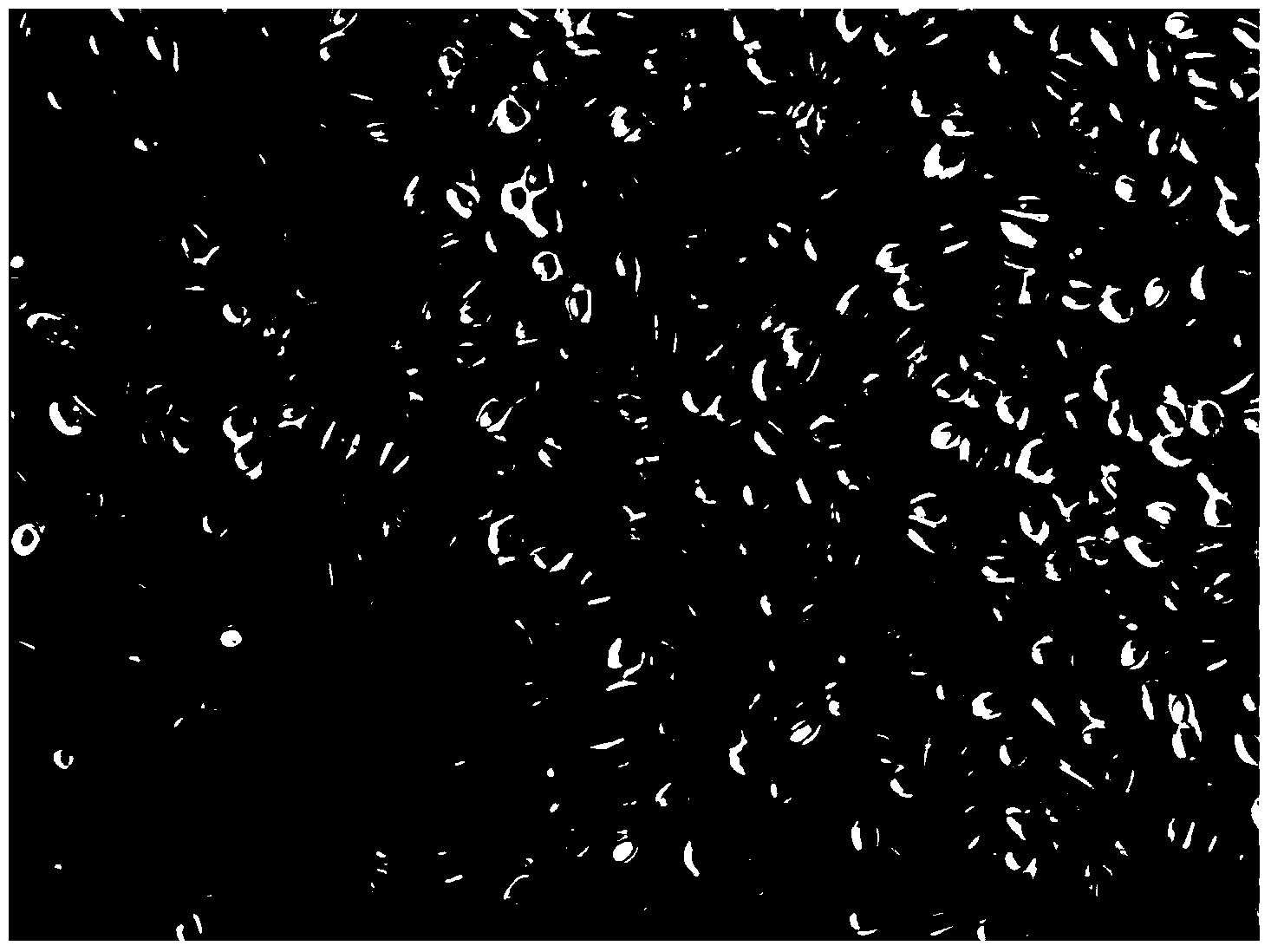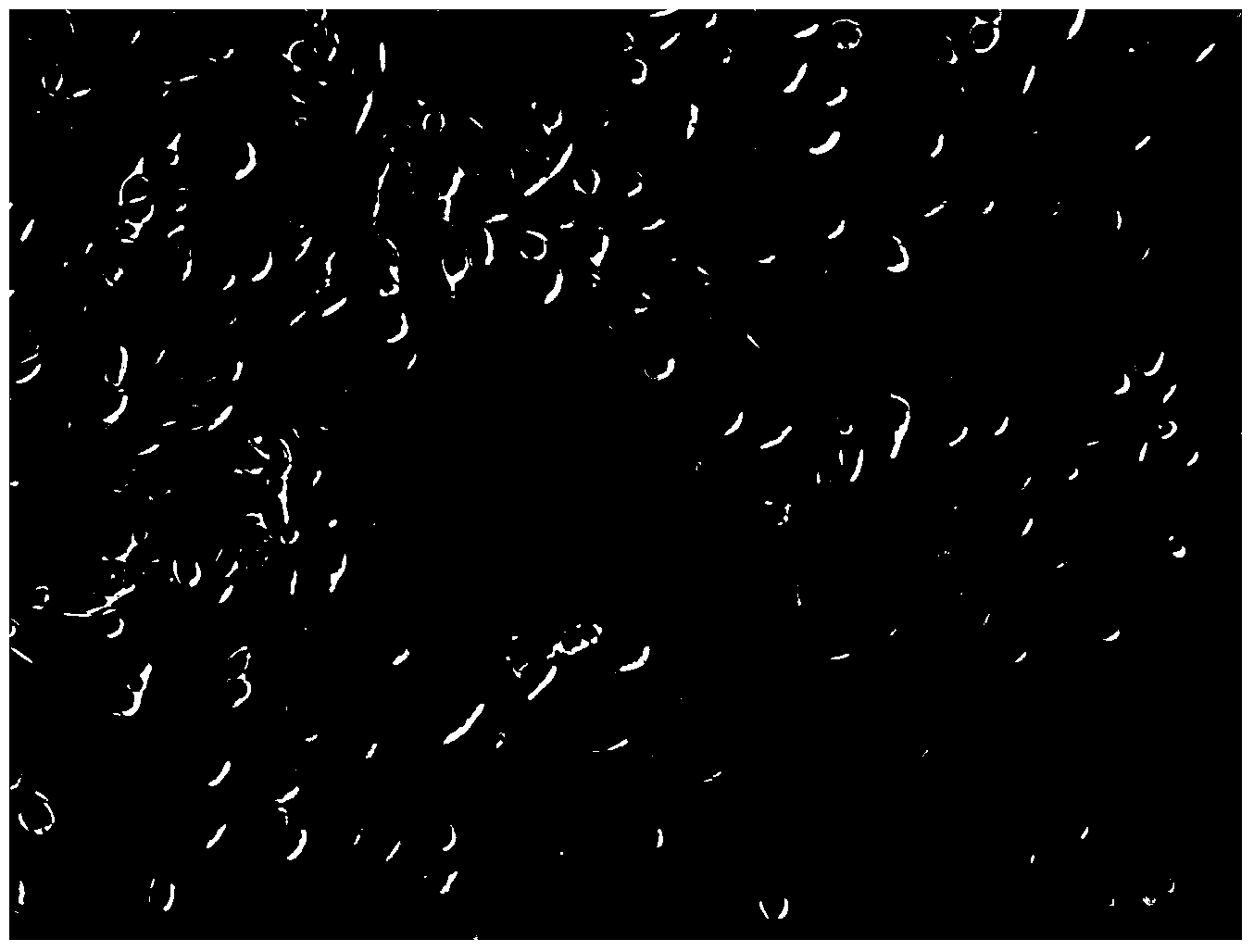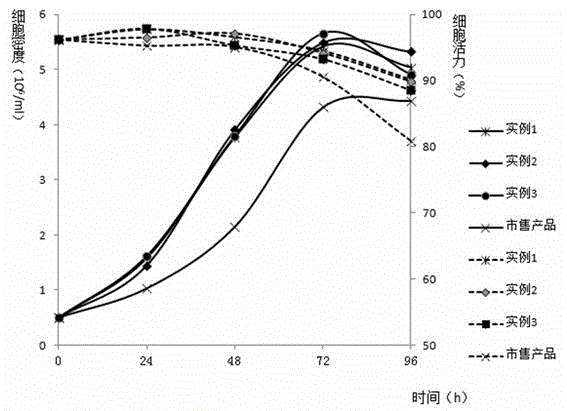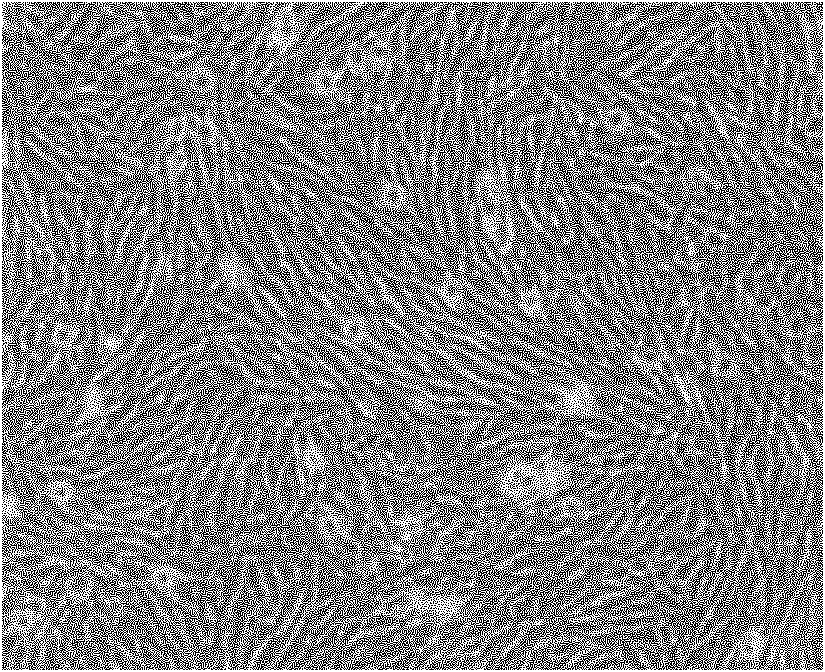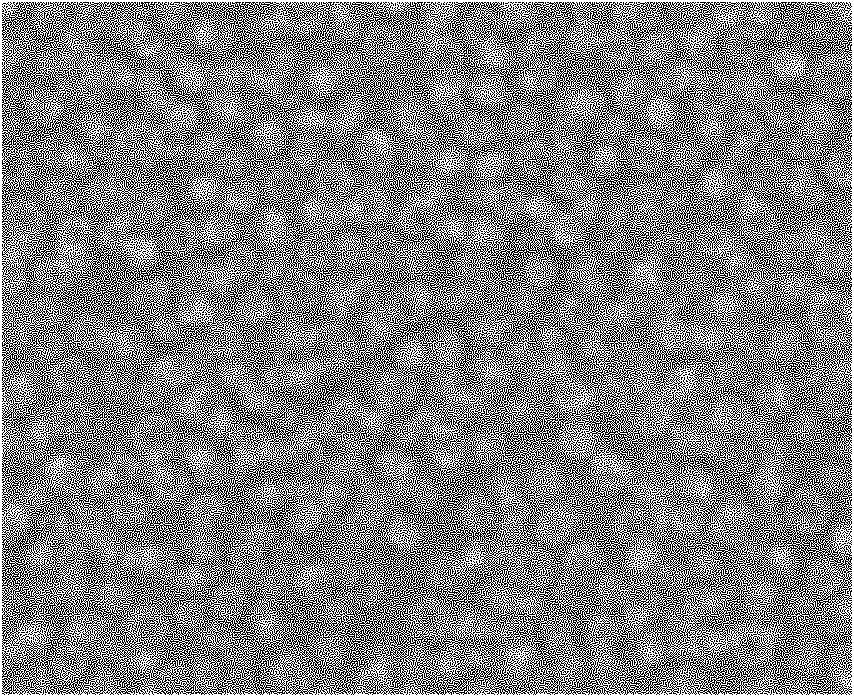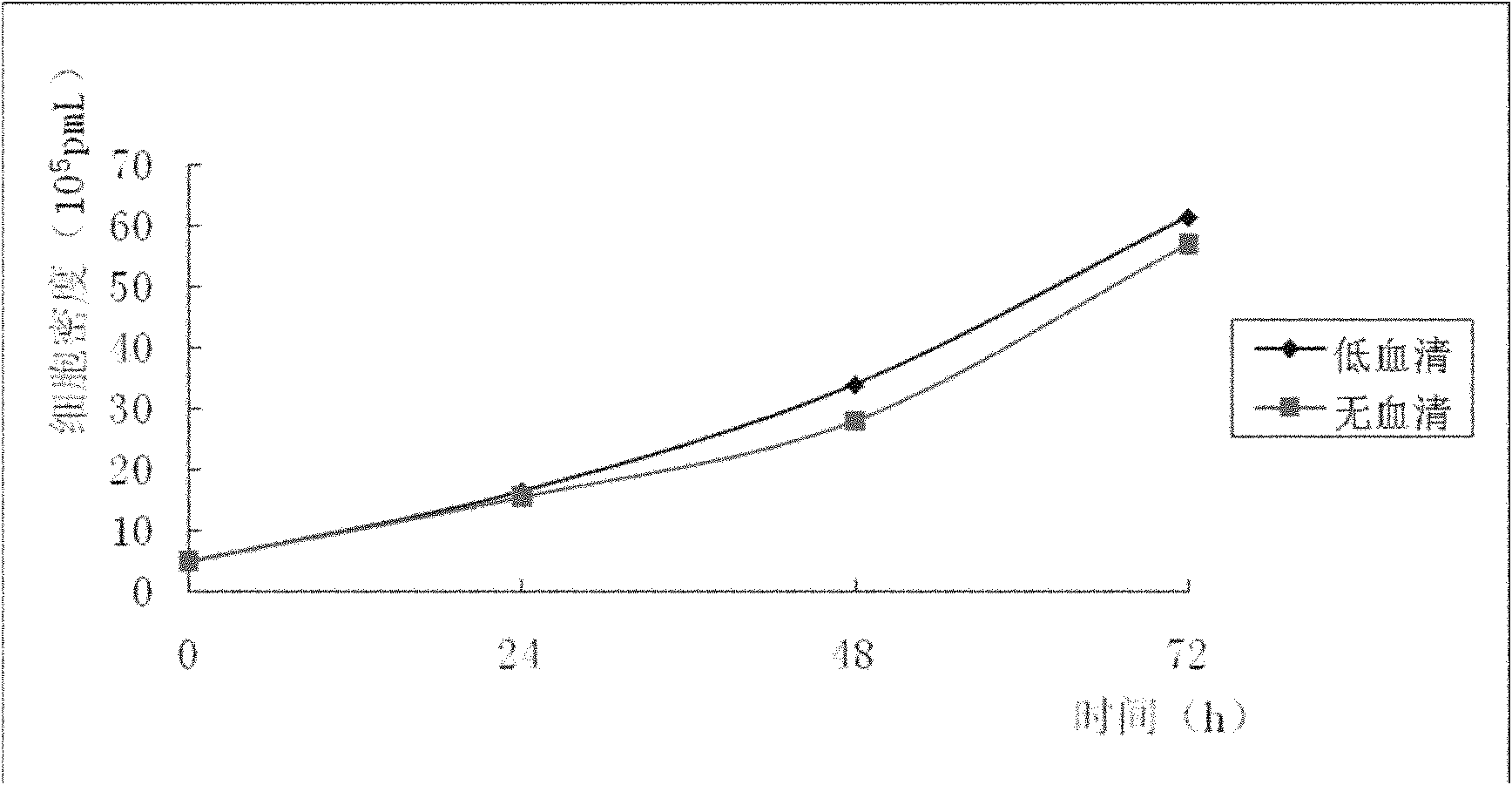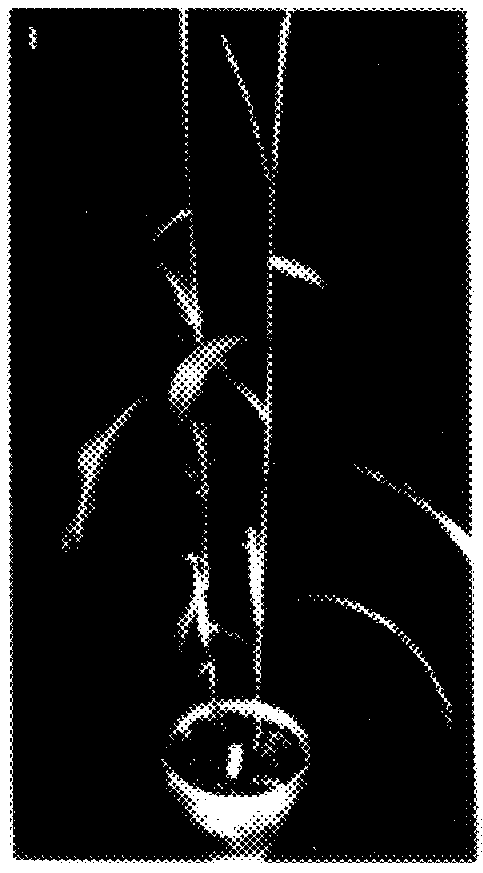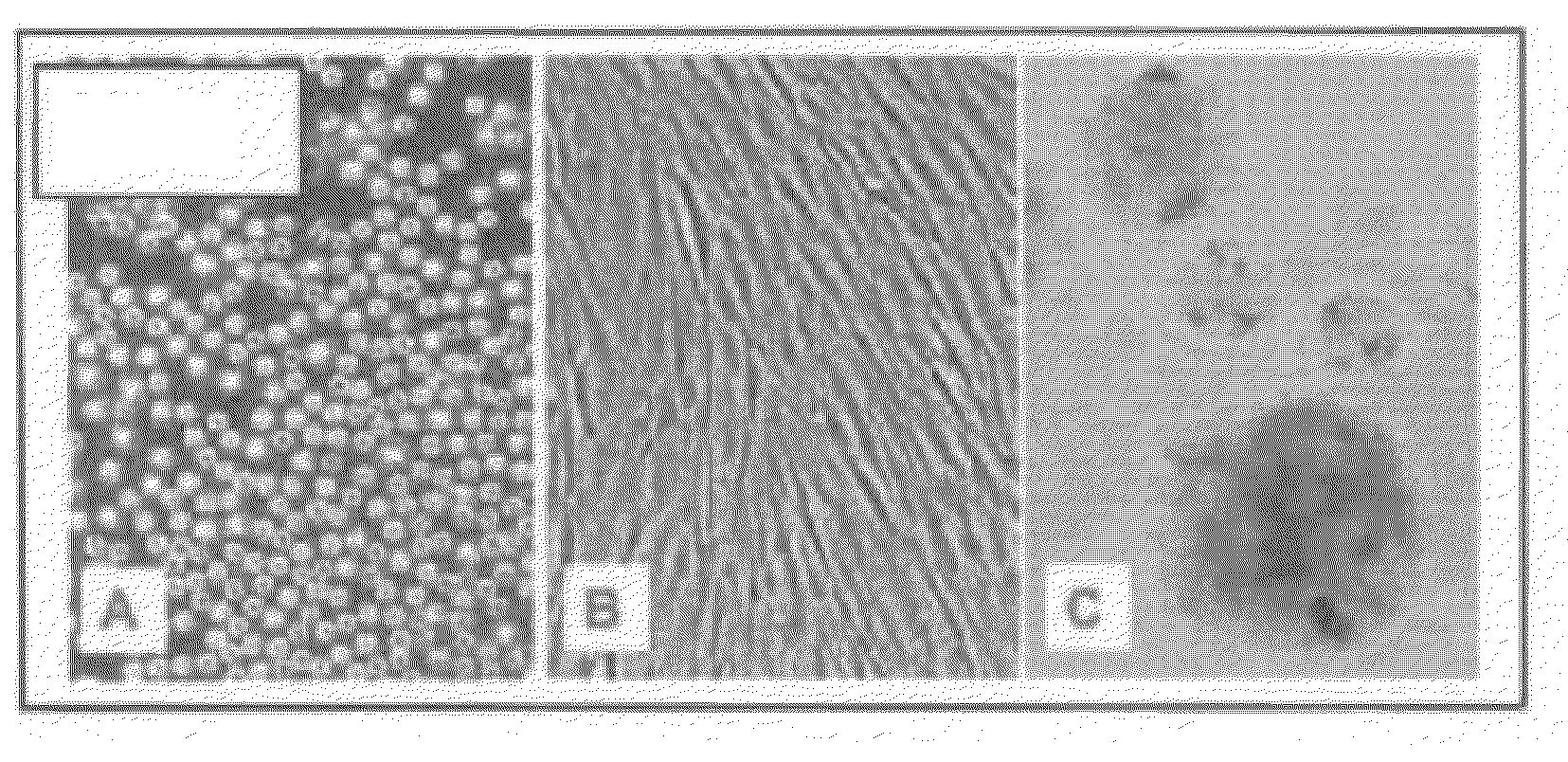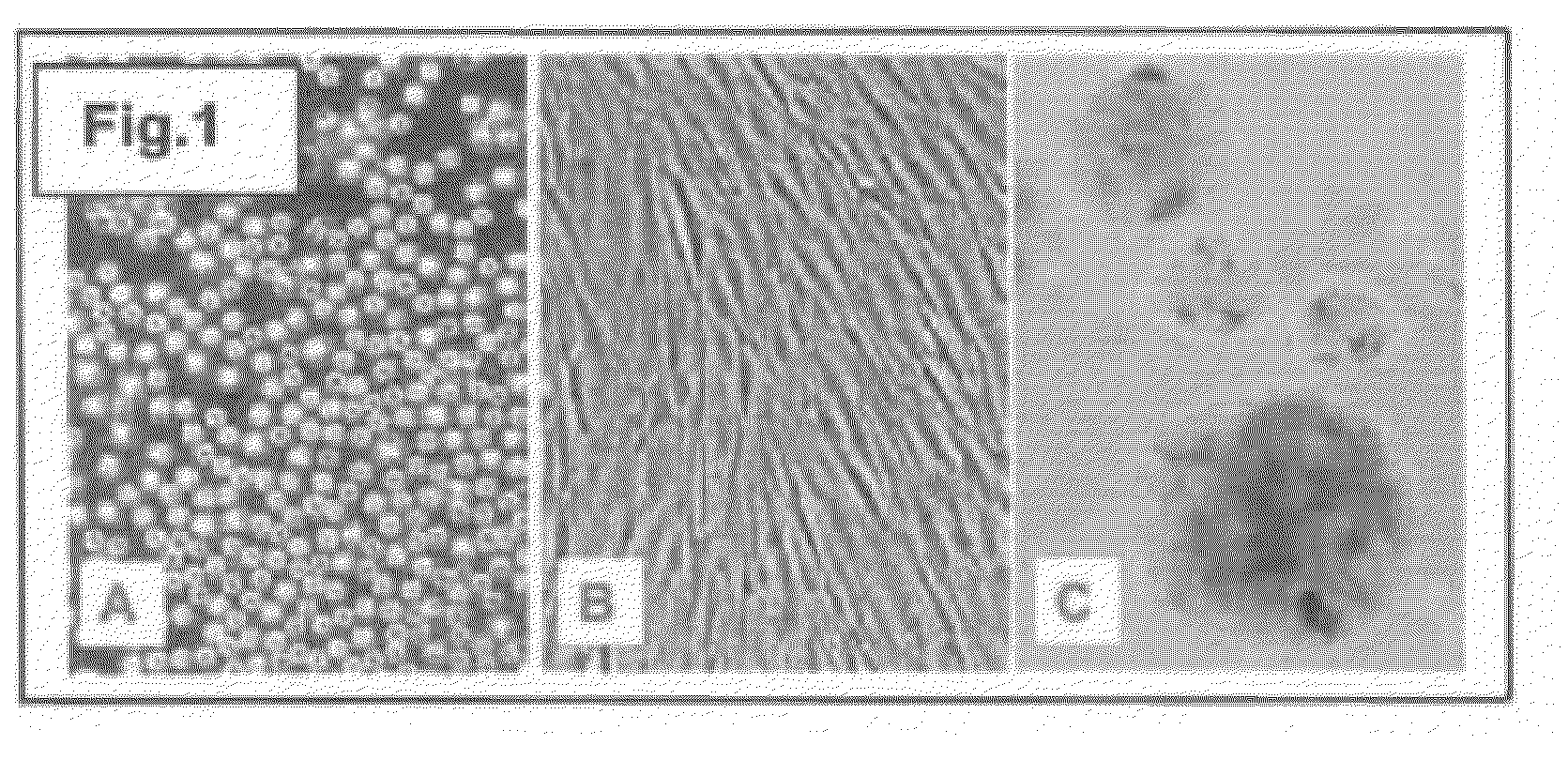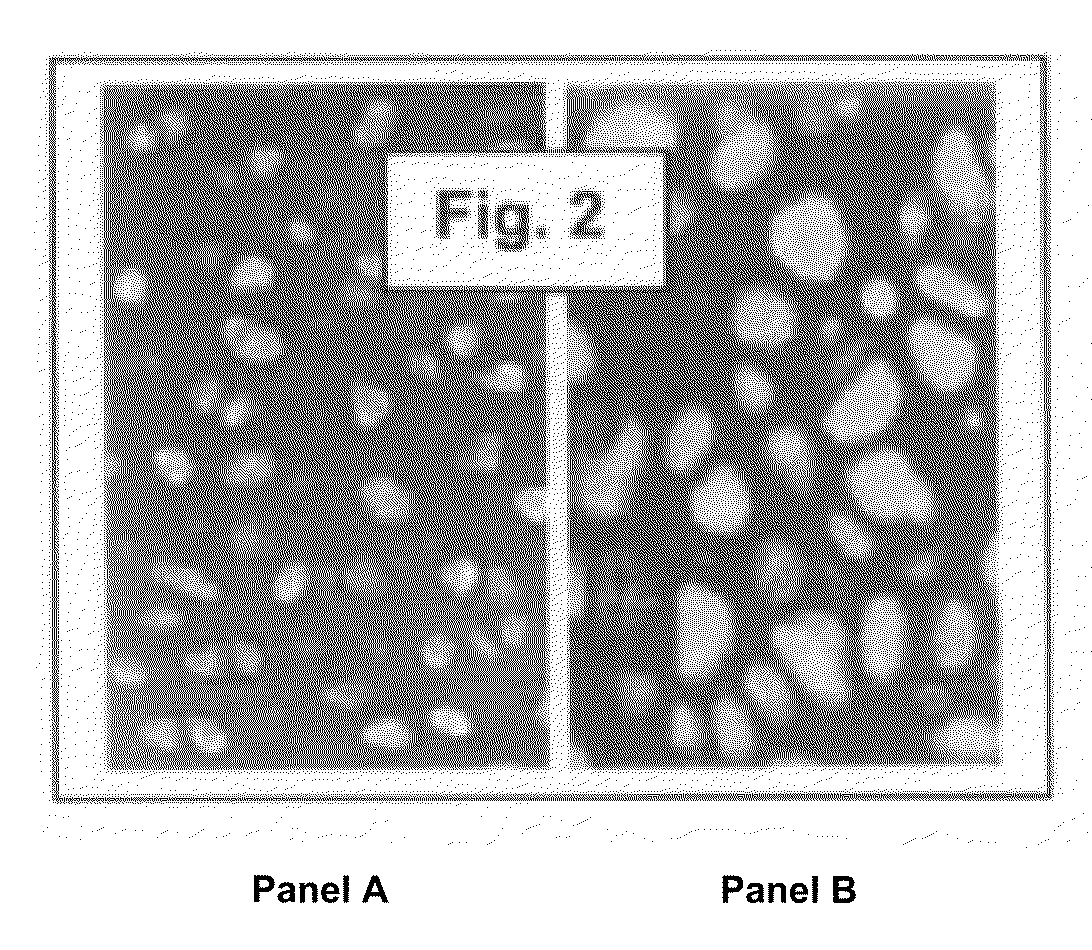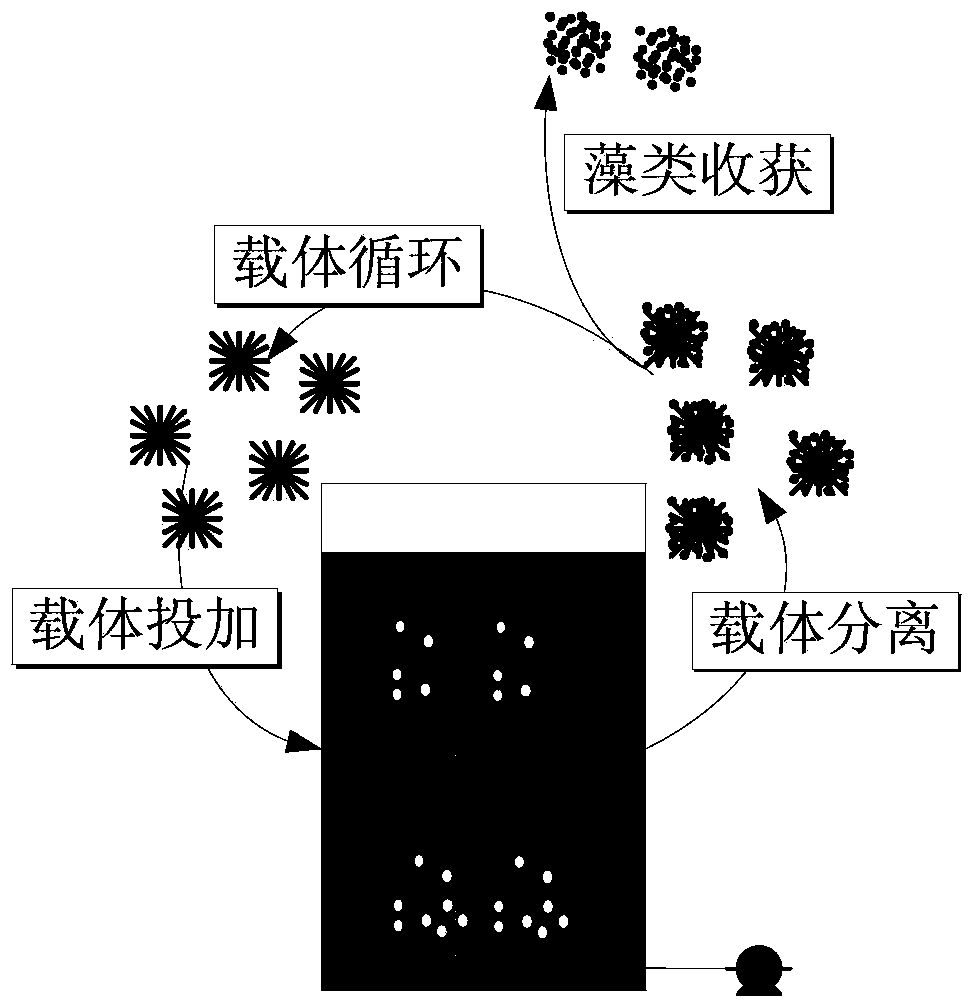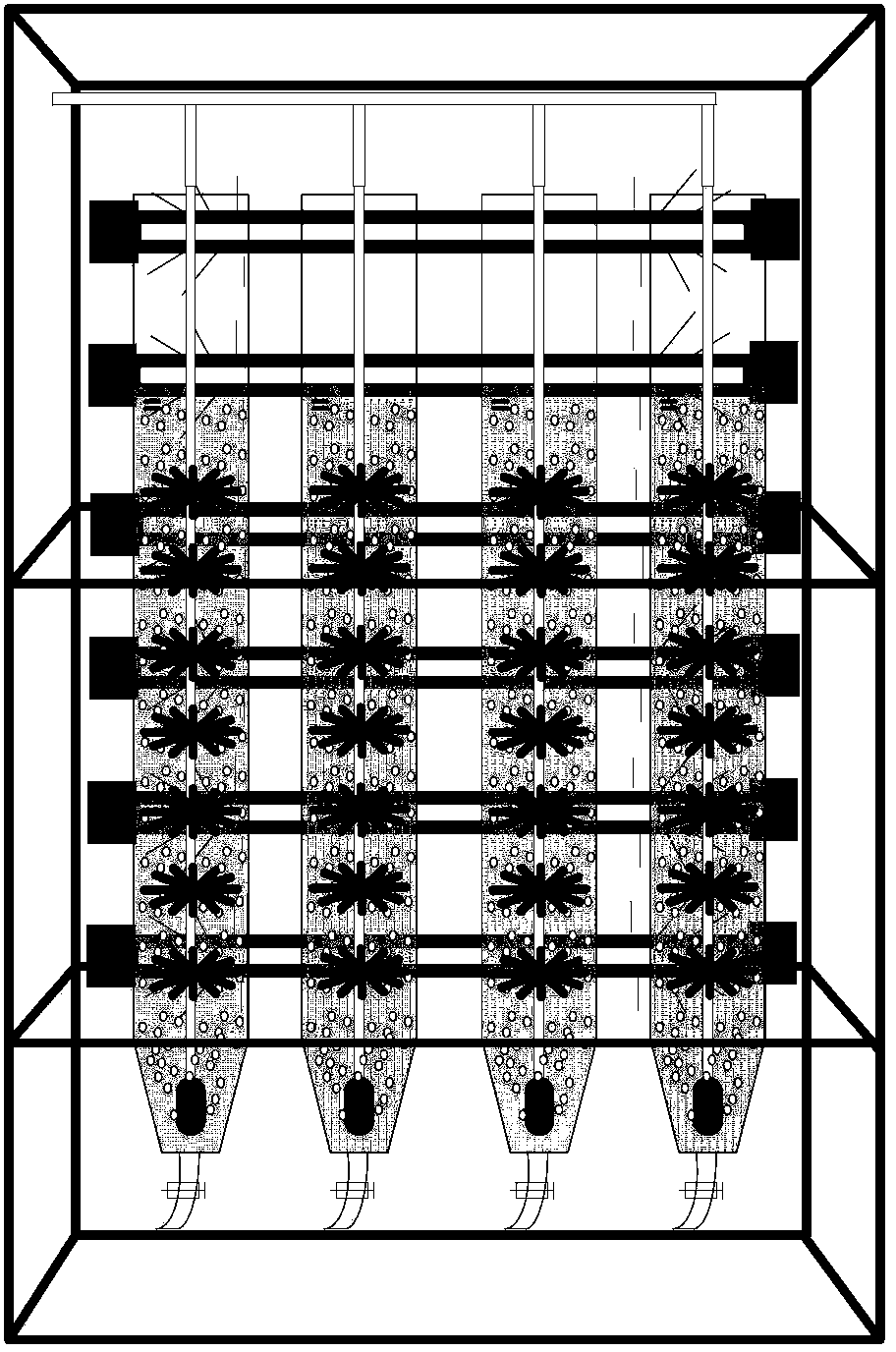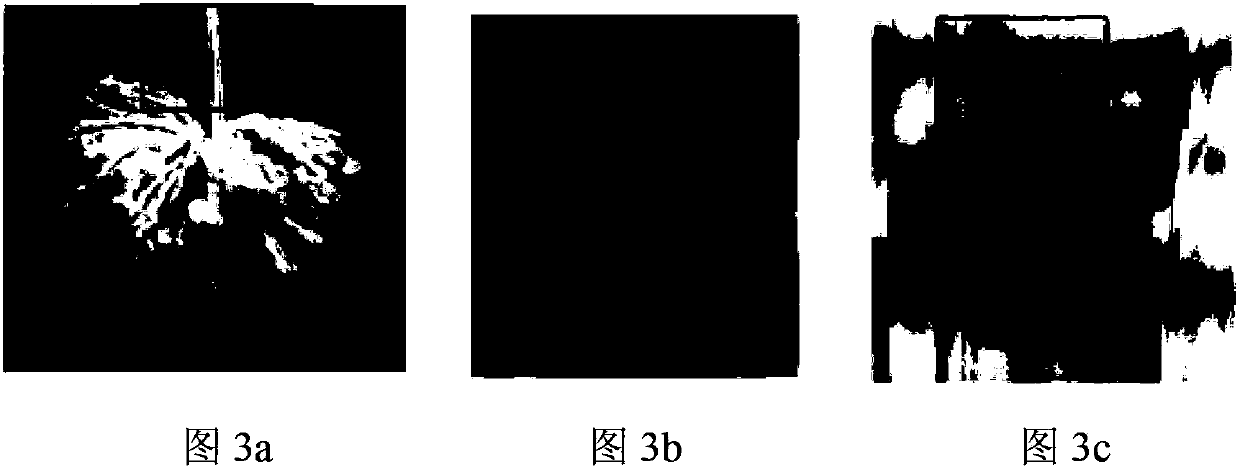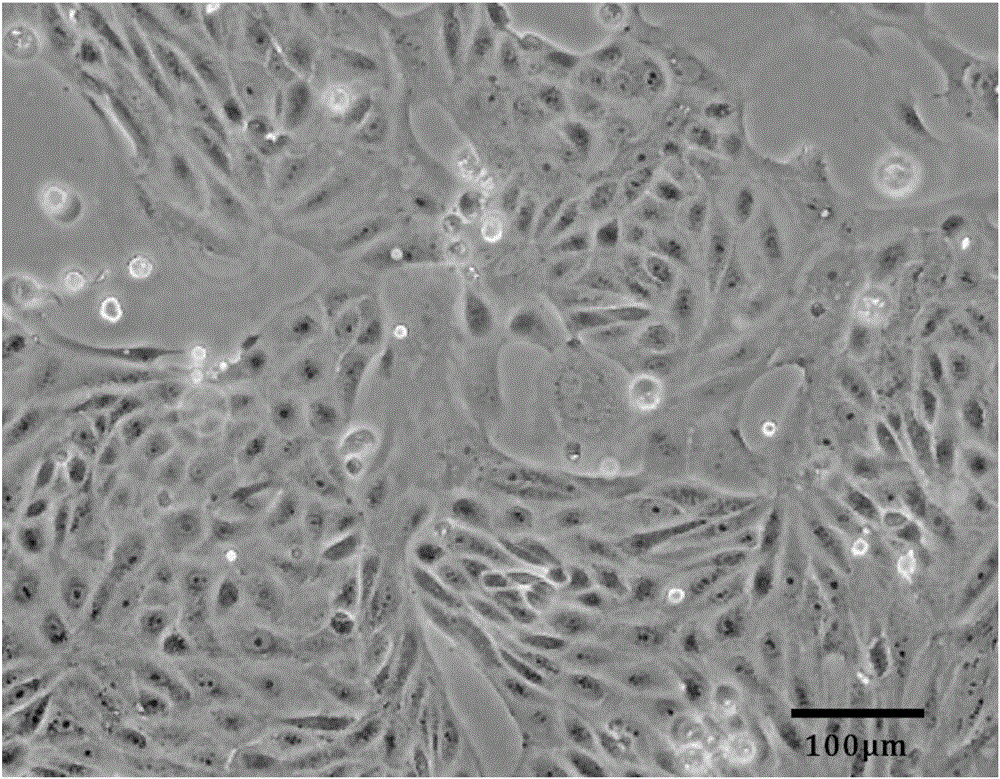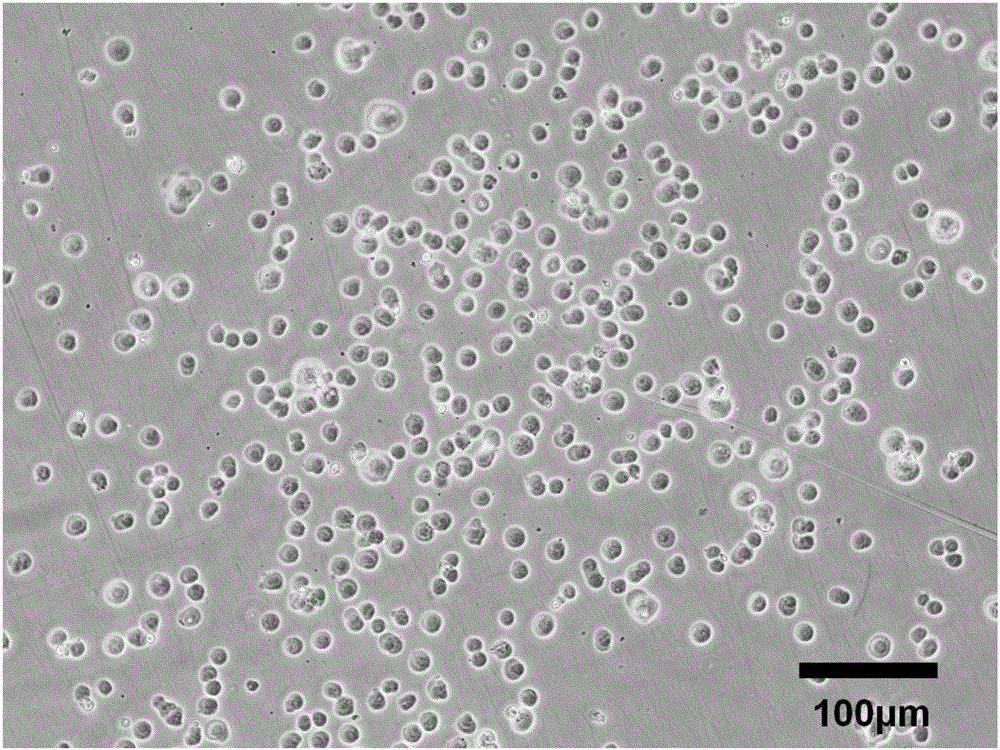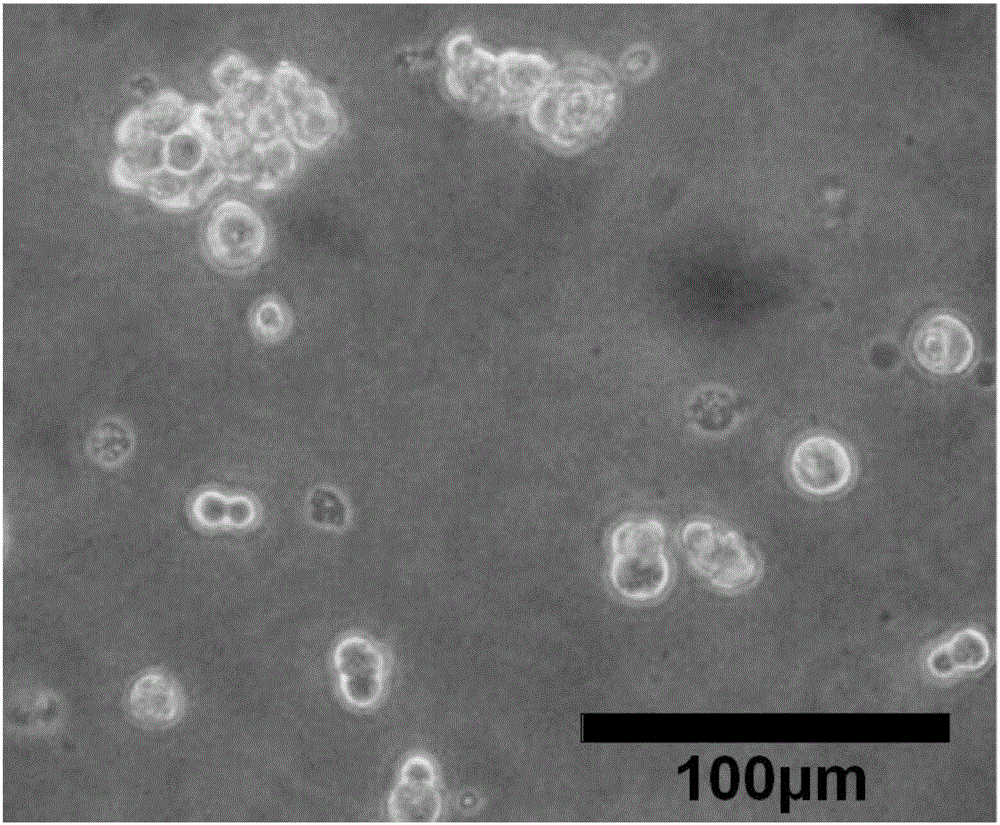Patents
Literature
Hiro is an intelligent assistant for R&D personnel, combined with Patent DNA, to facilitate innovative research.
1223 results about "Suspension culture" patented technology
Efficacy Topic
Property
Owner
Technical Advancement
Application Domain
Technology Topic
Technology Field Word
Patent Country/Region
Patent Type
Patent Status
Application Year
Inventor
Suspension culture is a type of culture in which single cells or small aggregates of cells multiply while suspended in agitated liquid medium. It is also referred to as cell culture or cell suspension culture.
Method for the production and purification of adenoviral vectors
InactiveUS20080050770A1Peptide/protein ingredientsGenetic material ingredientsSerum igeUltracentrifuge
Owner:JANSSEN VACCINES & PREVENTION BV
Stem Cell Aggregate Suspension Compositions and Methods of Differentiation Thereof
The present invention relates to methods for production of undifferentiated or differentiated embryonic stem cell aggregate suspension cultures from undifferentiated or differentiated embryonic stem cell single cell suspensions and methods of differentiation thereof.
Owner:VIACYTE INC
Serum-free mammalian cell culture medium, and uses thereof
InactiveUS20060148074A1Promote growthImprove expression levelEmbryonic cellsFermentationSuspension cultureEukaryotic cell
The present invention provides a cell culture medium formulation that supports the in vitro cultivation, particularly in suspension, of mammalian cells, particularly epithelial cells and fibroblast cells, and methods for cultivating mammalian cells in suspension in vitro using these media. The media comprise a basal medium and a polyanionic or polyanionic compound, preferably a polysulfonated or polysulfated compound, and more preferably dextran sulfate. The present invention also provides chemically defined, protein-free eukaryotic cell culture media comprising an iron chelate and zinc, which is capable of supporting the growth (and particularly the high-density growth of mammalian cells) in suspension culture, increasing the level of expression of recombinant protein in cultured cells, and / or increasing virus production in cultured cells.
Owner:LIFE TECH CORP +1
Human hybrid host cell for mammalian gene expression
InactiveUS6136599AEasily transfectedEasy to adaptGenetically modified cellsMutant preparationHeterologousMammal
Human / human hybrid cells were made via fusion of human embryonic kidney cells (293S) and modified Burkitt's lymphoma cells (2B8). The fusion cells are useful as host cells for the recombinant expression of mammalian genes. The advantages of using these hybrid clones of human kidney- and B-cells, called HKBs, for mammalian gene expression, include (i) the cells are negative for immunoglobulin expression, (ii) the cells grow easily in plasma protein-free medium (with or without the addition of recombinant insulin) as suspension cultures in a shake flask or in a fermenter (iii) the cells are very susceptible for transfection of DNA, and (iv) the cells secrete high levels of heterologous recombinant proteins, such as recombinant monoclonal antibodies, soluble ICAM-1, rIL-4, and rFVIII.
Owner:BAYER HEALTHCARE LLC +1
Method for the production and purification of adenoviral vectors
The present invention addresses the need to improve the yields of viral vectors when grown in cell culture systems. In particular, it has been demonstrated that for adenovirus, the use of low-medium perfusion rates in an attached cell culture system provides for improved yields. In other embodiments, the inventors have shown that there is improved Ad-p53 production cells grown in serum-free conditions, and in particular in serum-free suspension culture. Also important to the increase of yields is the use of detergent lysis. Combination of these aspects of the invention permits purification of virus by a single chromatography step that results in purified virus of the same quality as preparations from double CsCl banding using an ultracentrifuge.
Owner:JANSSEN VACCINES & PREVENTION BV
Stem cell aggregate suspension compositions and methods of differentiation thereof
The present invention relates to methods for production of undifferentiated or differentiated embryonic stem cell aggregate suspension cultures from undifferentiated or differentiated embryonic stem cell single cell suspensions and methods of differentiation thereof.
Owner:VIACYTE INC
Method for the production and purification of adenoviral vectors
The present invention addresses the need to improve the yields of viral vectors when grown in cell culture systems. In particular, it has been demonstrated that for adenovirus, the use of low-medium perfusion rates in an attached cell culture system provides for improved yields. In other embodiments, the inventors have shown that there is improved Ad-p53 production with cells grown in serum-free conditions, and in particular in serum-free suspension culture. Also important to the increase of yields is the use of detergent lysis. Combination of these aspects of the invention permits purification of virus by a single chromatography step that results in purified virus of the same quality as preparations from double CsCl banding using an ultracentrifuge.
Owner:JANSSEN VACCINES & PREVENTION BV
Pluripotent embryonic-like stem cells derived from corneal limbus, methods of isolation and uses thereof
InactiveUS20060216821A1Increase telomerase activityCulture processNervous system cellsGerm layerDisease
The present disclosure describes mammalian pluripotent embryonic-like stem cells (ELSCs) isolated from corneal limbal tissue, a non-embryonic tissue. The ELSCs of the present disclosure are capable of proliferating in an in vitro culture, maintain the potential to differentiate into cells of endoderm, mesoderm, and ectoderm lineage in culture, and are capable of forming embryoid-like bodies when placed in suspension culture. Thus, these cells possess multi-lineage differentiation potential and self-renewing capability. ELSCs may be a promising therapeutic tool, and may provide new therapeutic alternatives for various diseases, conditions, and injuries.
Owner:RELIANCE LIFE SCI PVT
Method of isolating and culturing mesenchymal stem cell derived from umbilical cord blood
InactiveUS20070092967A1Increase success rateArtificial cell constructsSkeletal/connective tissue cellsInterleukin 6G-csf therapy
The present invention relates to a method of isolating and culturing mesenchymal stem cells using umbilical cord blood that is most ideal for cell therapy. The method comprises adding an anti-coagulant to umbilical cord blood having a volume of more than 45 ml per unit, which is obtained within 24 hours after parturition; diluting the resulting mixture of the anti-coagulant and umbilical cord blood with an αMEM (alpha-minimum essential medium), followed by centrifugation to harvest monocytes; and subjecting the obtained monocytes into suspension culture in the αMEM containing Stem Cell Factor, GM-CSF (granulocyte-macrophage colony-stimulating factor), G-CSF (granulocyte colony-stimulating factor), IL-3 (interleukin-3) and IL-6 (interleukin-6).
Owner:HAN HOON
Method of Inducing the Differentiation of Embryonic Stem Cells Into Nerve by Serum-Free Suspension Culture
ActiveUS20080044901A1Effectively lead to differentiationEfficient inductionNervous system cellsEmbryonic cellsSerum free mediaNervous system
The present invention provides a clinically applicable method of inducing differentiation of embryonic stem cells, particularly a method of inducing differentiation of embryonic stem cells into forebrain neurons. More specifically, the present invention provides a method of inducing differentiation of embryonic stem cells, comprising culturing the embryonic stem cells as a floating aggregate in a serum-free medium, particularly a method of inducing differentiation of the embryonic stem cells into nervous system cells such as forebrain neurons and cerebellar neurons and sensory organ cells; a floating aggregate of embryonic stem cells obtained by culturing the embryonic stem cells as a floating aggregate in a serum-free medium; and cells derived from a floating aggregate of embryonic stem cells, particularly nervous system cells such as forebrain neurons and cerebellar neuron, sensory organ cells such as retinal precursor cells, and the like.
Owner:RIKEN
Suspension Culture of Human Embryonic Stem Cells
ActiveUS20100144033A1Rapid and volume-efficientArtificial cell constructsCell culture supports/coatingCost effectivenessMicrobiology
This disclosure provides an improved system for culturing human embryonic stem cells. The cells are cultured in suspension so as to maximize the production capacity of the culture environment. The new culture system of this invention allows for bulk proliferation of hES cells in a more cost-effective manner, which facilitates commercial production of important products for use in human therapy.
Owner:ASTERIAS BIOTHERAPEUTICS INC
Scalable primate pluripotent stem cell aggregate suspension culture and differentiation thereof
ActiveUS20130115695A1Little and no turbulenceGuarantee the environmentBioreactor/fermenter combinationsBiological substance pretreatmentsSingle cell suspensionSuspension culture
The present invention relates to methods for production of undifferentiated or differentiated embryonic stem cell aggregate suspension cultures from undifferentiated or differentiated embryonic stem cell single cell suspensions and methods of differentiation thereof.
Owner:VIACYTE INC
Serum-free medium for Madin-Darby canine kidney (MDCK) cell full suspension culture
ActiveCN103555659AHigh densityClear ingredientsVertebrate cellsArtificial cell constructsCanine kidneyFlu immunization
The invention discloses a serum-free medium for Madin-Darby canine kidney (MDCK) cell full suspension culture. The serum-free medium for MDCK cell full suspension culture comprises an amino acid part, a vitamin part, an inorganic salt part and other additive parts. The serum-free medium has the beneficial effects that the serum-free medium for MDCK cell full suspension culture, provided by the invention, is high in cell culture density and clear in composition and does not contain animal serum, a downstream product is purified, the product quality is improved, and the serum-free medium is convenient to prepare and use and suitable for large-scale production of influenza vaccines and avian influenza vaccines.
Owner:无锡市赛尔百灵生物技术有限公司
Compositions and methods for modular soft tissue repair
InactiveUS20100098739A1Superior in vivo engraftmentSuperior in tissue integrationBiocideMammal material medical ingredientsSerum free mediaTissue repair
Adipose tissue-derived stromal cells induced to form multicellular aggregates can be formed reliably and consistently, they can be maintained for prolonged periods in adherent or suspension culture, and they are able to survive, grow, and / or differentiate in serum-free media conditions. The present invention provides compositions and methods for the use of such aggregates in tissue repair. This culture platform provides a controlled and defined system in which to study and standardize adult stem cell biology, and begets an instinctive “modular” approach to the predictable replacement and regeneration of adipose tissue.
Owner:UNIV OF VIRGINIA ALUMNI PATENTS FOUND
Cardiomyocyte production
ActiveUS20110097799A1Enhanced signalPromote differentiationCell dissociation methodsSugar derivativesCardiac muscleCulture mediums
Methods and composition for the production of cardiomyocytes from differentiation of pluripotent stem cells are provided. For example, in certain aspects methods including differentiating pluripotent stem cells in a large volume of suspension culture in the presence of ROCK inhibitors are described. In further aspects, methods for differentiation of stem cells into cardiomyocytes that overcome variability between different stem cell clones and different batch of culture medium are provided.
Owner:FUJIFILM CELLULAR DYNAMICS INC
Large-scale cultivation method and quality detection method of cordyceps militaris fruit bodies
InactiveCN102626036AQuality improvementIncrease productionComponent separationHorticultureGrowth phaseIncandescence
The invention discloses a large-scale cultivation method and a quality detection method of cordyceps militaris fruit bodies, comprising the steps of: (1) screening spawn; (2) preparing a rice solid culture medium (40-55 parts of rice and 45-60 parts of nutrient solution in every 100 parts by weight) and killing bacteria; (3) preparing liquid spawn: activating the spawn, inoculating the spawn into a liquid culture medium, conducting static culture for 24 hours and performing suspension culture on a shaking table; (4) culturing fruit bodies: inoculating the liquid spawn on the solid culture medium for dark culture for 6 days at the temperature of 20 DEG C until the surface of the medium is covered by mycelium; placing the well grown mycelium under incandescence with light intensity of 100 to 300 lux, wherein during a primordium growth phase, illumination is performed for 20-24 hours per day at the temperature of 20-24 DEG C; and during a fruit bodies growth phase, illumination is performed for 8-12 hours per day at the temperature of 18-20 DEG C and the fruit bodies are harvested 5 to 8 days after mature. The cordyceps militaris fruit bodies cultured by the method have the advantages of high yield and high content of active ingredients. Batches of cordyceps militaris fruit bodies have fingerprints with a similarity value greater than 0.950, indicating stable and controllable quality.
Owner:珠海市先康生物科技有限公司
Scalable primate pluripotent stem cell aggregate suspension culture and differentiation thereof
ActiveUS8895300B2Bioreactor/fermenter combinationsBiological substance pretreatmentsSingle cell suspensionSuspension culture
The present invention relates to methods for production of undifferentiated or differentiated embryonic stem cell aggregate suspension cultures from undifferentiated or differentiated embryonic stem cell single cell suspensions and methods of differentiation thereof.
Owner:VIACYTE INC
Microcarriers for Stem Cell Culture
InactiveUS20110143433A1Stable and long-term culturingIncrease differentiationCulture processArtificial cell constructsMatrigelORDER PRIMATES
We disclose a particle comprising a matrix coated thereon and having a positive charge, the particle being of a size to allow aggregation of primate or human stem cells attached thereto. The particle may comprise a substantially elongate, cylindrical or rod shaped particle having a longest dimension of between 50 μm and 400 μm, such as about 200 μm. It may have a cross sectional dimension of between 20 μm and 30 μm. The particle may comprise a substantially compact or spherical shaped particle having a size of between about 20 μm and about 120 μm, for example about 65 μm. We also disclose a method of propagating primate or human stem cells, the method comprising: providing first and second primate or human stem cells attached to first and second respective particles, allowing the first primate or human stem cell to contact the second primate or human stem cell to form an aggregate of cells and culturing the aggregate to propagate the primate or human stem cells for at least one passage. A method of propagating human embryonic stem cells (hESCs) in long term suspension culture using microcarriers coated in Matrigel or hyaluronic acid is also disclosed. We also disclose a method for differentiating stem cells.
Owner:AGENCY FOR SCI TECH & RES
Mdck-derived cell lines adapted to serum-free culture and suspension culture and method for preparing vaccine virus using the cells
InactiveUS20130183741A1Low and no tumorigenicityEasy to useSsRNA viruses negative-senseViral antigen ingredientsSerum igeSerum free
Disclosed is a Madin-Darby canine kidney (MDCK)-derived cell line. The MDCK-derived cell line is derived from MDCK cells deposited under accession number ATCC CCL-34. The MDCK-derived cell line can be prepared by serum-free culture and suspension culture. Preferably, the MDCK-derived cell line has low or no tumorigenicity. The MDCK-derived cell line is preferably selected from MDCK Sky1023, MDCK Sky10234 and MDCK Sky3851. Further disclosed are a culture method for growing the MDCK-derived cells and a method for producing a vaccine virus using the MDCK-derived cells.
Owner:SK CHEM CO LTD
Method of producing recombinant iduronate-2-sulfatase
InactiveUS20140004097A1Conducive to effective treatmentEfficient productionHydrolasesPeptide/protein ingredientsSerum igeSerum free media
The present invention provides, among other things, methods and compositions for large-scale production of recombinant I2S protein using suspension culture of mammalian cells in serum-free medium. In particular, the present invention uses mammalian cells co-express a recombinant I2S protein and a formylglycine generating enzyme (FGE).
Owner:SHIRE HUMAN GENETIC THERAPIES INC
High efficiency peptide production in plant cells
ActiveUS20050260758A1Less variableMore stablyAntibacterial agentsSsRNA viruses positive-sensePlant cellEukaryotic plasmids
The present invention provides an improved process for the production of recombinant peptides. In particular, the present invention provides an improved process for the production of recombinant peptides in the form of viral capsid fusion proteins which can be assembled in vivo in plant cell suspension cultures. The invention also includes plasmids, sequences, and plant cells which allow for non-infectious viral capsid fusion peptide production.
Owner:DOW AGROSCIENCES LLC
Production of poliovirus at high titers for vaccine production
ActiveUS8546123B2High potencyShort processNervous disorderSsRNA viruses positive-senseSerum freeVaccine Production
Provided is a process for the production of poliovirus, comprising the steps of:a) providing a serum-free suspension culture of cells, which are primary human retina (HER) cells that have been immortalized by expression of adenovirus E1 sequences,b) infecting the cells with poliovirus, at a cell density of between 2×106 cells / ml and 150×106 cells / ml, and c) harvesting poliovirus at a time of between 12 and 48 hours after infection.
Owner:JANSSEN VACCINES & PREVENTION BV
Method for directionally differentiating multipotential stem cell in vitro into myocardial cell
ActiveCN104293730AMany connectionsDecreased frequency of calcium wavesVertebrate cellsArtificial cell constructsGerm layerHeart development
The invention provides a method for directionally differentiating a multipotential stem cell in vitro into a myocardial cell and provides a culture medium for establishing myocardial cell differentiation by means of induction in vitro under a three-dimensional suspension condition. The culture medium comprises a differential medium for induced differentiation of a multipotential stem cell into a precursor cell of mesoblast, a differential medium for differentiating the precursor cell of mesoblast into the myocardial cell and a long-term maintaining culture medium of the myocardial cell. The method provided by the invention is simple and reliable, low in cost, stable and efficient and high in safety. By adopting a suspension culture system, high-quality myocardial cells can be industrially produced without any subsequent screening and purifying steps, can be directly used for application demands of scientific research of heart development, cell therapy of heart diseases, transplanting due to cardiac trauma and drug screening, and has inestimable scientific, social and economical benefits.
Owner:昆明圆梦生命科学研究院有限公司
Method for primary culture of tumor cells
InactiveCN103865876AIncrease success rateGood removal effectTumor/cancer cellsSingle cell suspensionBovine serum albumin
The invention discloses a method for primary culture of tumor cells and relates to the field of cell biology. According to the method disclosed by the invention, a tumor sample is prepared into a single-cell suspension liquid by use of an enzyme method or a mechanical method, and then tumor cell bladders are prepared by use of a serum-free suspension culture method, wherein alkaline fibroblast growth factors, epidermal growth factors, insulin and bovine serum albumin need to be added during a culturing process, then the growth factors are removed, and the culture is implemented in a general culture medium to obtain adherent cells capable of realizing continuous passage. The method disclosed by the invention is short in culture period and has the effect of increasing the success rate of the primary culture of tumors.
Owner:NORTHWEST UNIVERSITY FOR NATIONALITIES
Serum-free medium for full suspension cultivation of BHK (Baby Hamster Kidney)-21 cell
ActiveCN103555658AHigh densityClear ingredientsArtificial cell constructsVertebrate cellsBiotechnologyInorganic salts
The invention discloses a serum-free medium for full suspension cultivation of a BHK (Baby Hamster Kidney)-21 cell. The serum-free medium for full suspension cultivation of the BHK-21 cell comprises an amino acid part, a vitamin part, an inorganic salt part and a part of other additives. The medium disclosed by the invention has the beneficial effects that the serum-free medium for full suspension cultivation of the BHK-21 cell is high in culture cell density, clear in component and free from animal serum, facilitates purification of downstream products, and improves the product quality. The medium is convenient to prepare and use, and is applicable to production of biological products on a large scale.
Owner:无锡市赛尔百灵生物技术有限公司
Baby hamster kidney (BHK)-21 cells obtained by high-density suspension culture in low-serum and serum-free culture medium and preparation method thereof
ActiveCN102154197AReduce investmentConform to energy savingArtificial cell constructsVertebrate cellsCulture fluidHamster
The invention provides BHK-21 cells obtained by high-density suspension culture in a low-serum and serum-free culture medium and a culture method thereof. The culture method comprises the following steps: 1) resuscitating frozen BHK-21 cells and performing adherent culture to obtain adherently cultured BHK-21 cells; 2) subculturing the adherently cultured BHK-21 cells in culture solution to obtain suspension-cultured BHK-21 cells and freezing the BHK-21 cells; 3) performing resuscitation culture of the suspension-cultured BHK-21 cells and performing biological property identification; and 4) performing bioreactor adaptive culture of the suspension-cultured BHK-21 cells identified to be qualified. The invention has the advantages that: a cell domesticating method provided by the invention and the obtained BHK-21 cells which can be cultured in a suspended manner save culture solution and bovine serum, are in accordance of current energy-saving, environment-protection and low-carbon concepts for the application of suspended-cultured cells into actual production saves floor area and labor investment greatly, and create considerable economic benefit and social benefit.
Owner:马忠仁
Zea mays (L.) with capability of long term, highly efficient plant regeneration including fertile transgenic maize plants having a heterologous gene, and their preparation
InactiveUS6284945B1Careful shakingPromote shakingTransferasesPlant tissue cultureHeterologousCallithamnion granulatum
Protoplasts which regenerate reproducibly in a short time to normal, fertile plants can be regenerated from an auxin-autotrophic genotype of Zea mays (L.). Starting from immature embryos on hormone-free media, an auxin-autotrophic, embryogenic callus is formed on the shoot basis of the seedlings, which callus retains its embryogenic potential over a substantial period of time when subcultured on hormone-free medium. In addition to fully-developed embryos, adventitious embryos are also formed under suitable culture conditions (6-9% of sucrose in the medium). When the sucrose content is reduced to 2-3% and 2,4-dichlorophenoxyacetic acid is added, soft, granular calli are formed which consist of embryogenic cell aggregates (type II callus). After subculturing the type II callus in the form of a cell suspension culture, totipotent protoplasts can be isolated. From these protoplasts, the maize plants according to the invention are regenerated.
Owner:BAYER CROPSCIENCE AG
Methods for the generation of cartilage-like material by mechanical loading
InactiveUS20090148876A1Good biocompatibilityEnhance and promote chondrogenesisBiocideMicrobiological testing/measurementHydrostatic pressureBio engineering
A cartilage-like biomaterial is bioengineered by using a self-aggregating suspension cell culture with hydrostatic mechanical force without the use of a scaffold or foreign matrix for cell attachment during culture. The cells in suspension culture may be preconditioned prior to application of the hydrostatic mechanical force, such as hydrostatic pressure, for a period of time in the range of about 1 week to about 10 weeks. The cartilage-like biomaterial shares critical structural, phenotype, and functional characteristics with native, intact cartilage tissue.
Owner:THE NEMOURS FOUND
Microalgae suspension-adhesion mixed culture and separated harvesting method based on suspended carrier
InactiveCN103409321ALow costAchieve separationUnicellular algaeMicroorganism based processesMixed cultureCentrifugation
A microalgae suspension-adhesion mixed culture and separated harvesting method based on a suspended carrier comprises the following steps: on the basis of original microalgae suspension culture, a predetermined amount of solid carrier is added into a culture solution and enabled to suspend in the liquid phase in an aerating or mechanical stirring manner; during cultivation, the microalgae is enabled to attach to a solid carrier to form an algae membrane; the solid carrier is separated to harvest algae cells; the solid carrier from which the algae cells are harvested is recovered for recycling and re-injected into the microalgae culture solution; serving as seeds, the liquid-phase algae cells are re-attached to the solid carrier to grow, so that continuous culture and harvest of the algae cells are realized. Compared with the air floatation, precipitation, centrifugation, filtering and other harvest methods, the microalgae suspension-adhesion mixed culture and separated harvesting method is simple to operate, dispenses with agents, is low in energy consumption, and can realize large-scale and mechanical continuous harvesting, thereby effectively saving the cost in harvesting the algae cells.
Owner:TSINGHUA UNIV
Preparation method of avian influenza virus growing in serum-free full-suspended cultured MDCK cells and obtained avian influenza virus
ActiveCN106011083AStable characteristicsGet rid of dependenceVertebrate cellsArtificial cell constructsSerum freeF1 generation
The invention discloses a preparation method of an avian influenza virus suitable for growing in a serum-free full-suspended cultured MDCK cell line and the avian influenza virus obtained through the method. The preparation method comprises the following steps of 1 preparation of the MDCK cells to be inoculated; 2 virus seed preparation, wherein a chick embryo source avian influenza virus is prepared; 3 F1 generation virus domestication; 4 F2 generation virus domestication, wherein a supernatant sample retained at the time point when the blood clotting titer of the avian influenza virus obtained in the F1 generation is highest is taken, and the step 3 is repeated; 5 F3 generation virus domestication, wherein the F3 generation virus culturing temperature is 35 DEG C; 6 F4 generation-F10 generation virus domestication, wherein the step 5 is repeated, and the domesticated avian influenza virus is obtained. According to the preparation method, through a domestication method, the avian influenza virus is directly domesticated to completely adapt to be efficiently reproduced on the serum-free full-suspended cultured MDCK cells from the mode of being cultured by a chick embryo, the domestication efficiency is high, the avian influenza virus can be efficiently infected and copied in the MDCK cells, and the virus characteristic is stable.
Owner:ZHAOQING DAHUANONG BIOLOGIC PHARMA +2
Features
- R&D
- Intellectual Property
- Life Sciences
- Materials
- Tech Scout
Why Patsnap Eureka
- Unparalleled Data Quality
- Higher Quality Content
- 60% Fewer Hallucinations
Social media
Patsnap Eureka Blog
Learn More Browse by: Latest US Patents, China's latest patents, Technical Efficacy Thesaurus, Application Domain, Technology Topic, Popular Technical Reports.
© 2025 PatSnap. All rights reserved.Legal|Privacy policy|Modern Slavery Act Transparency Statement|Sitemap|About US| Contact US: help@patsnap.com
